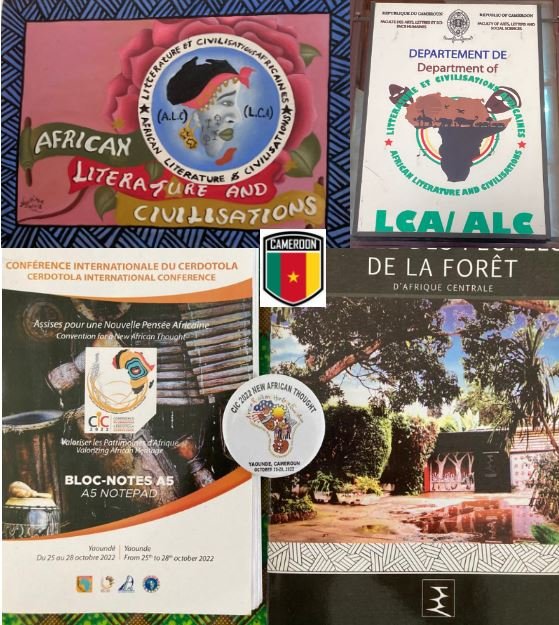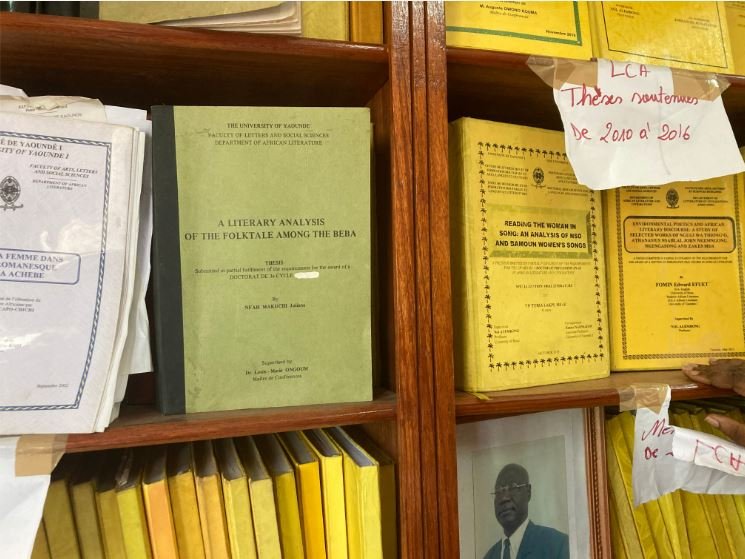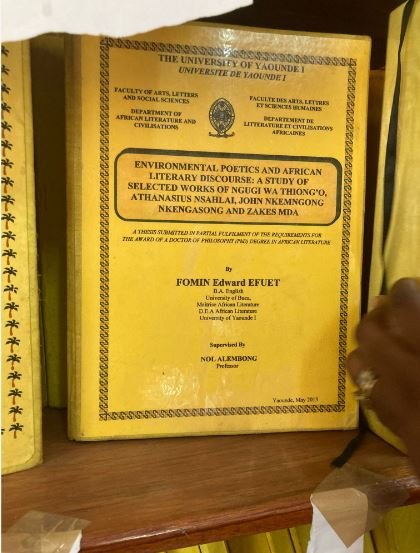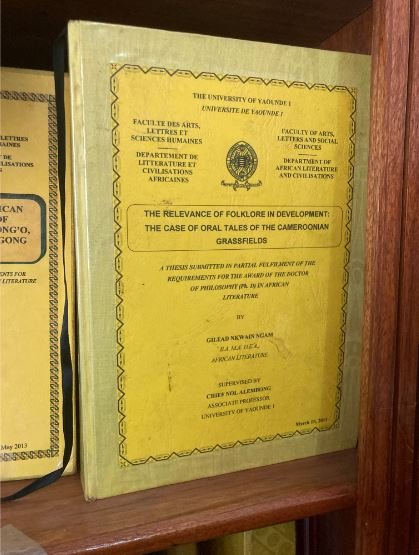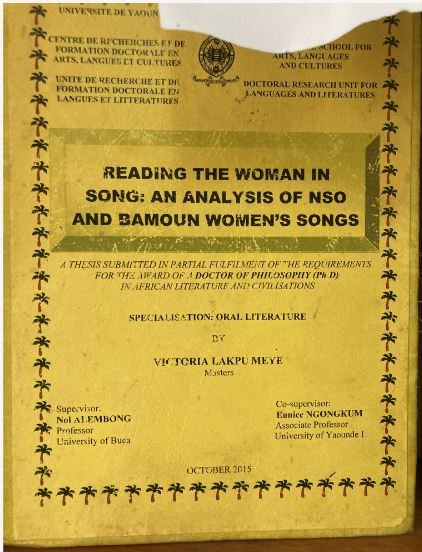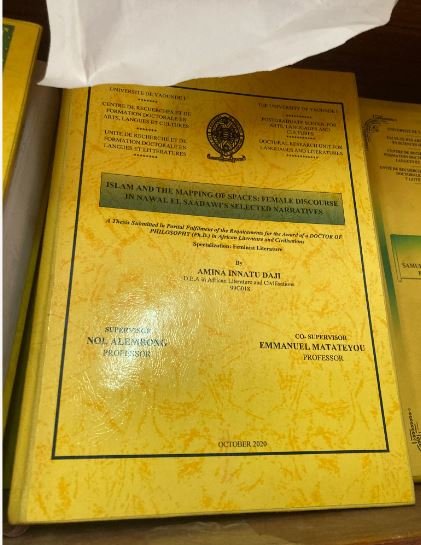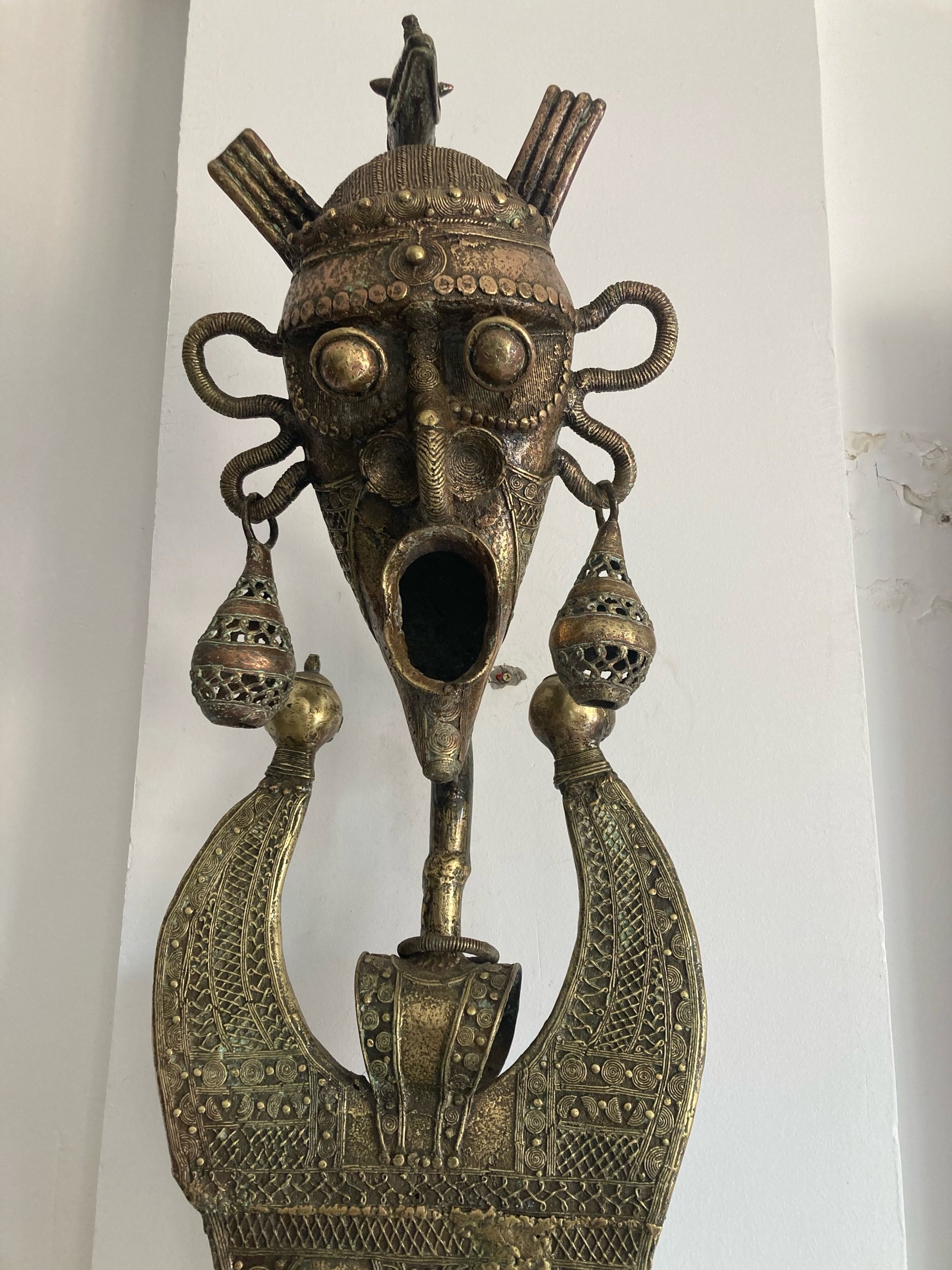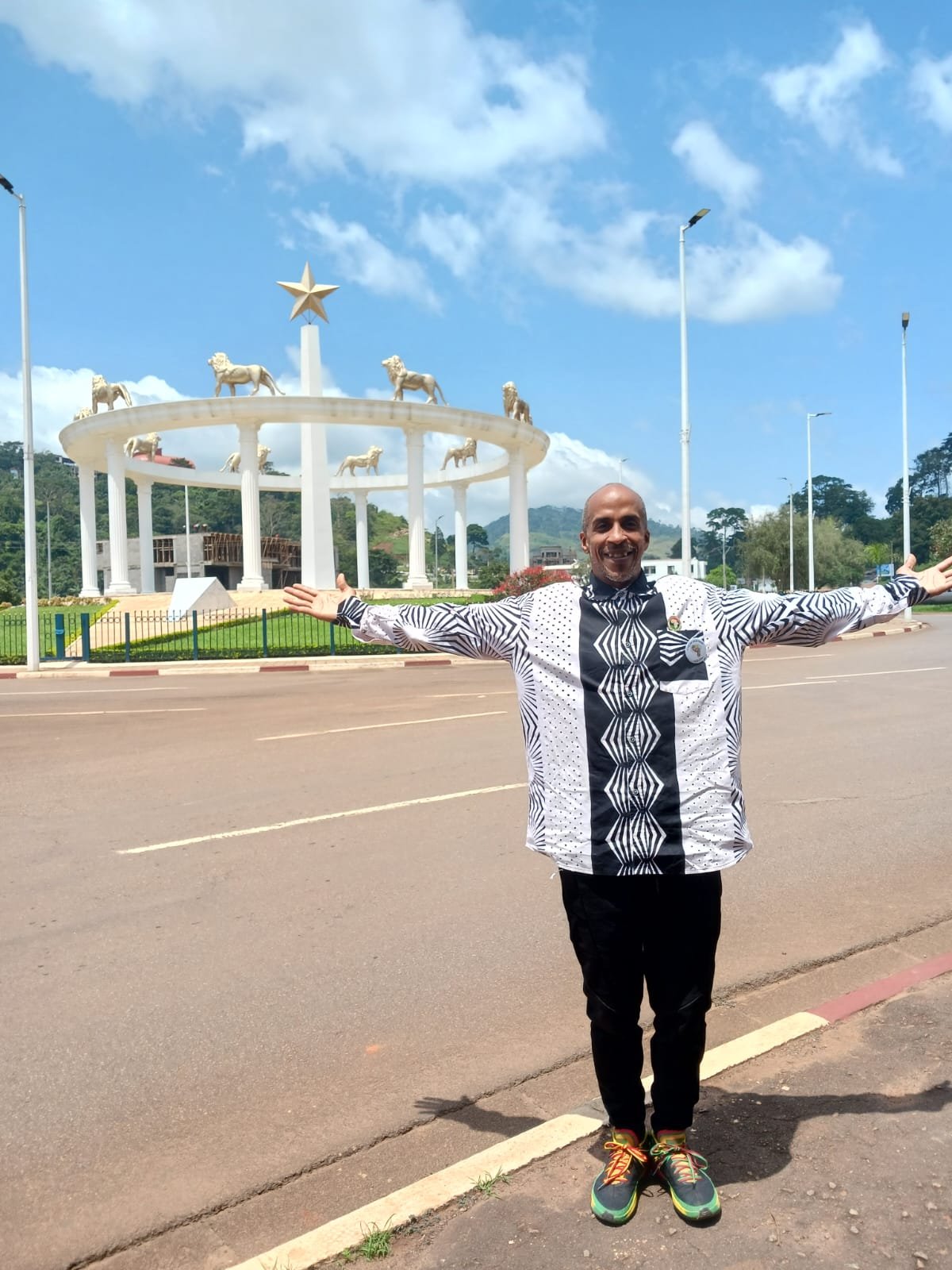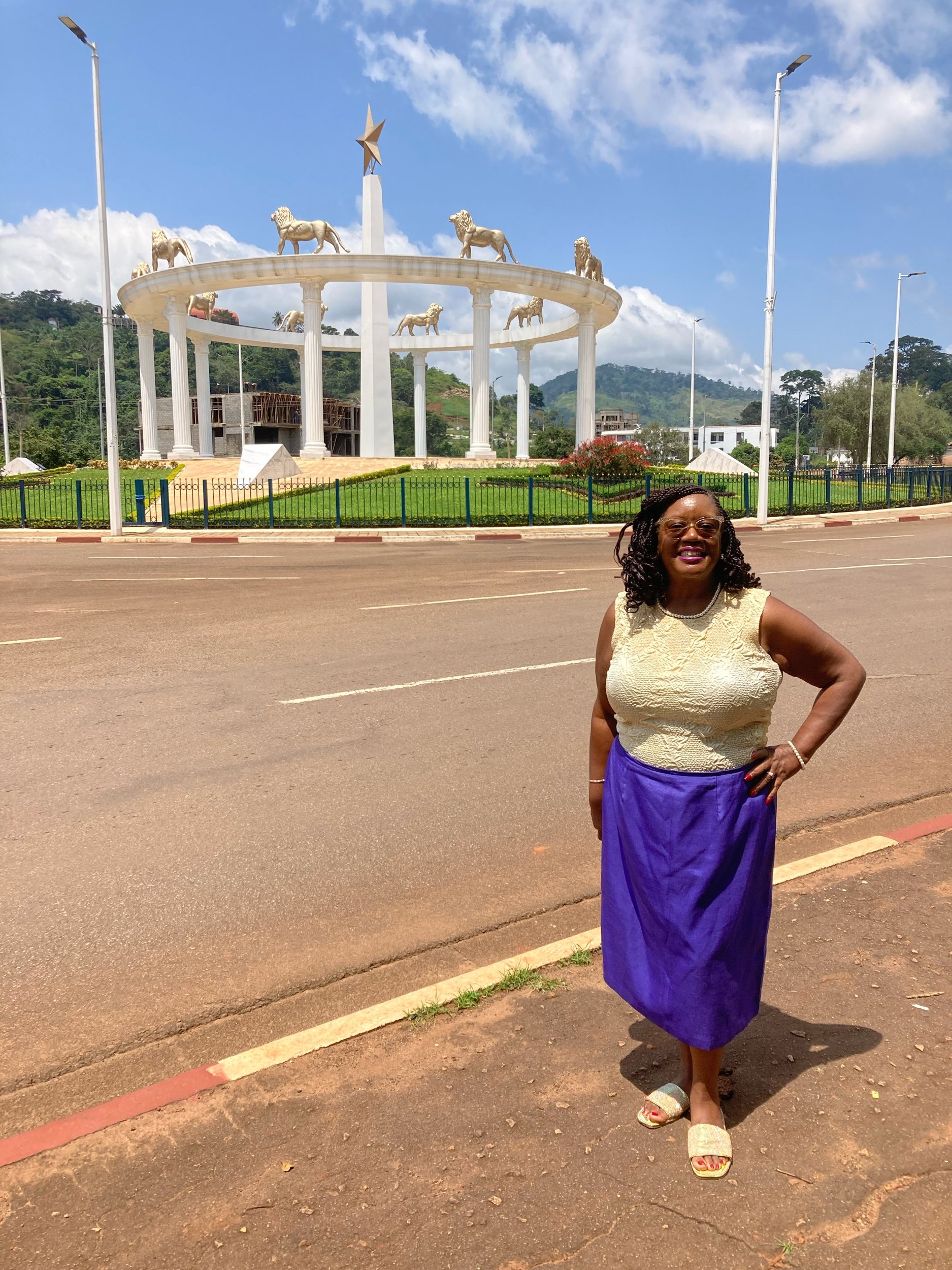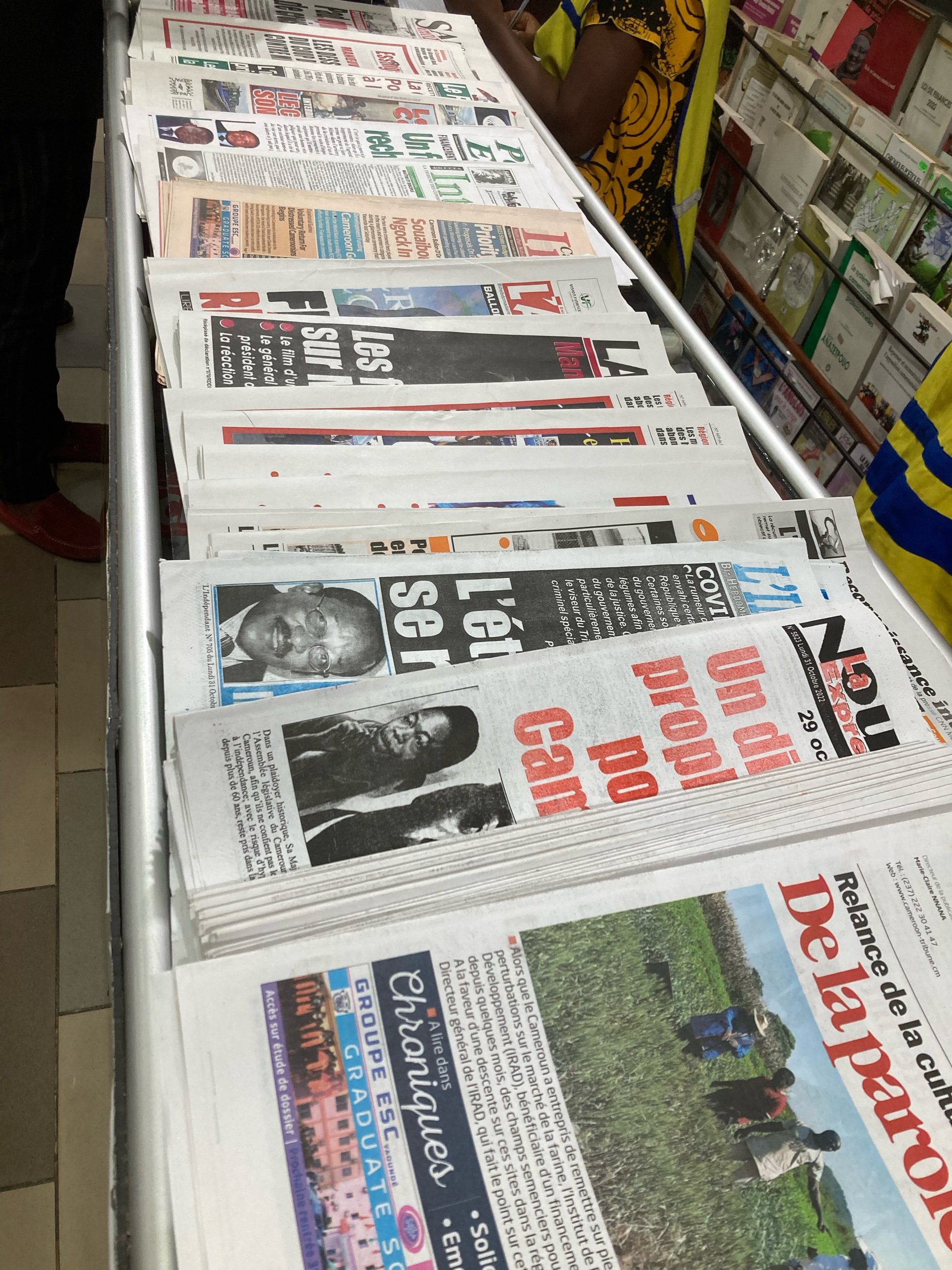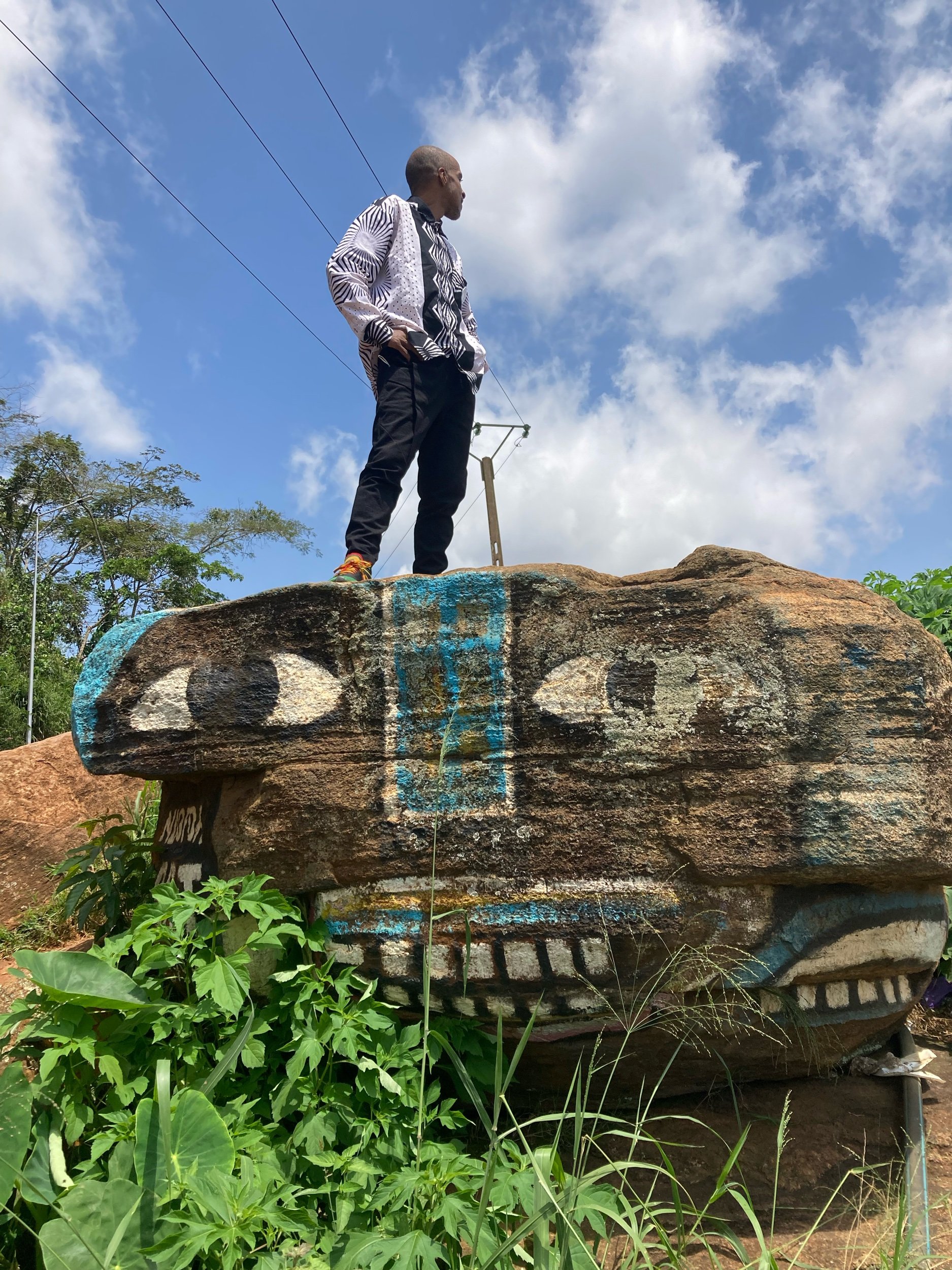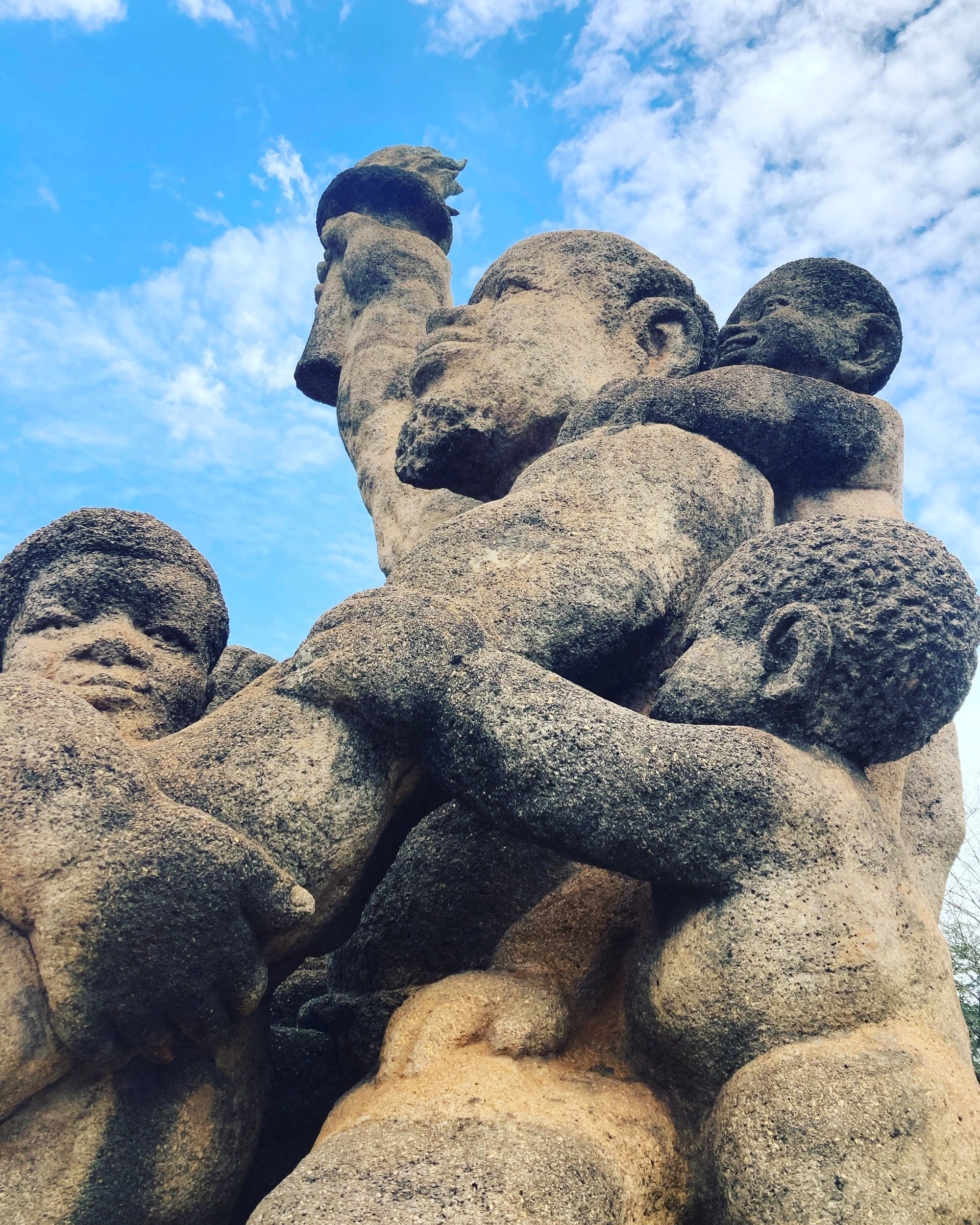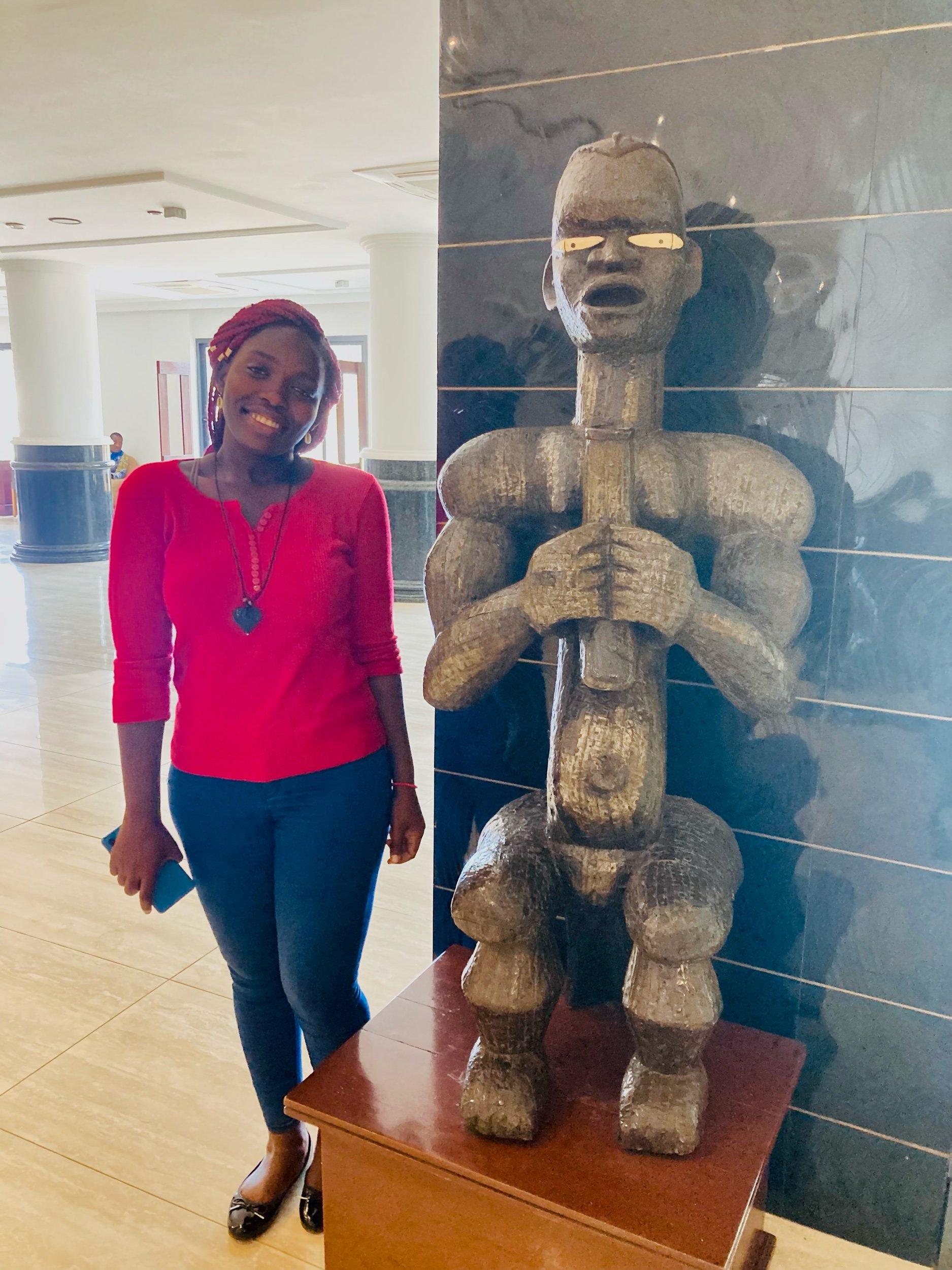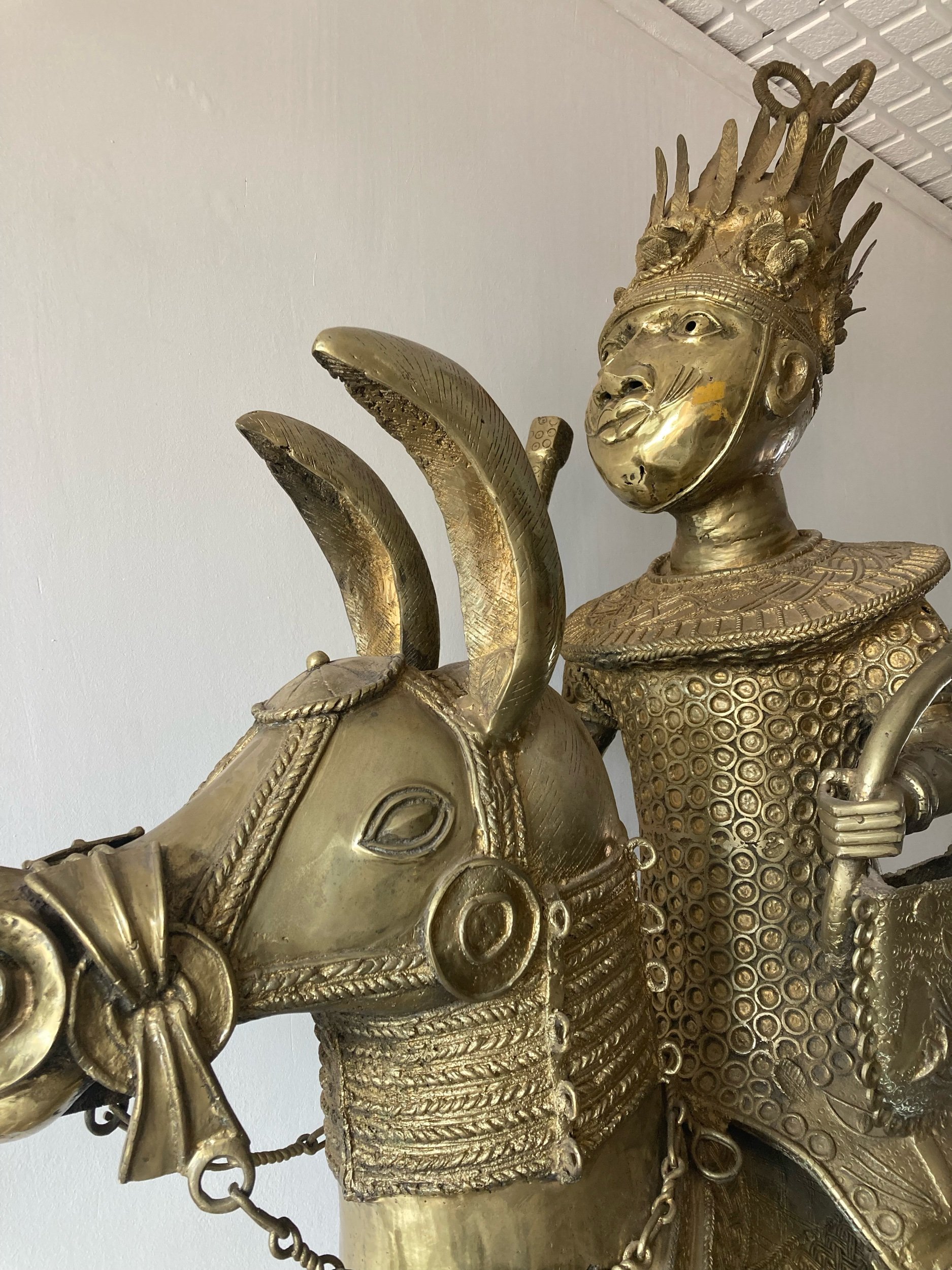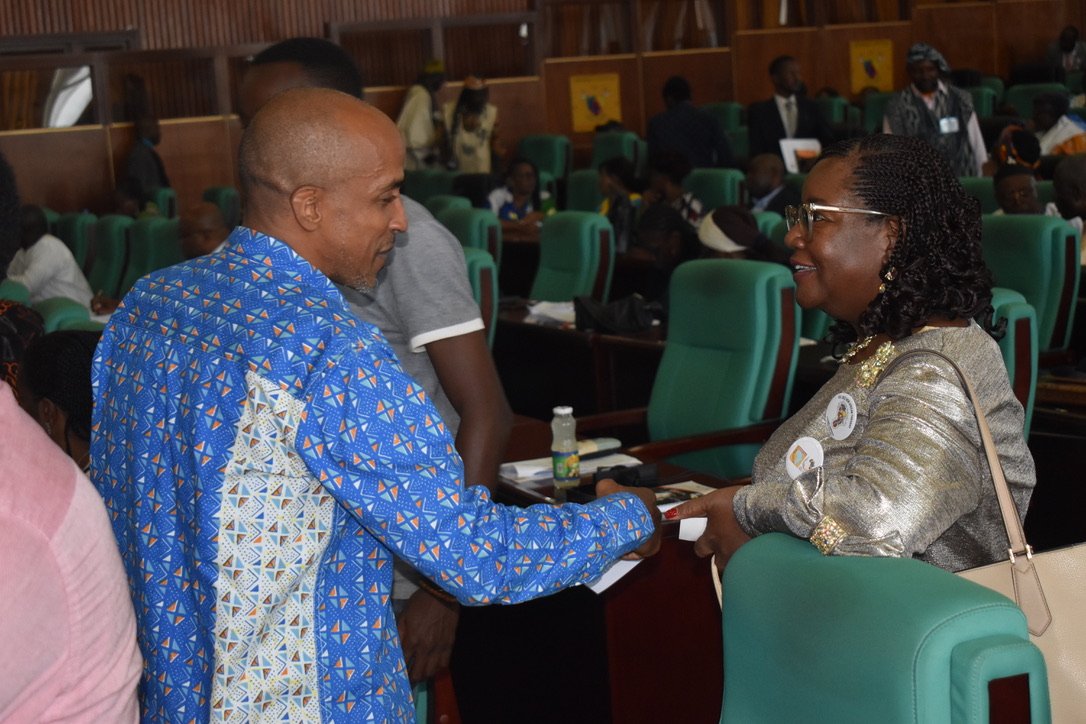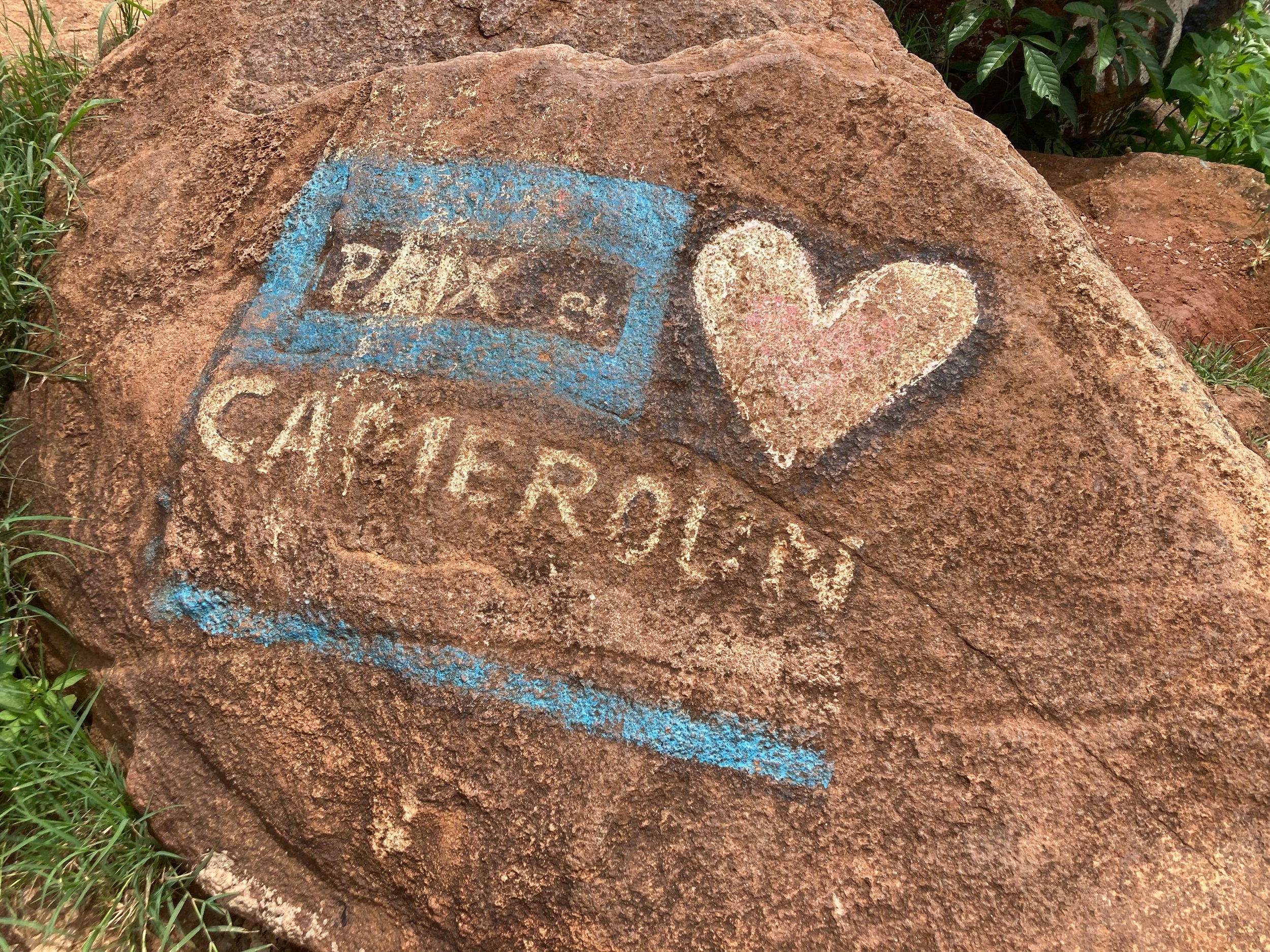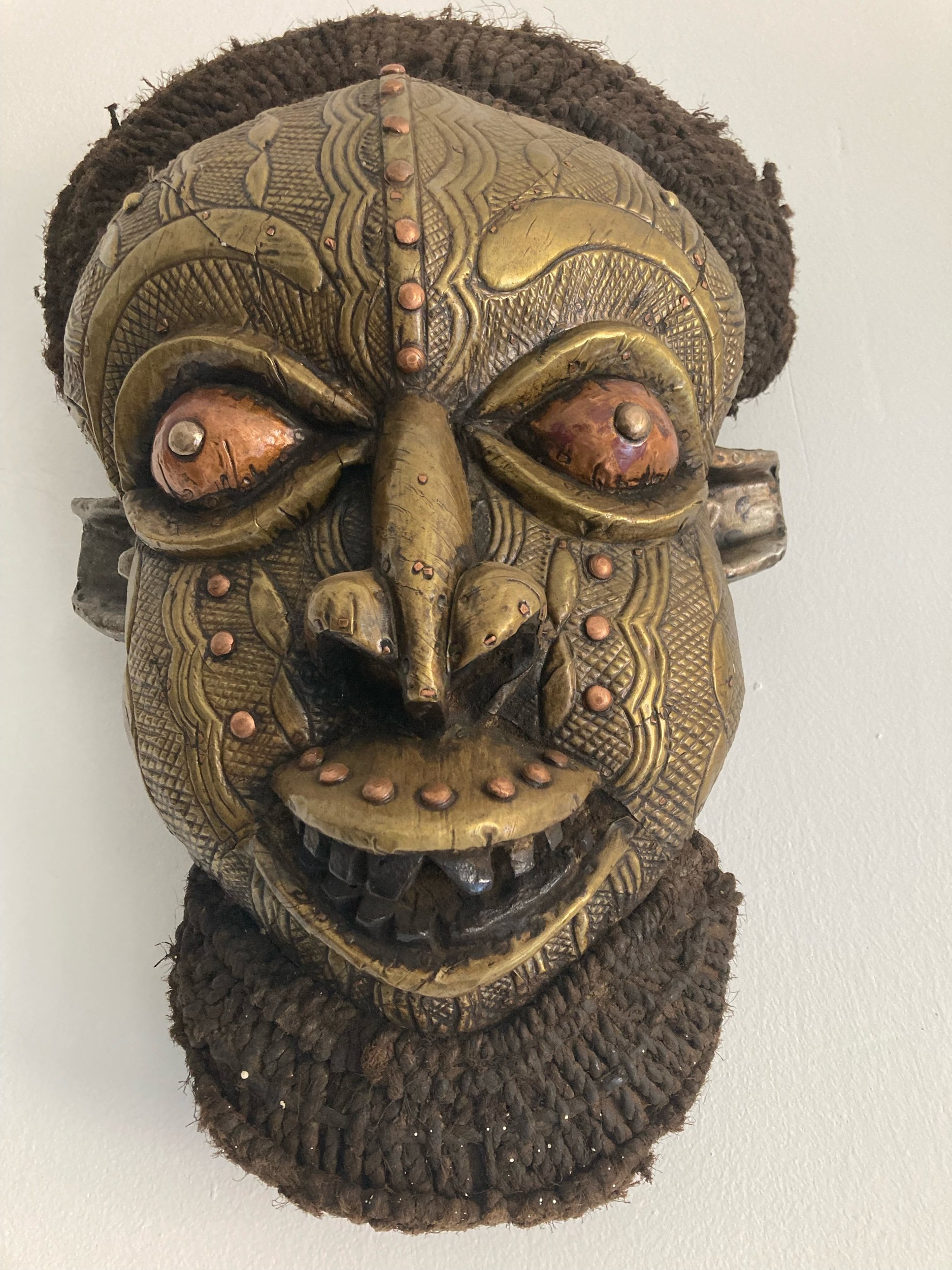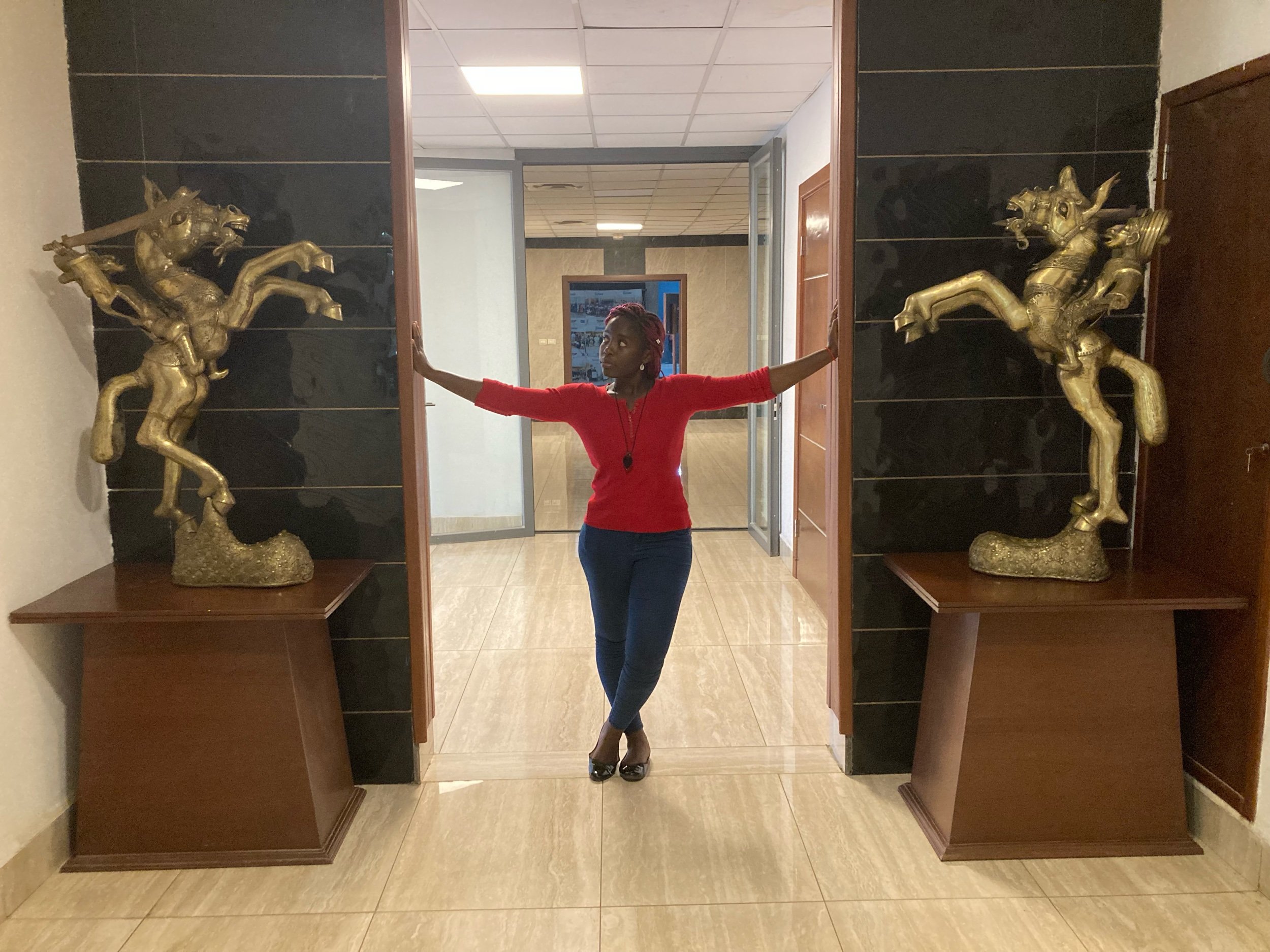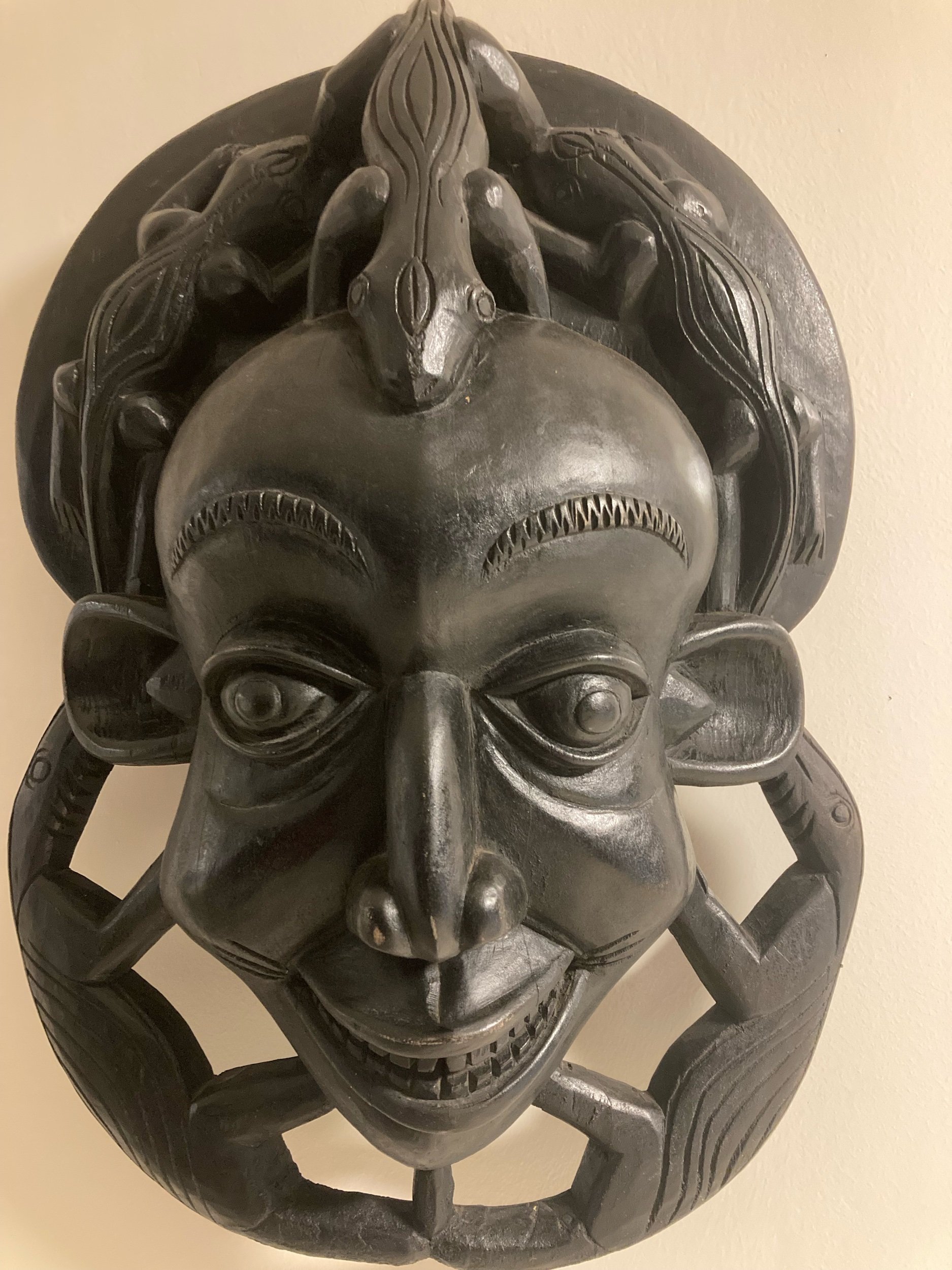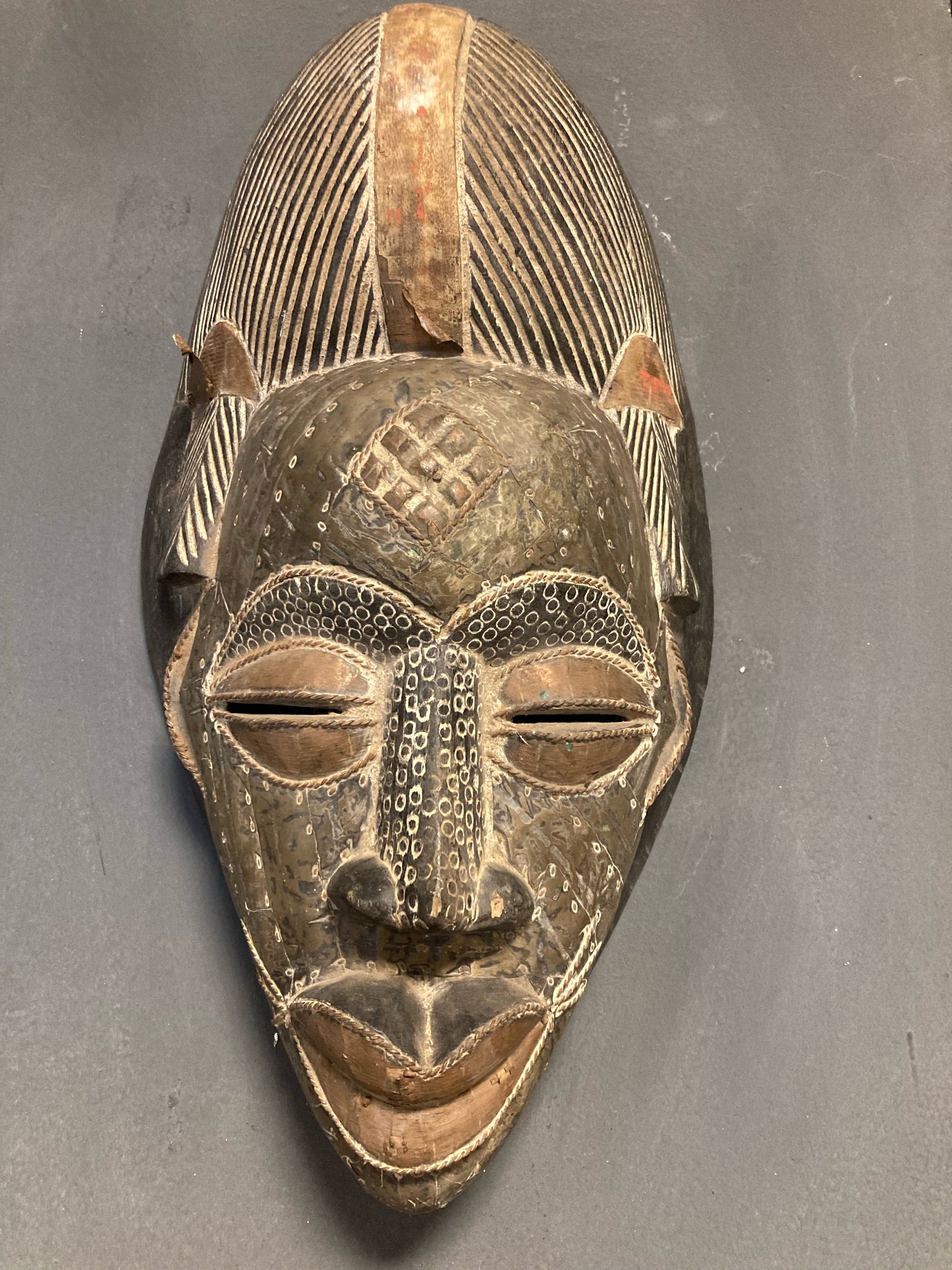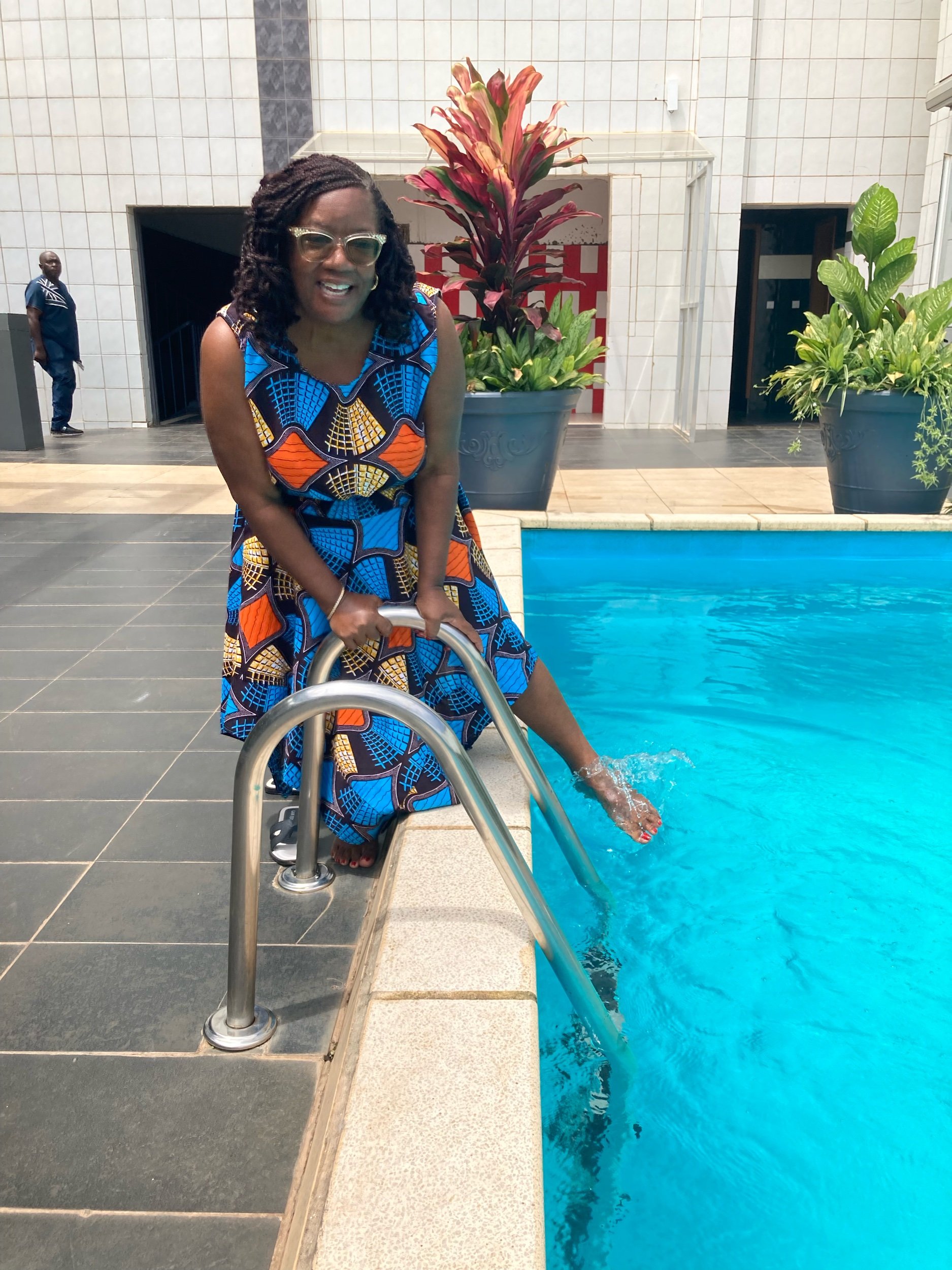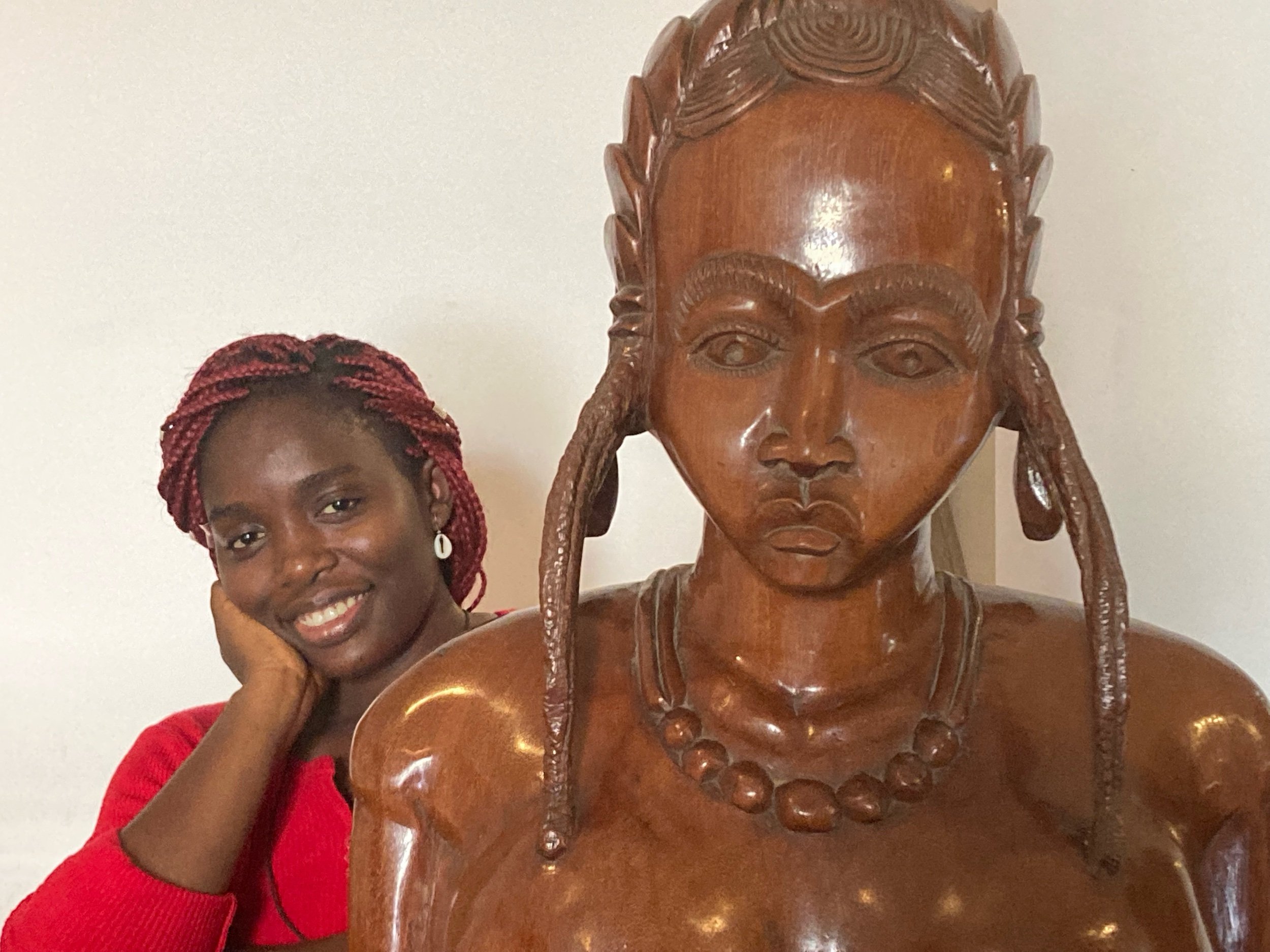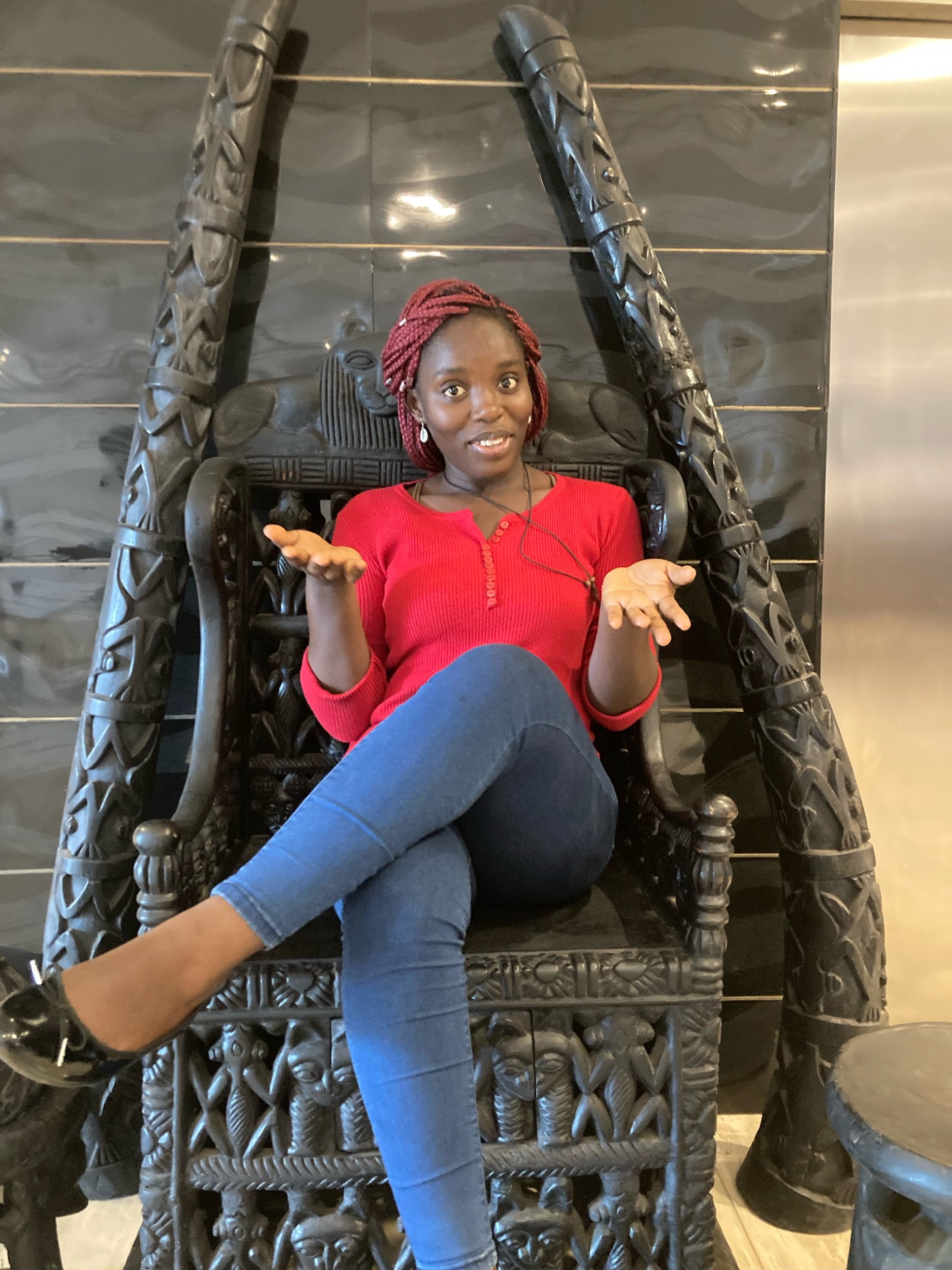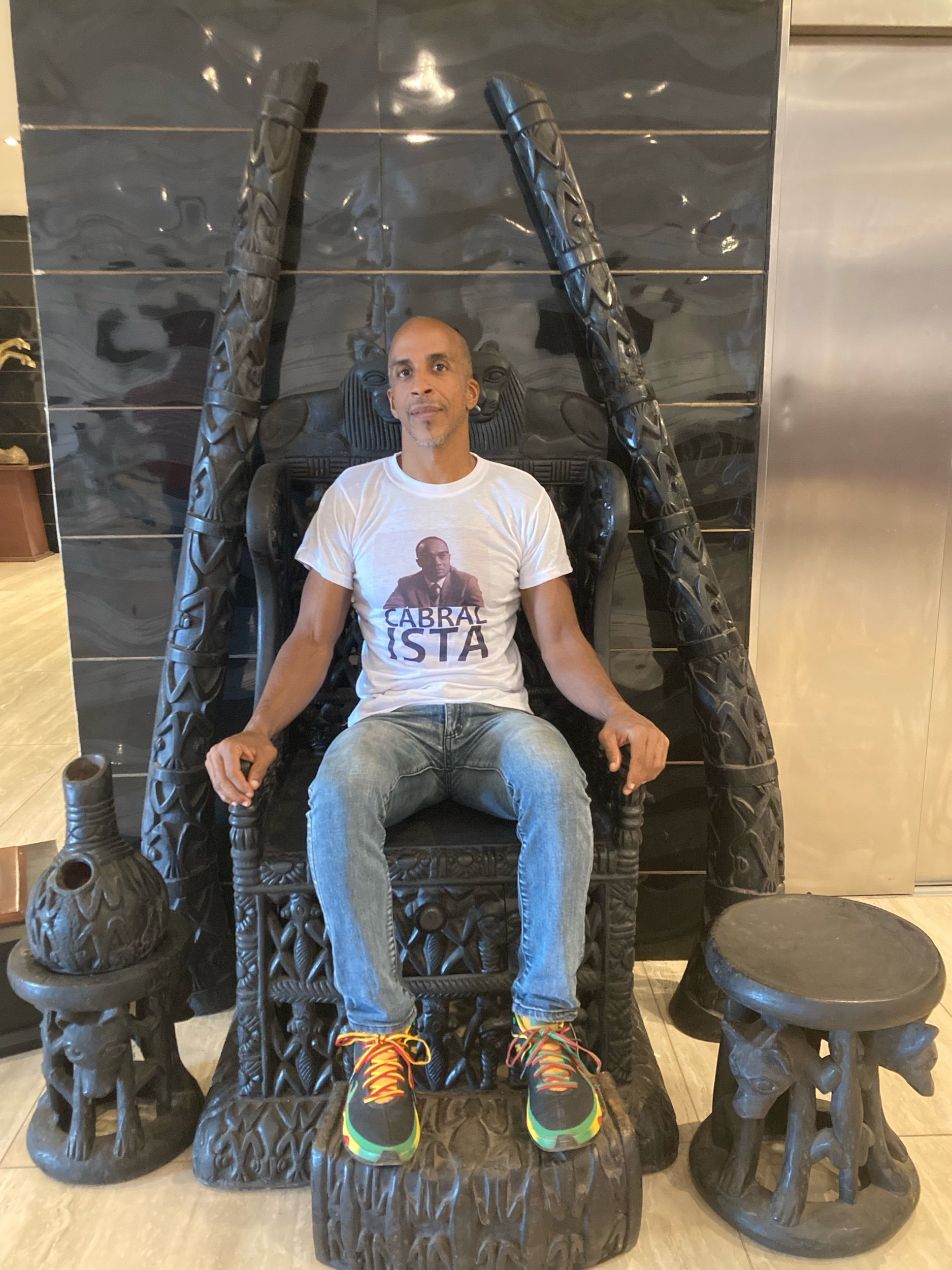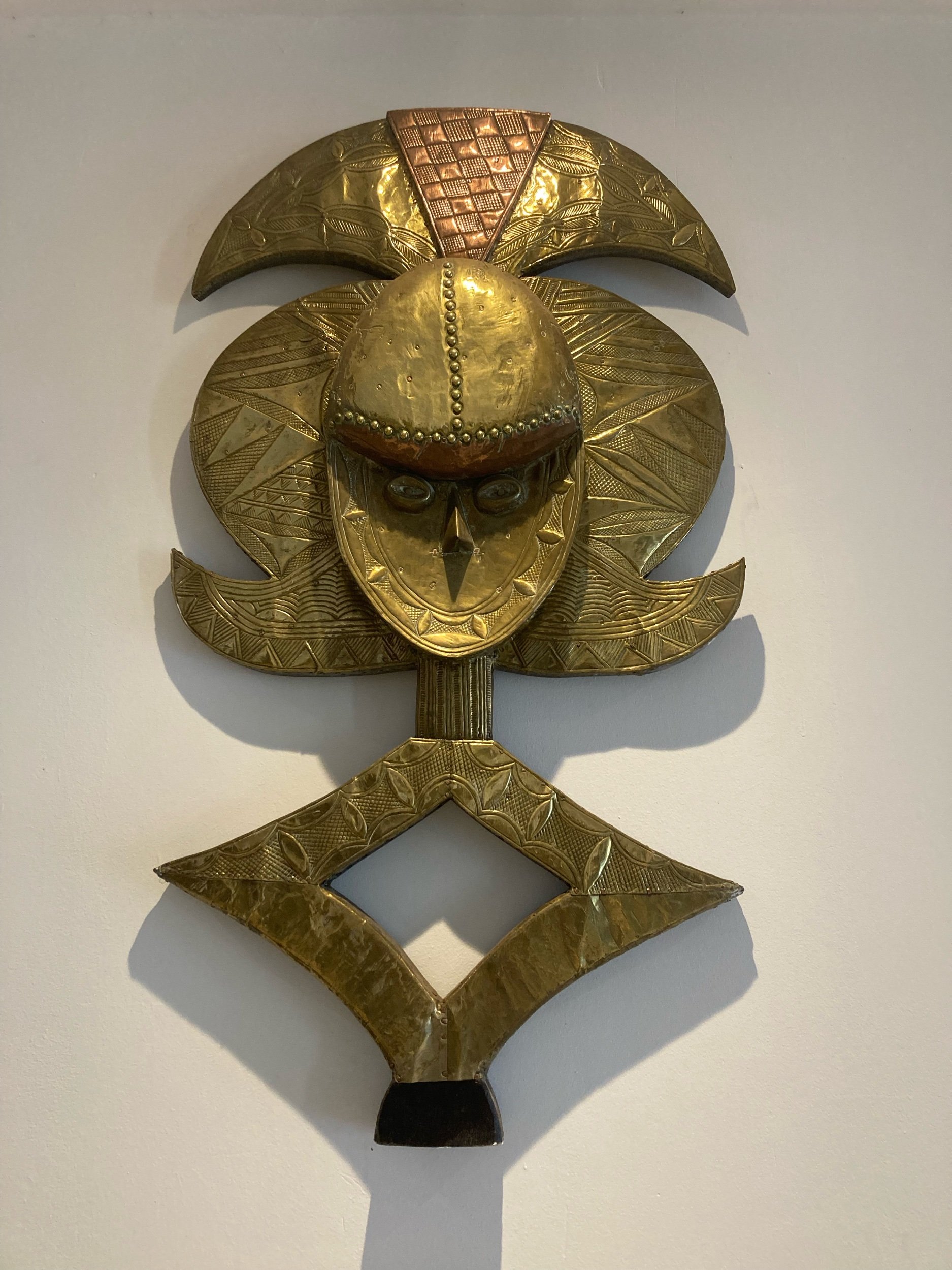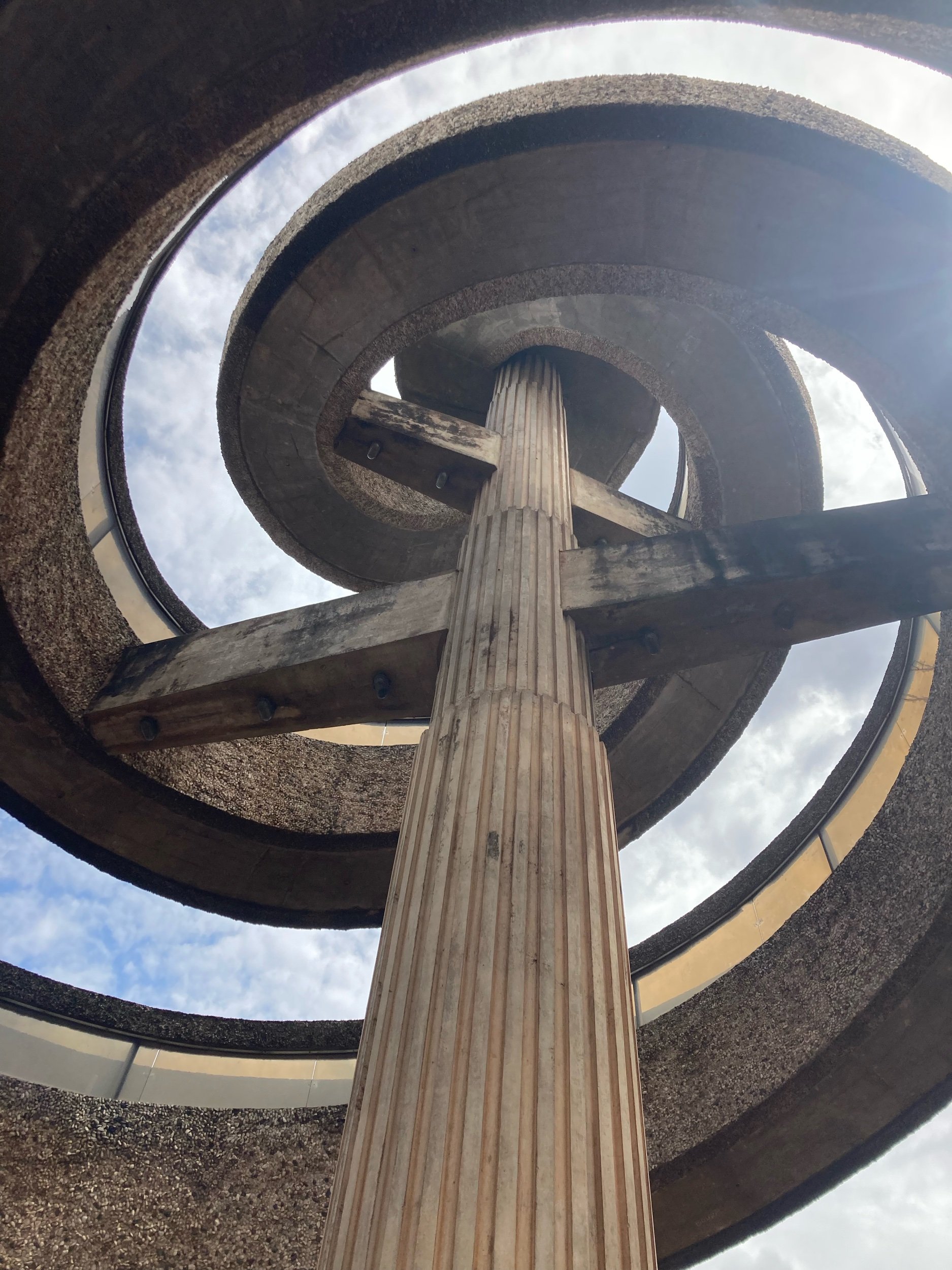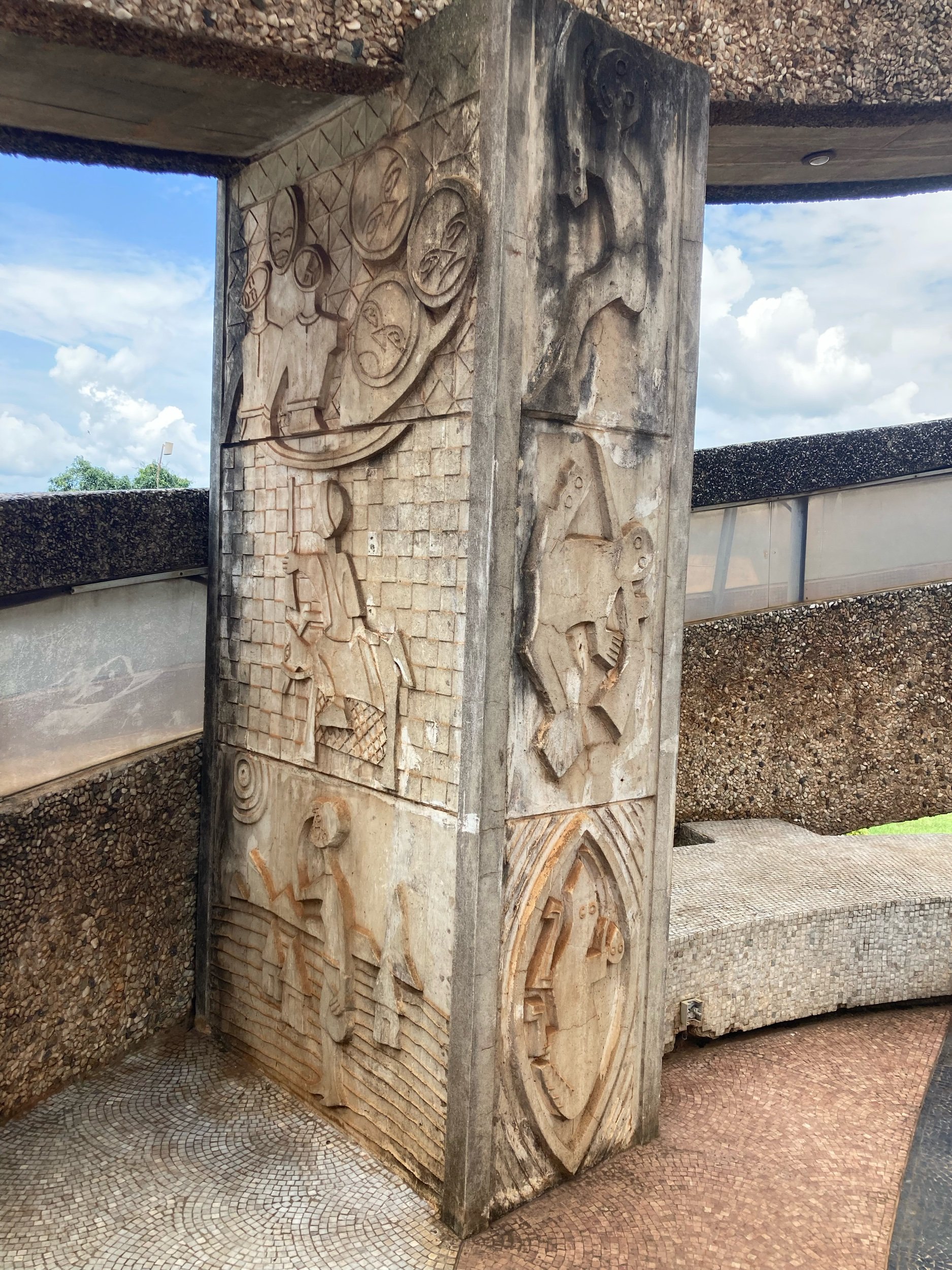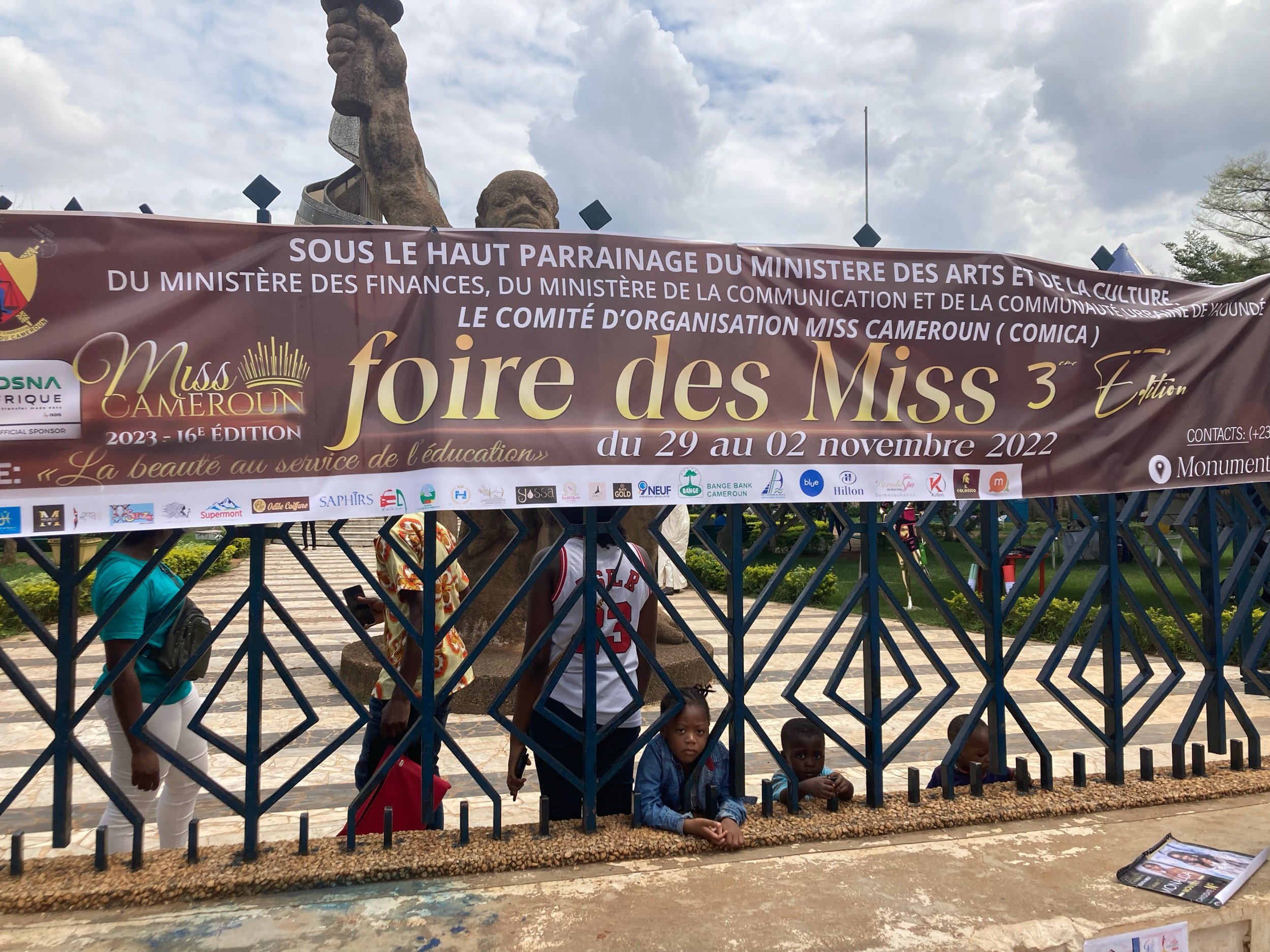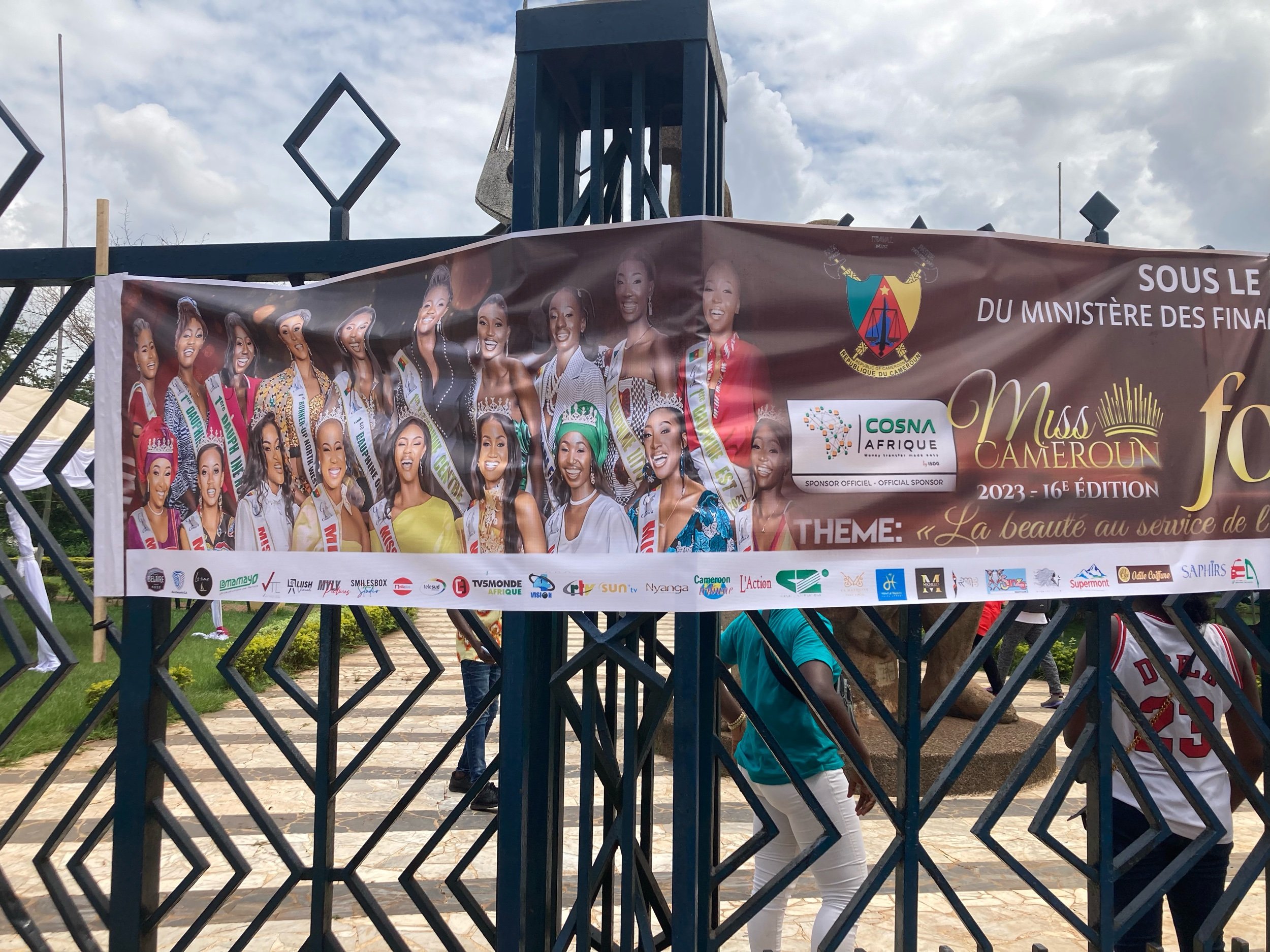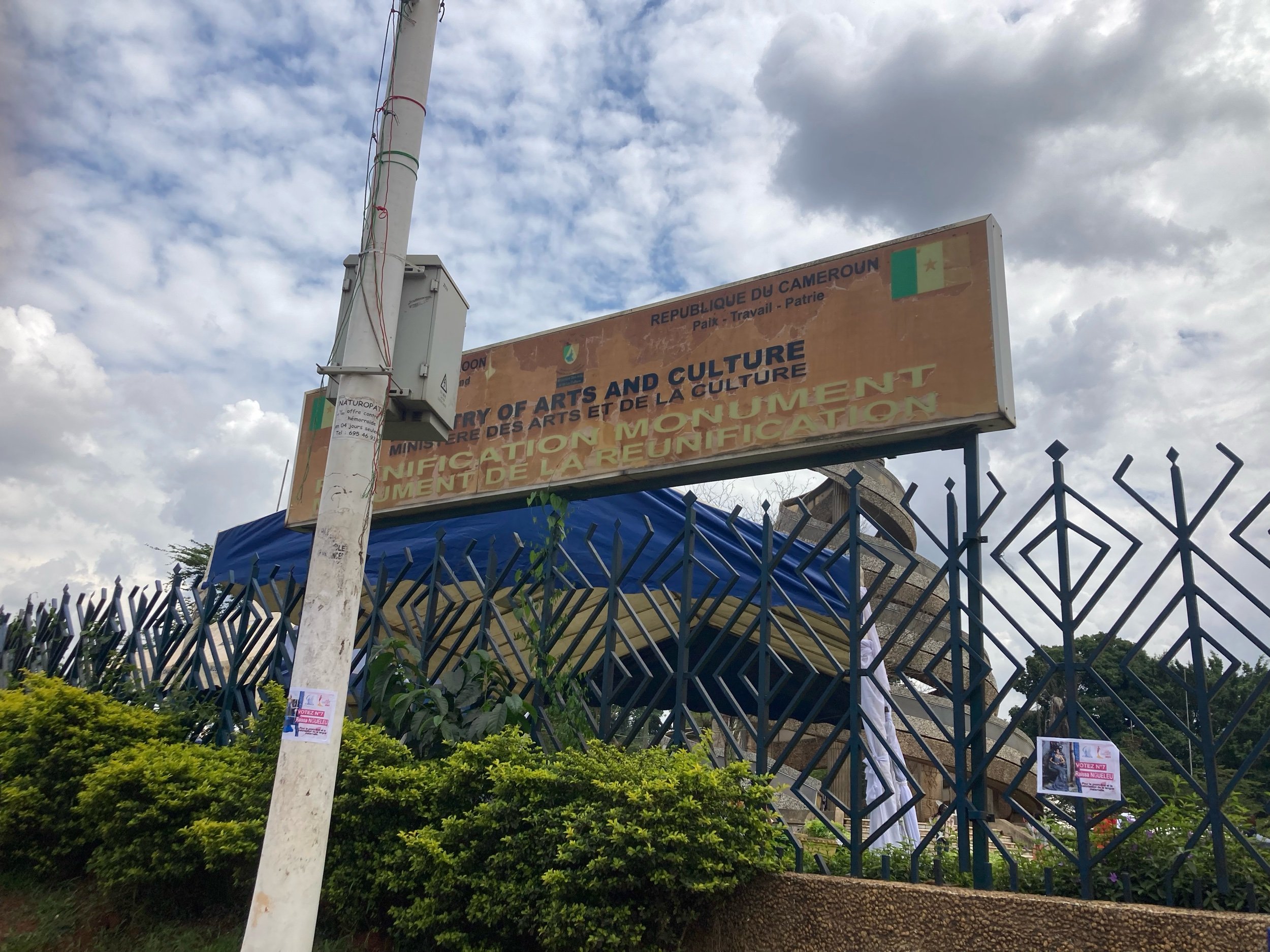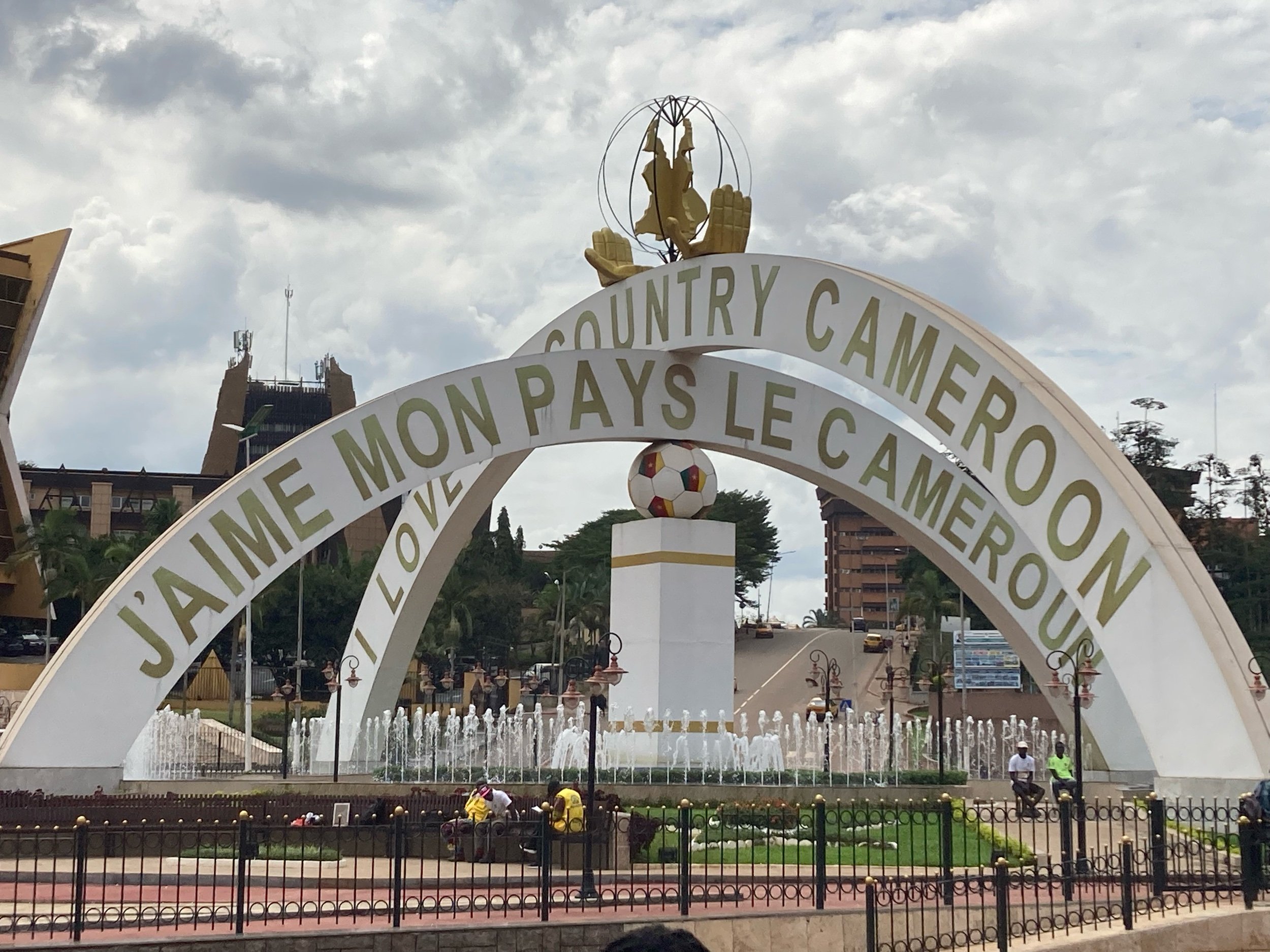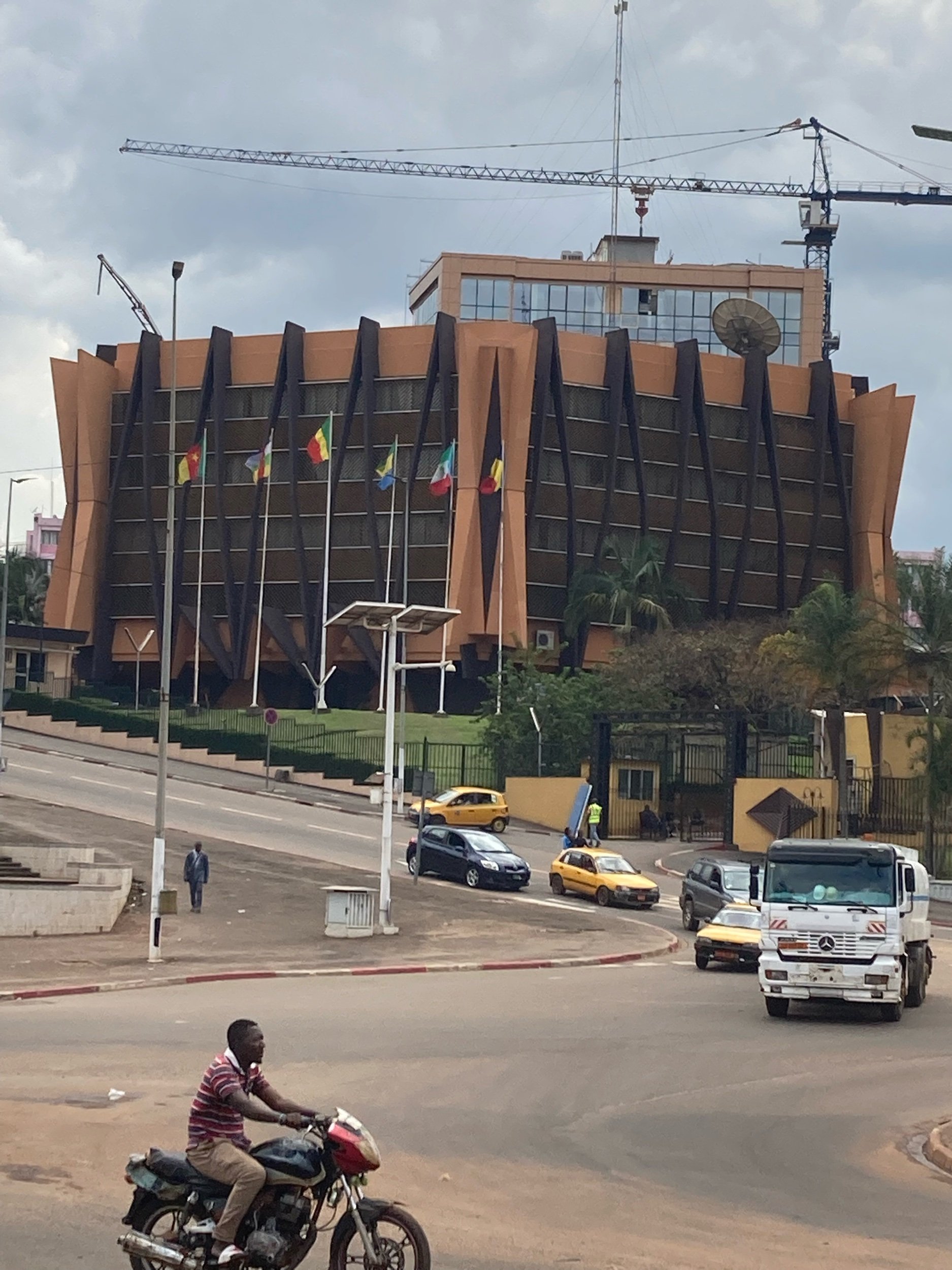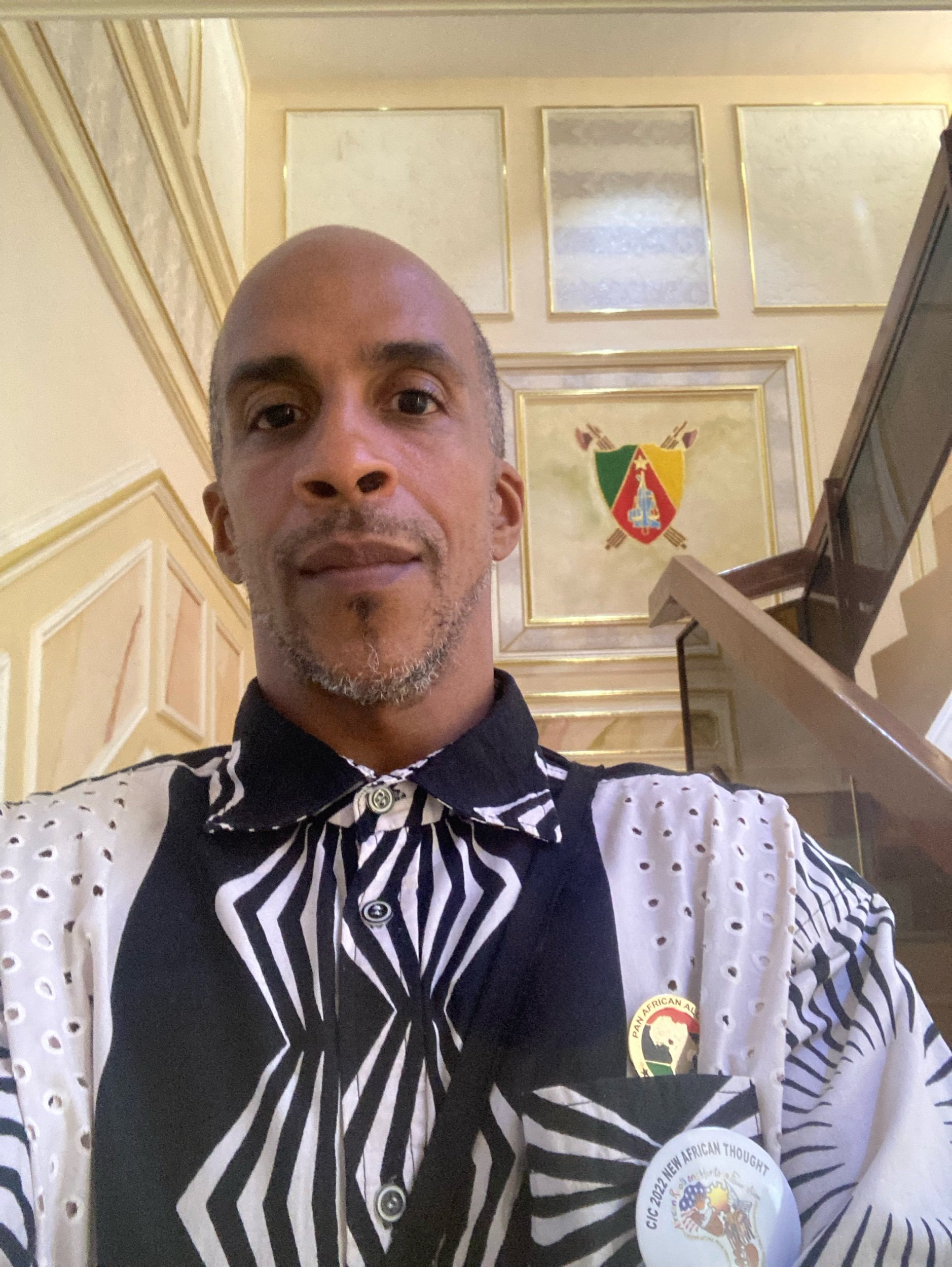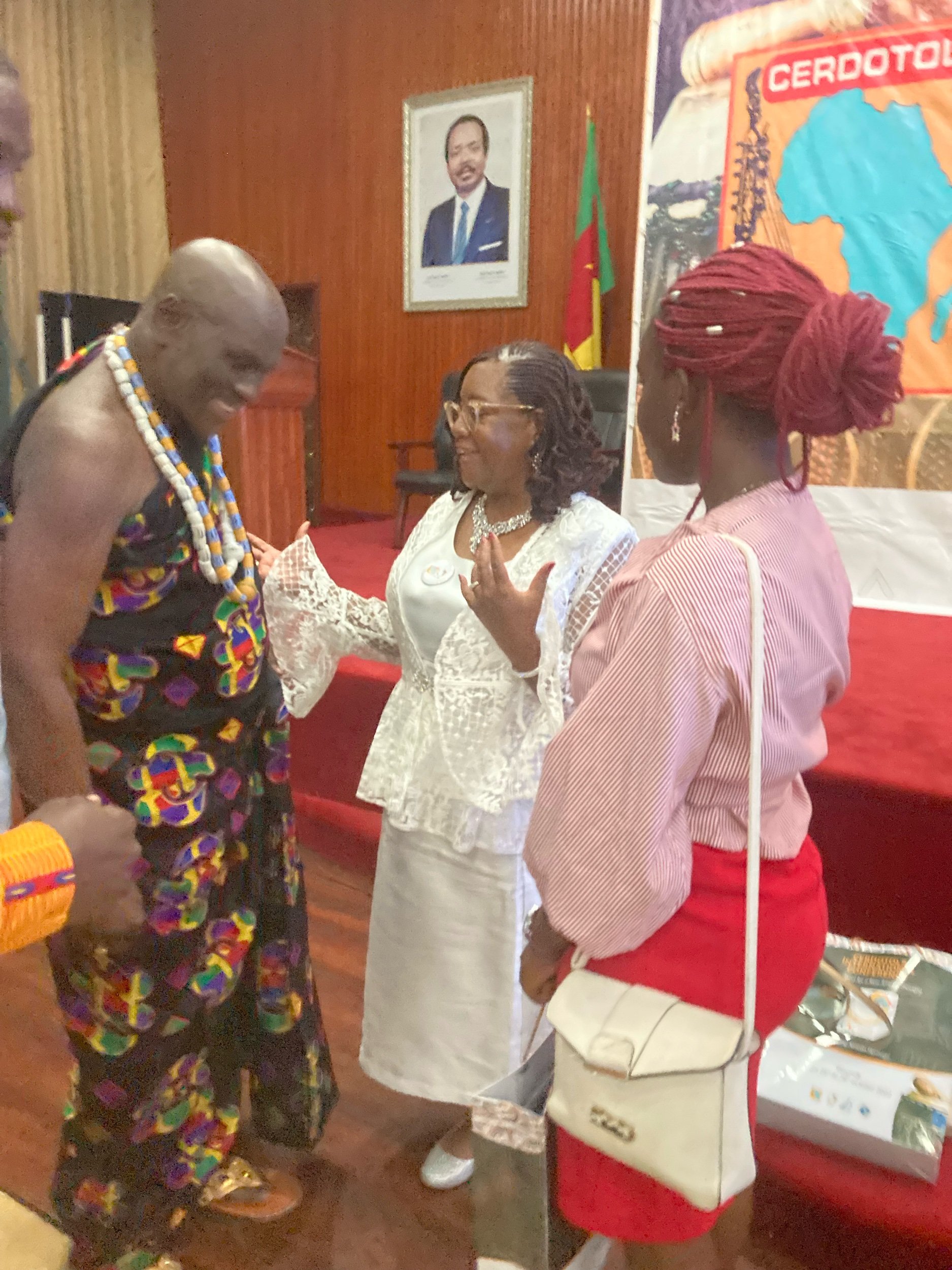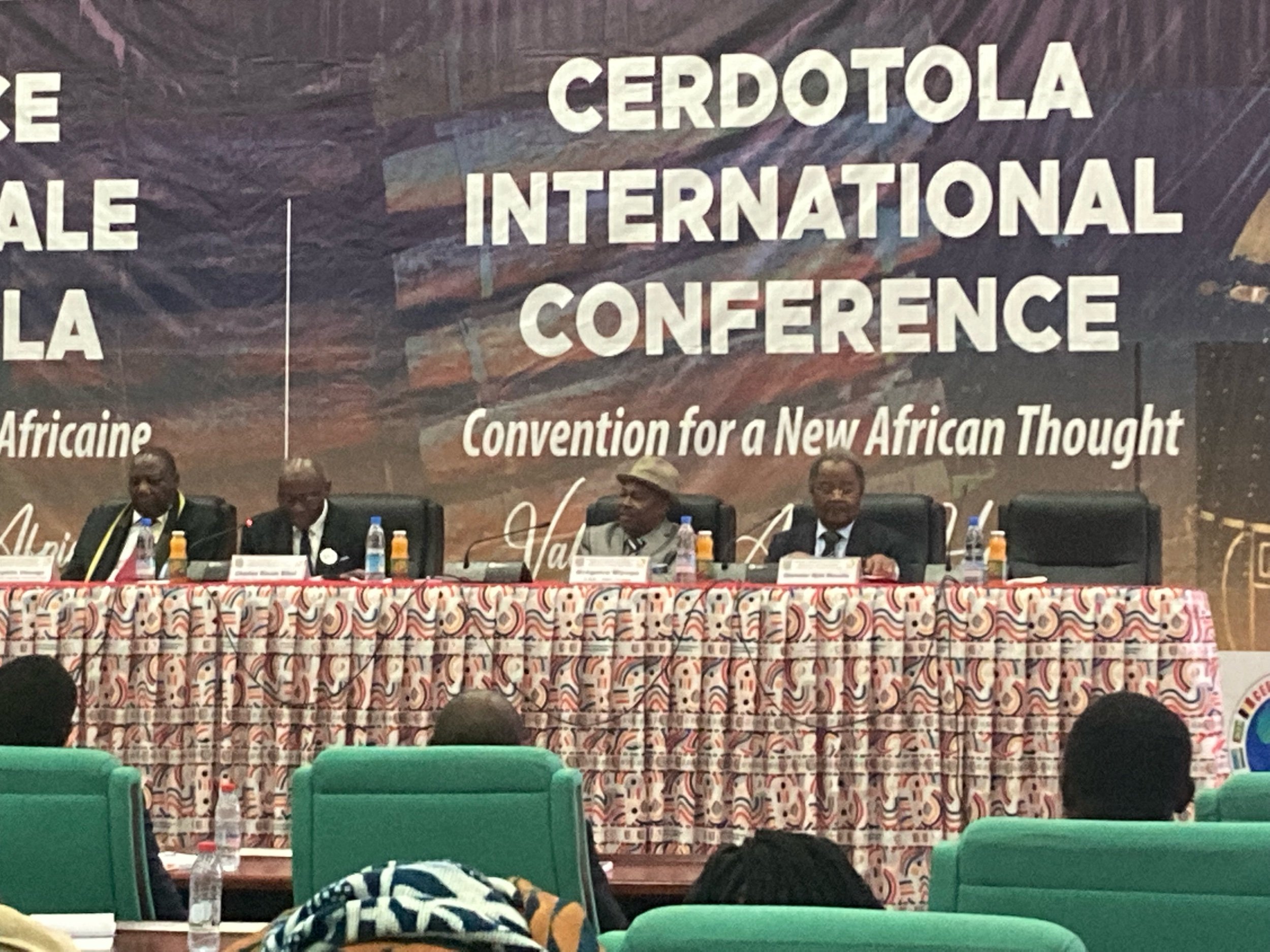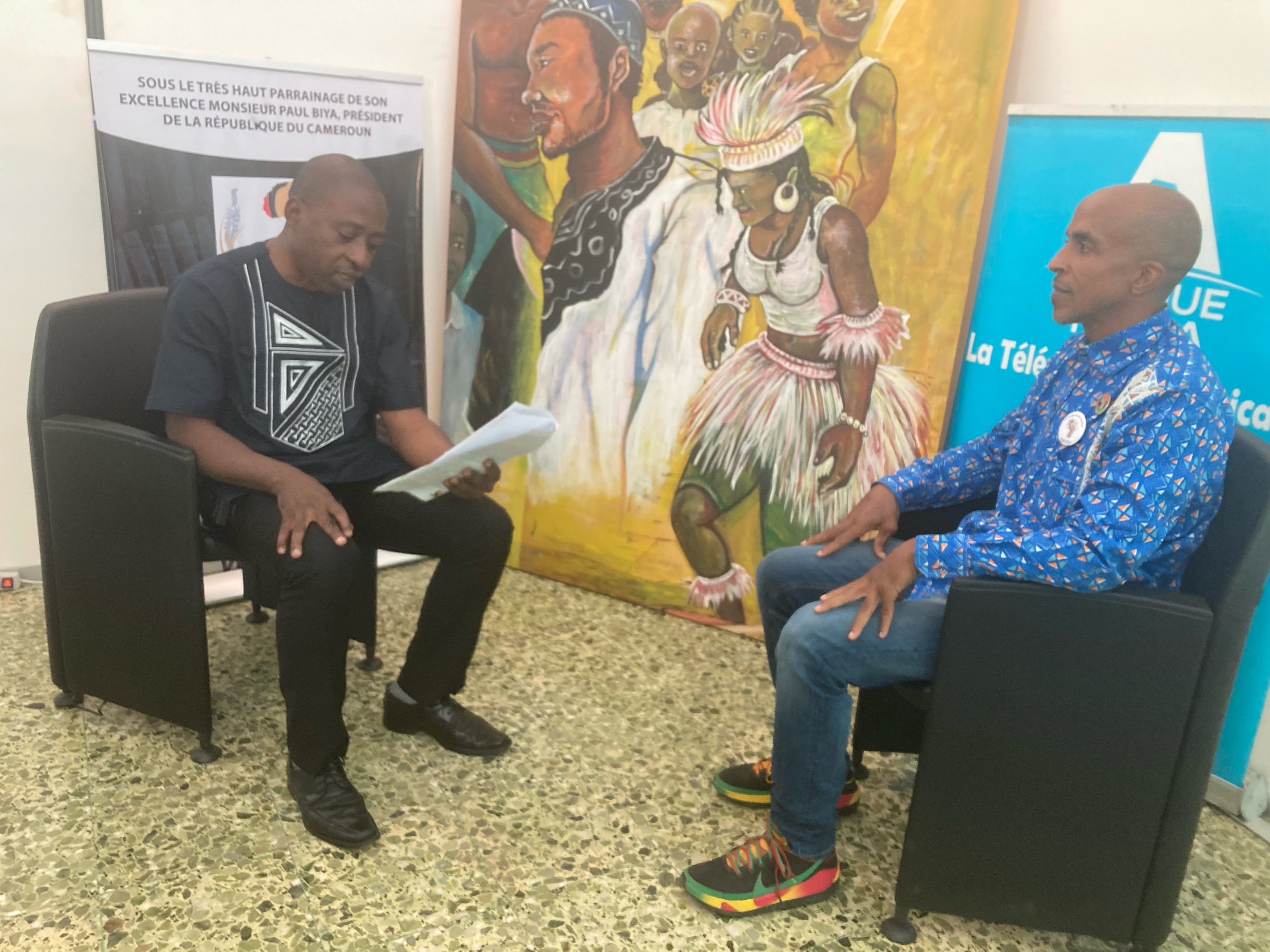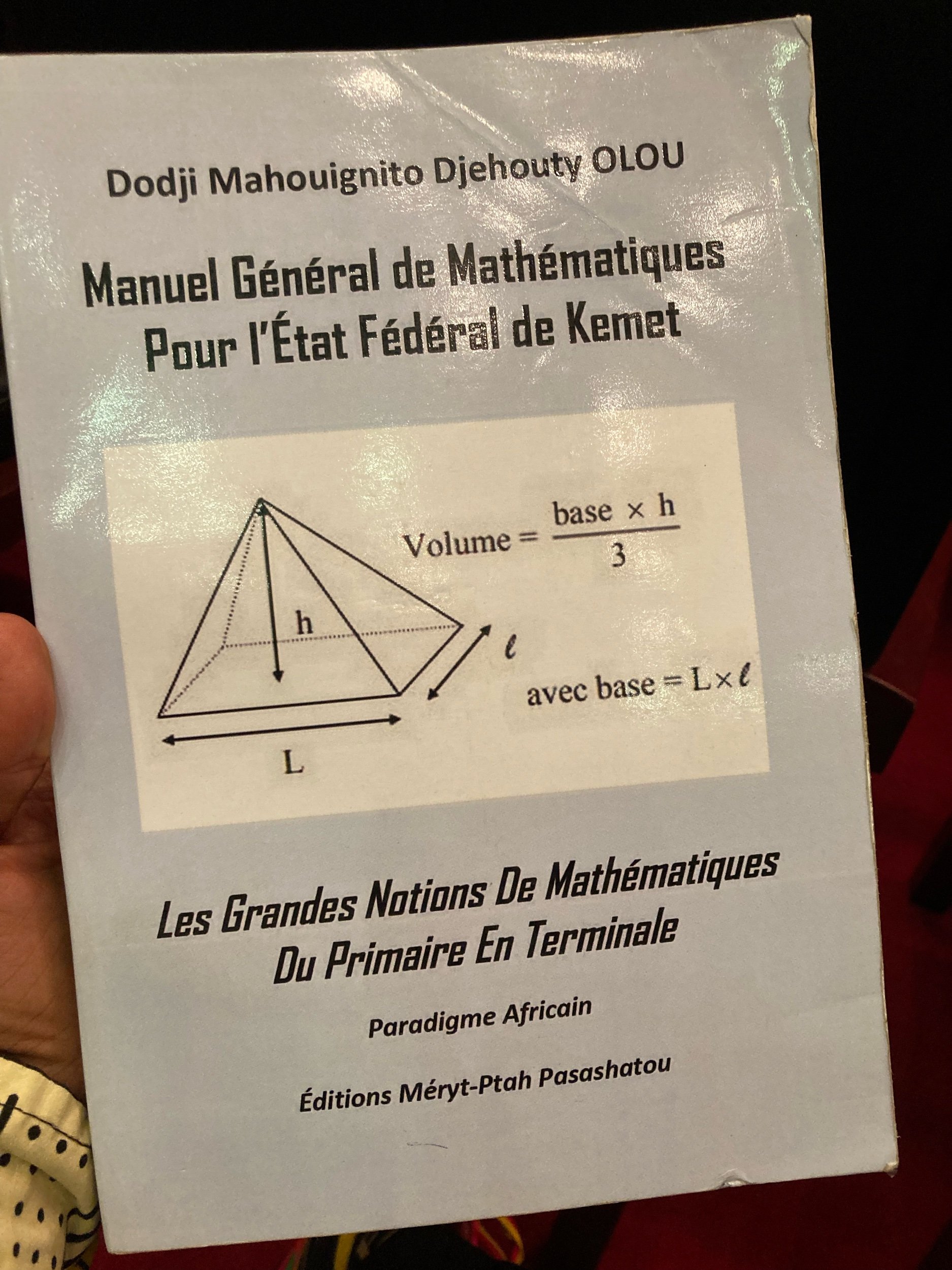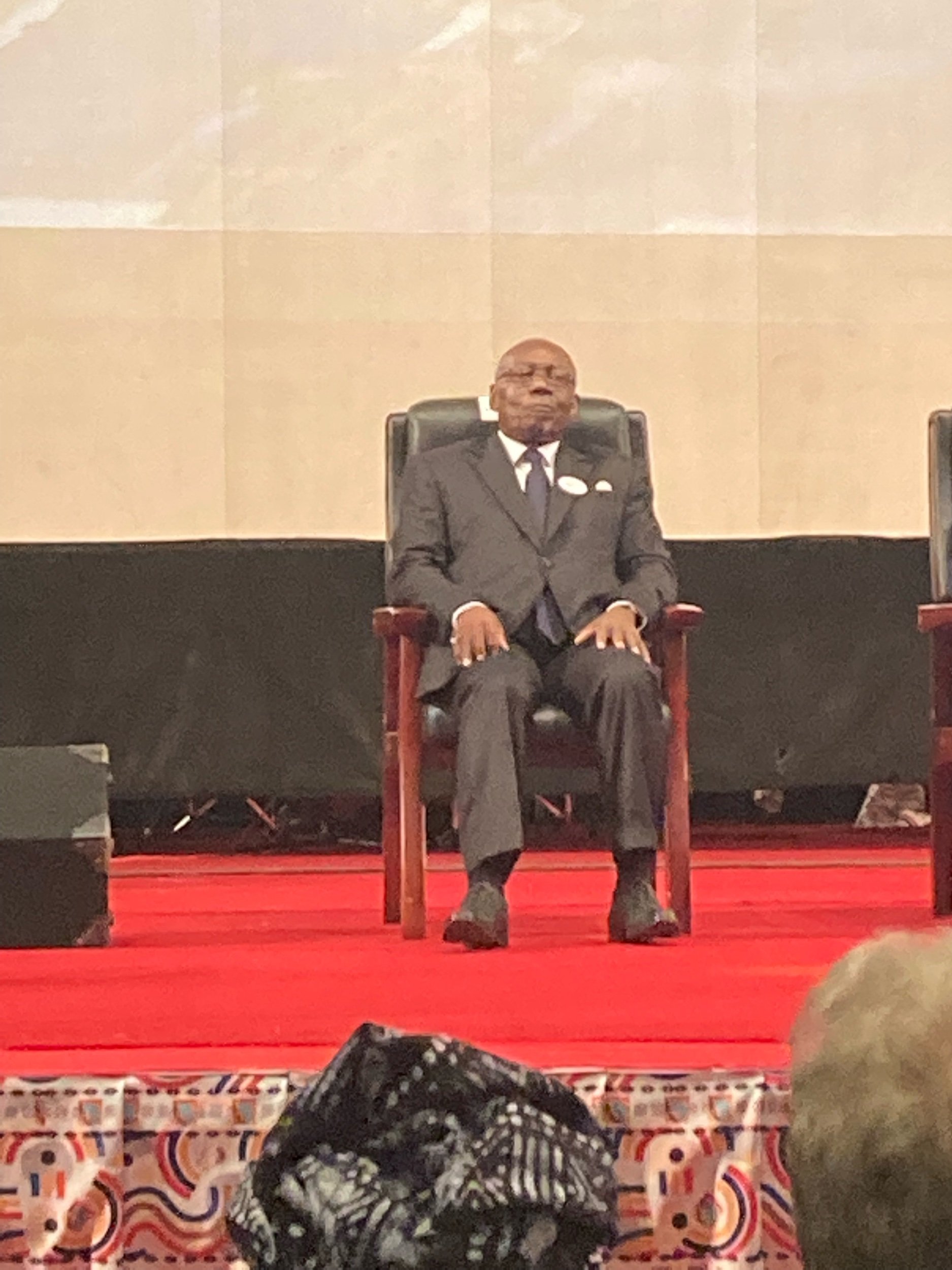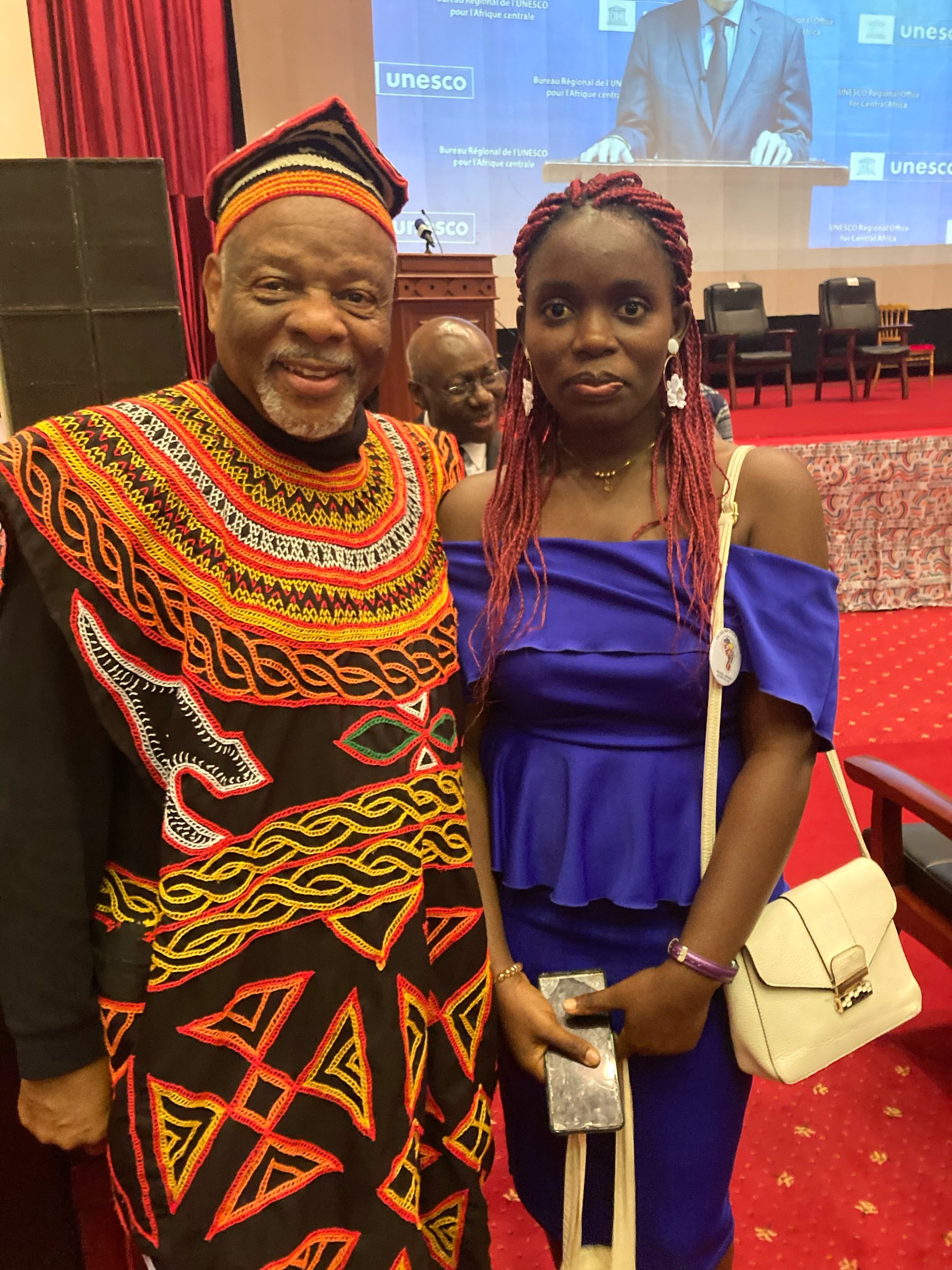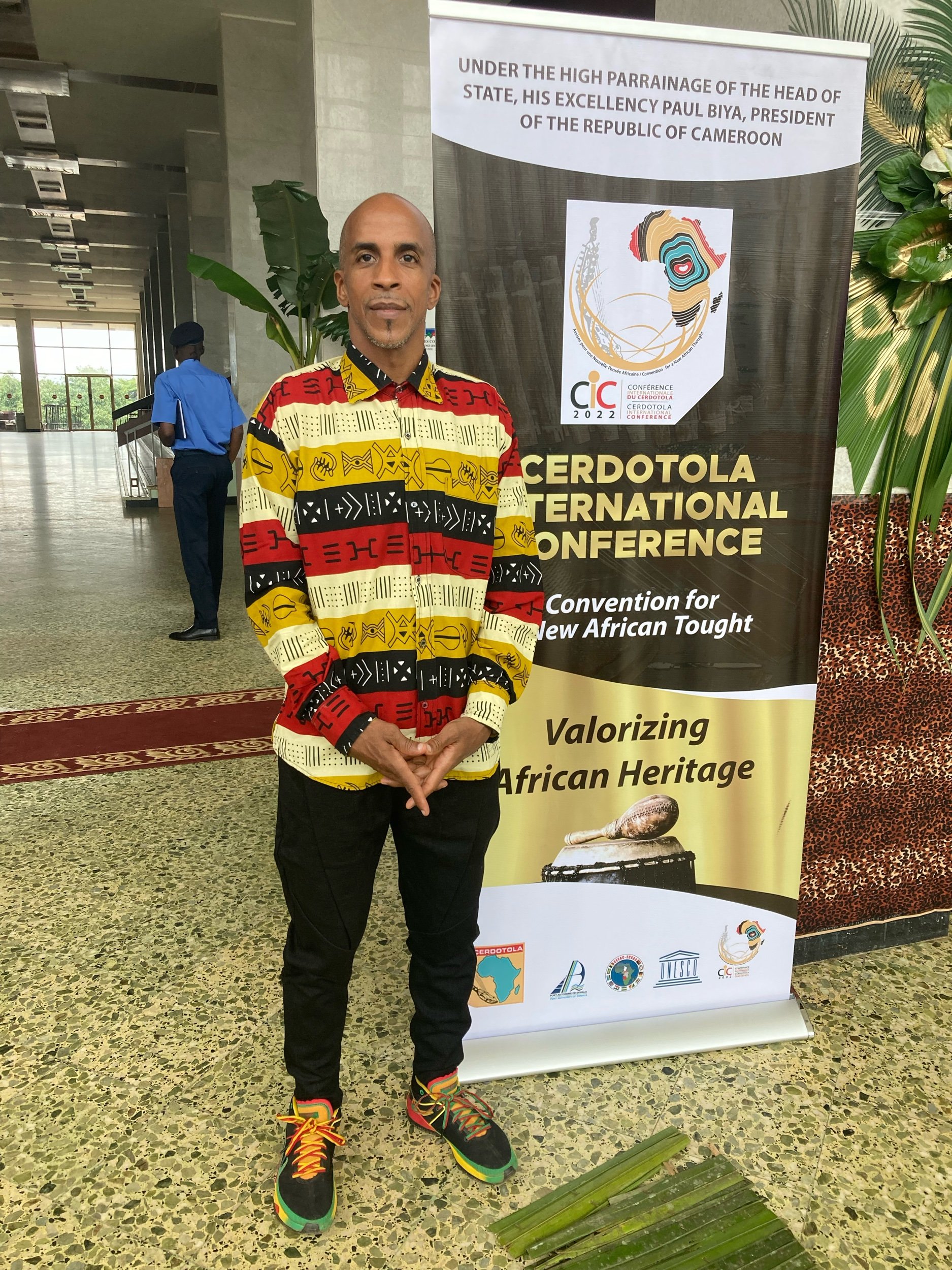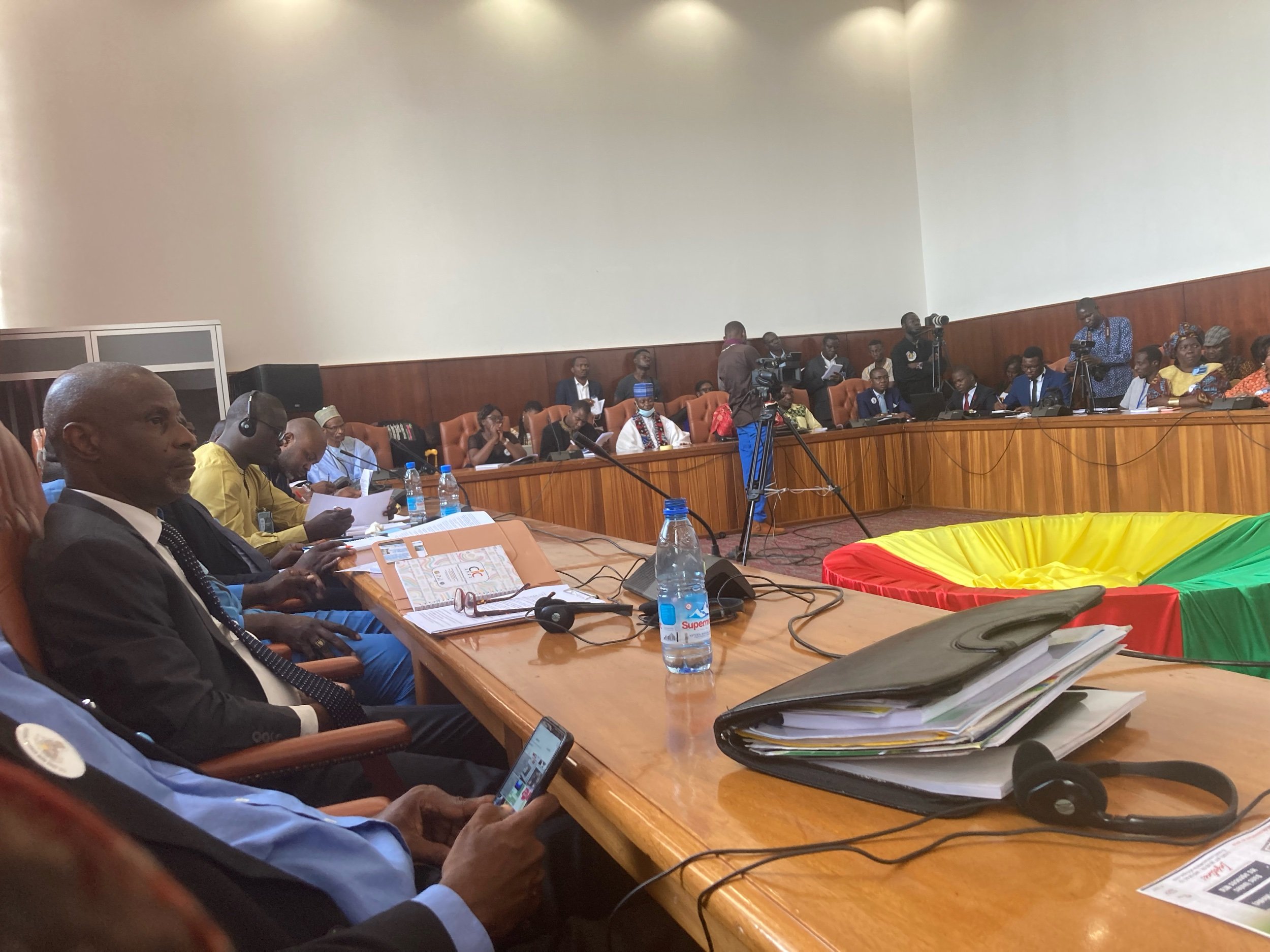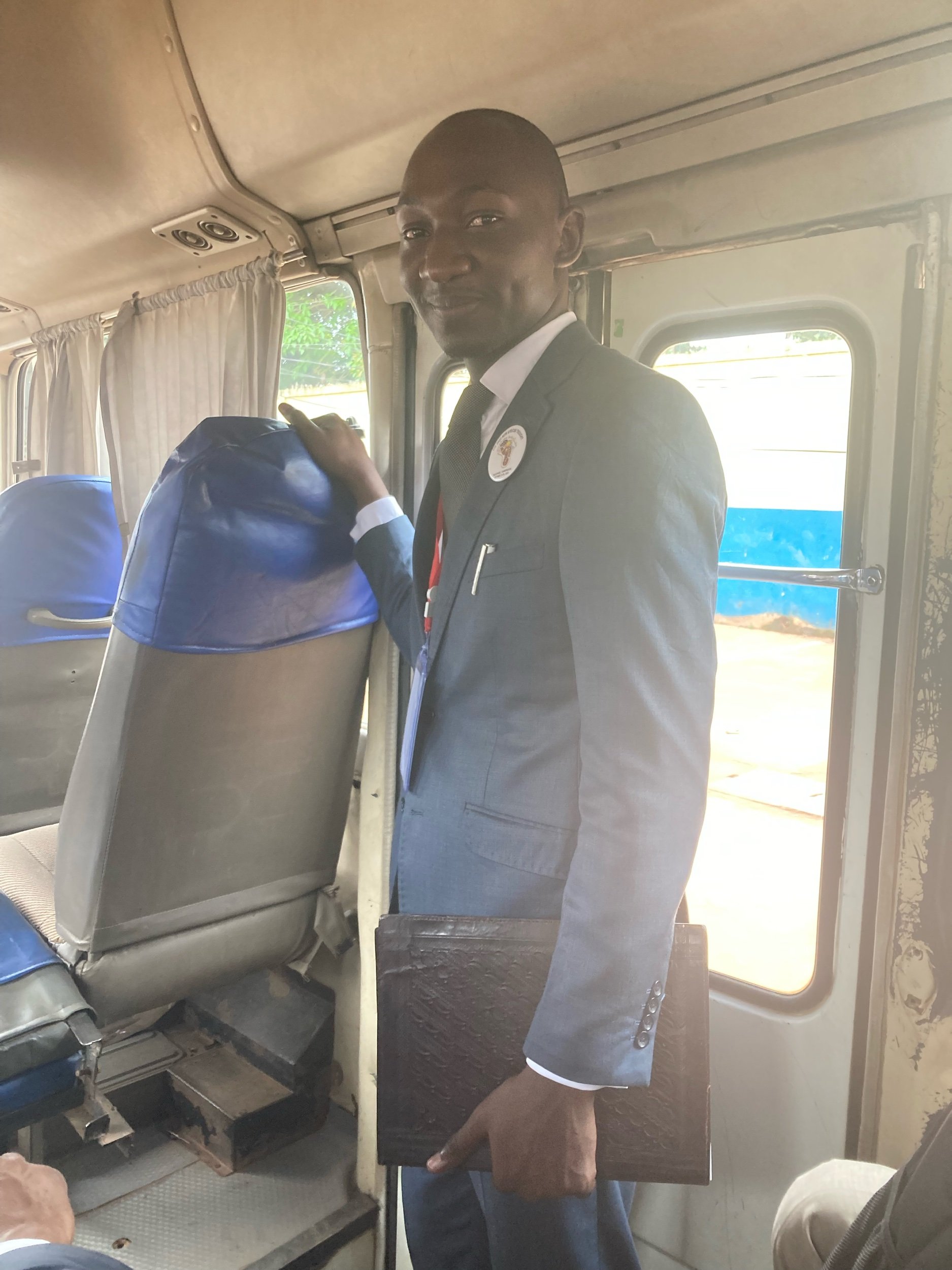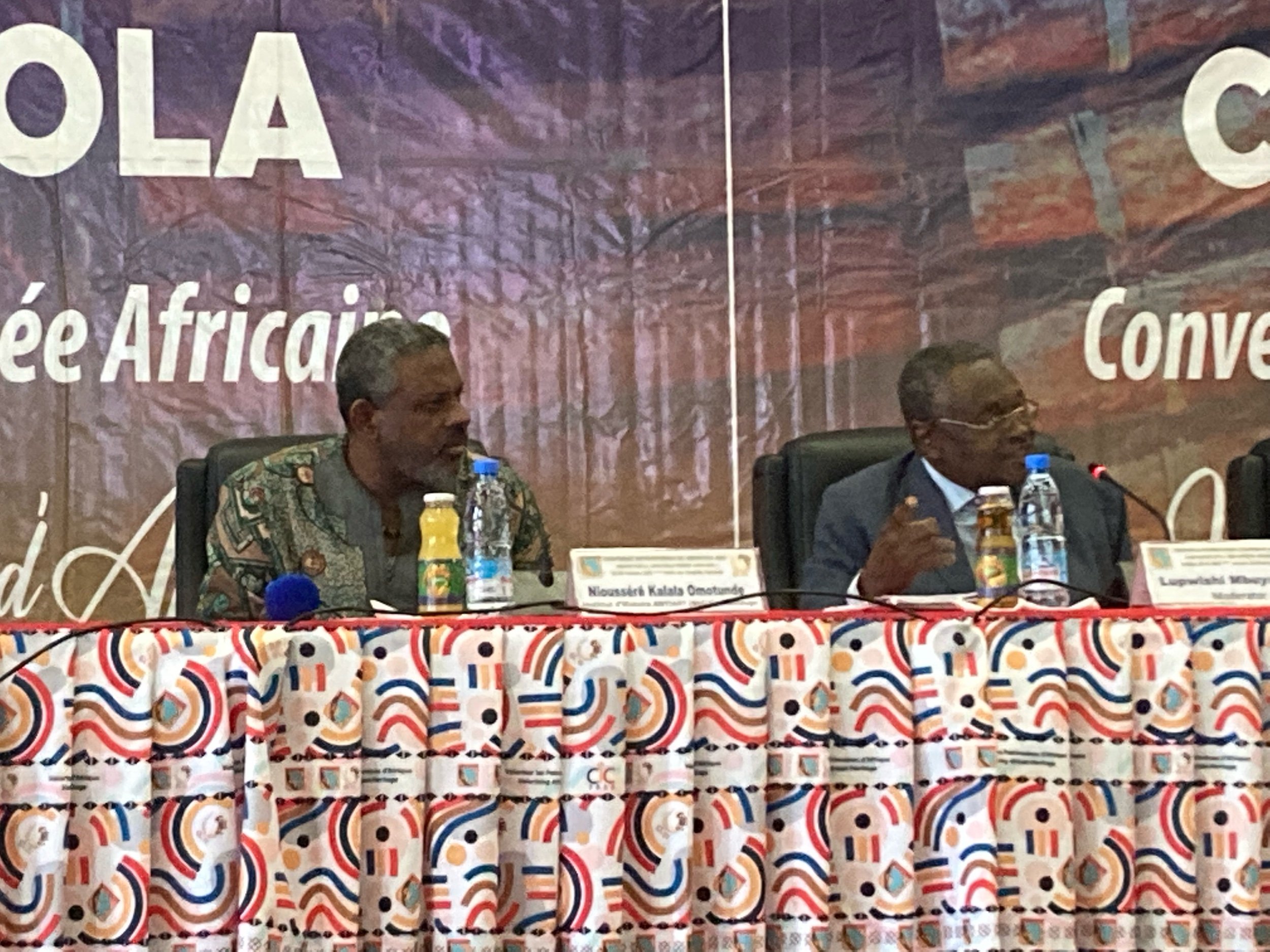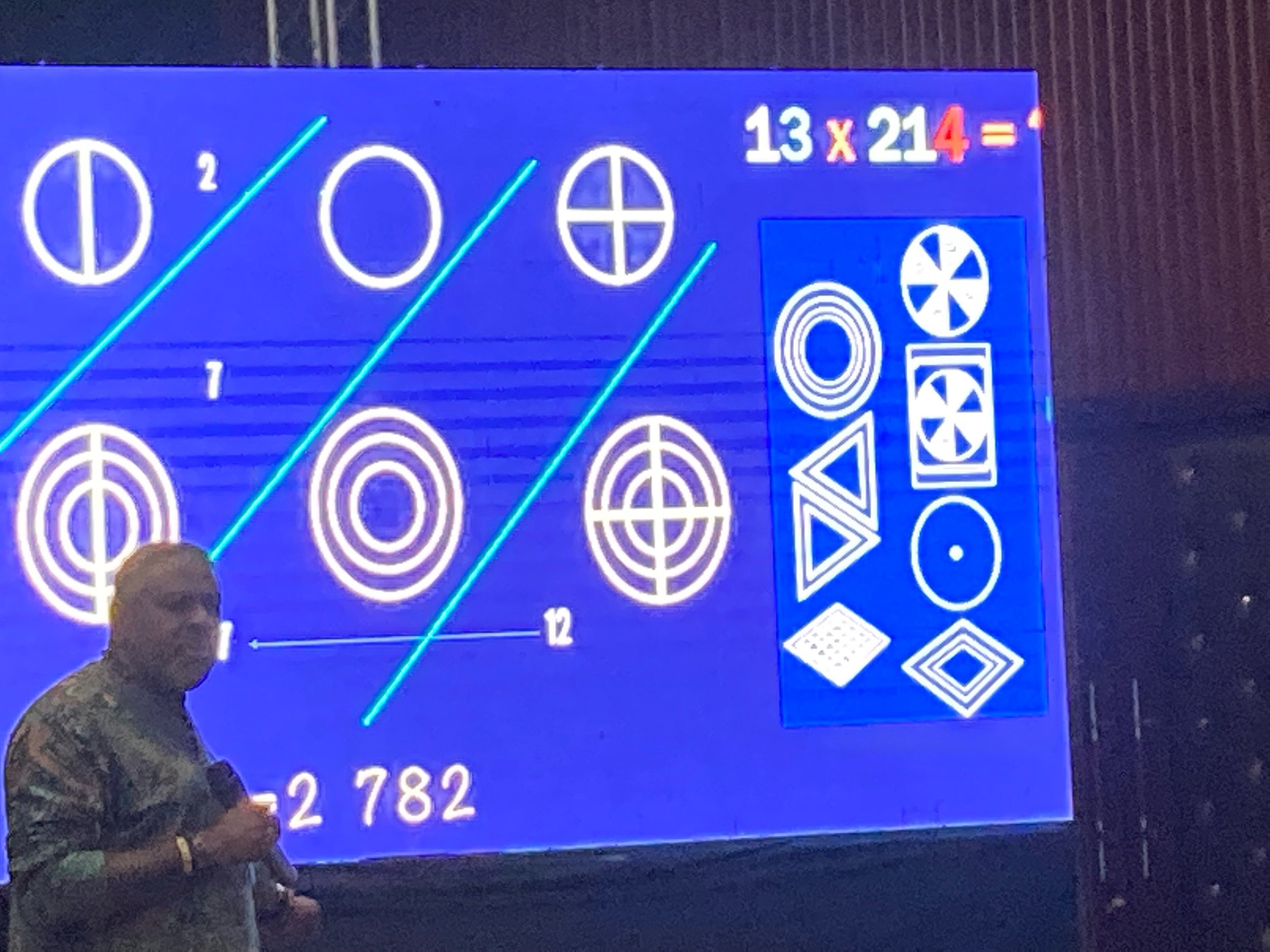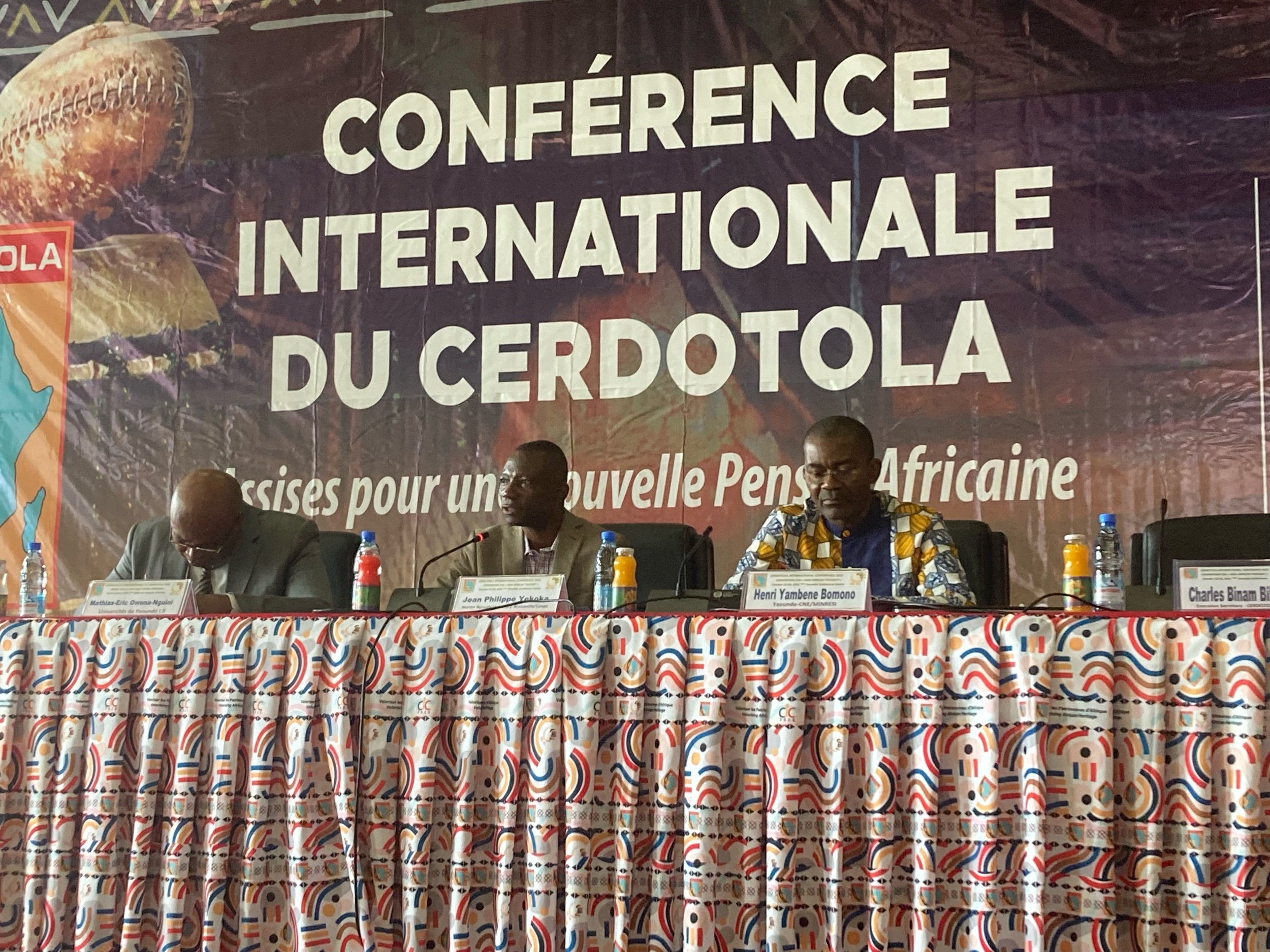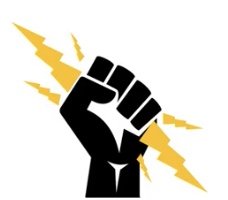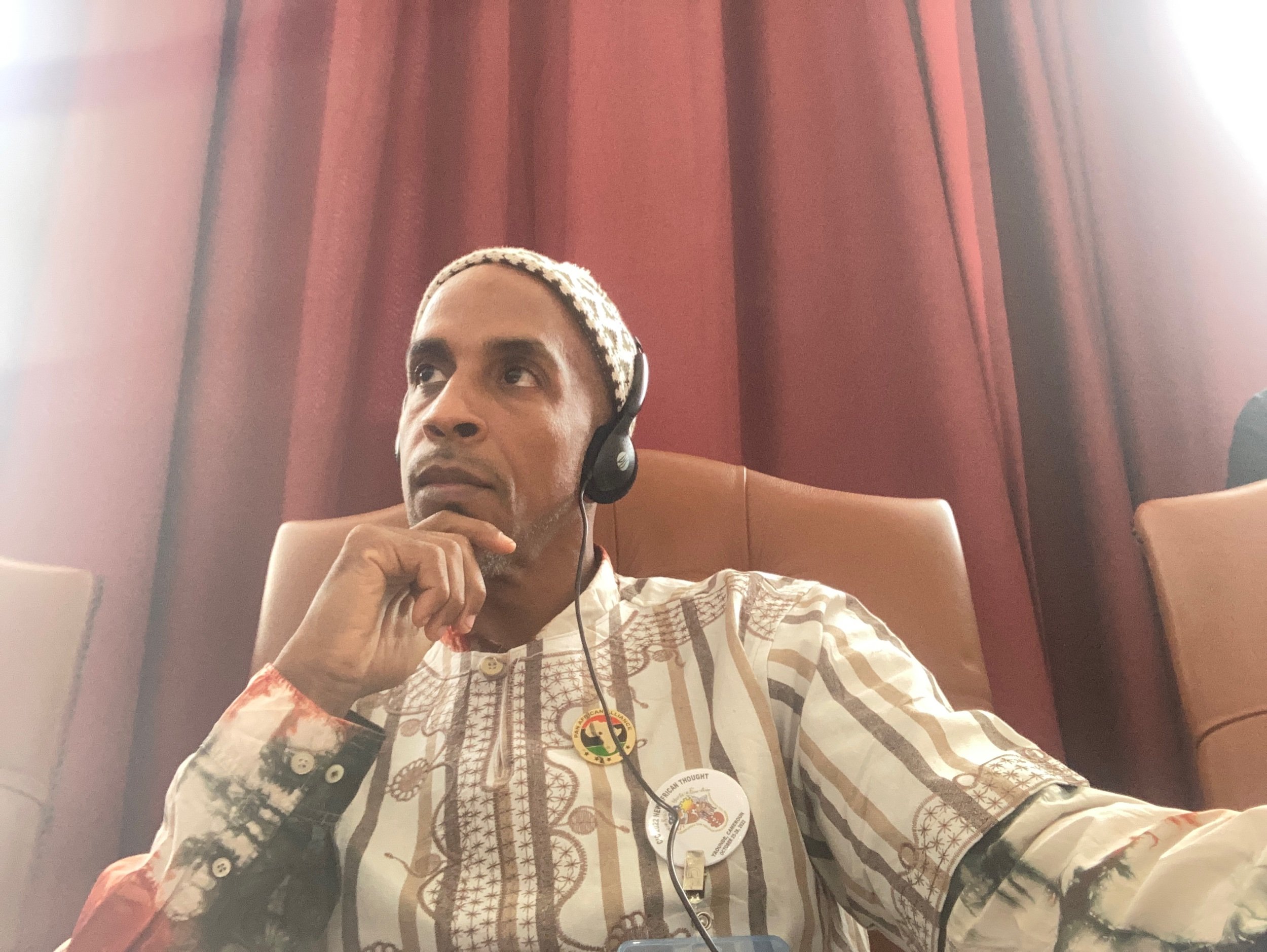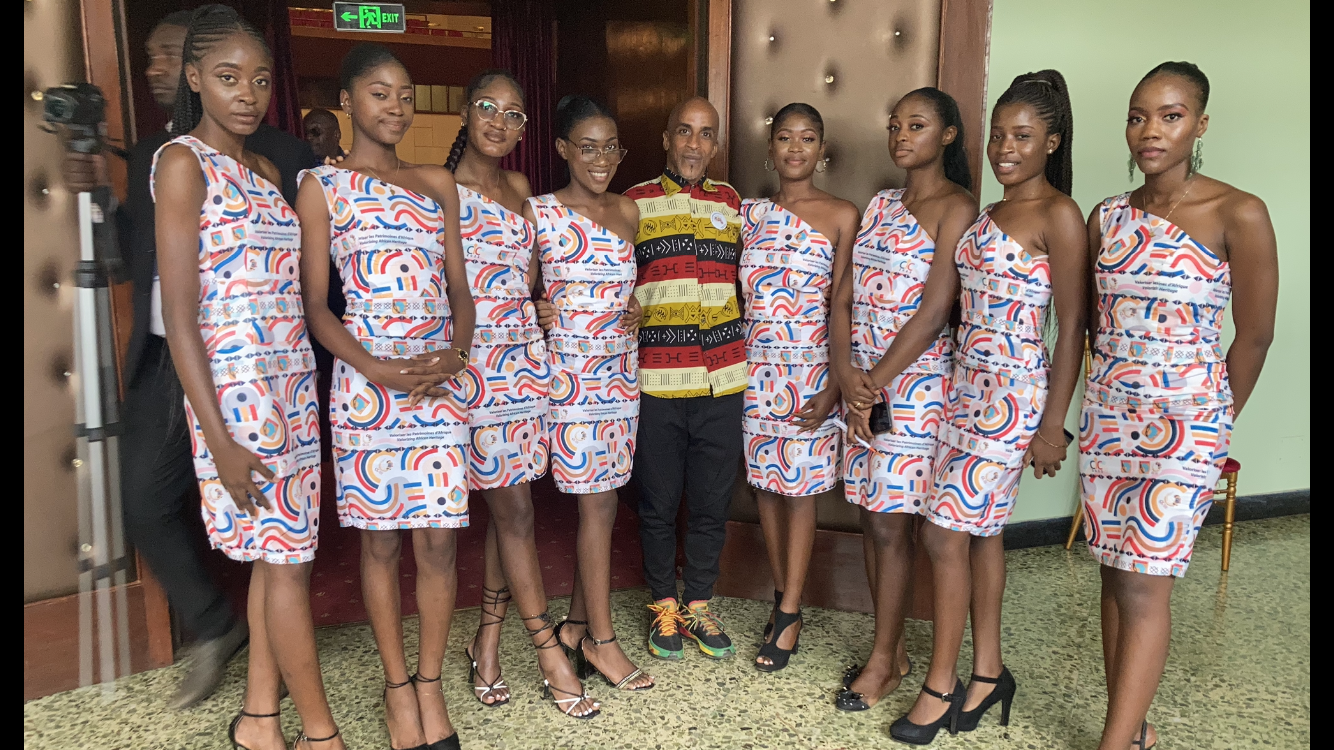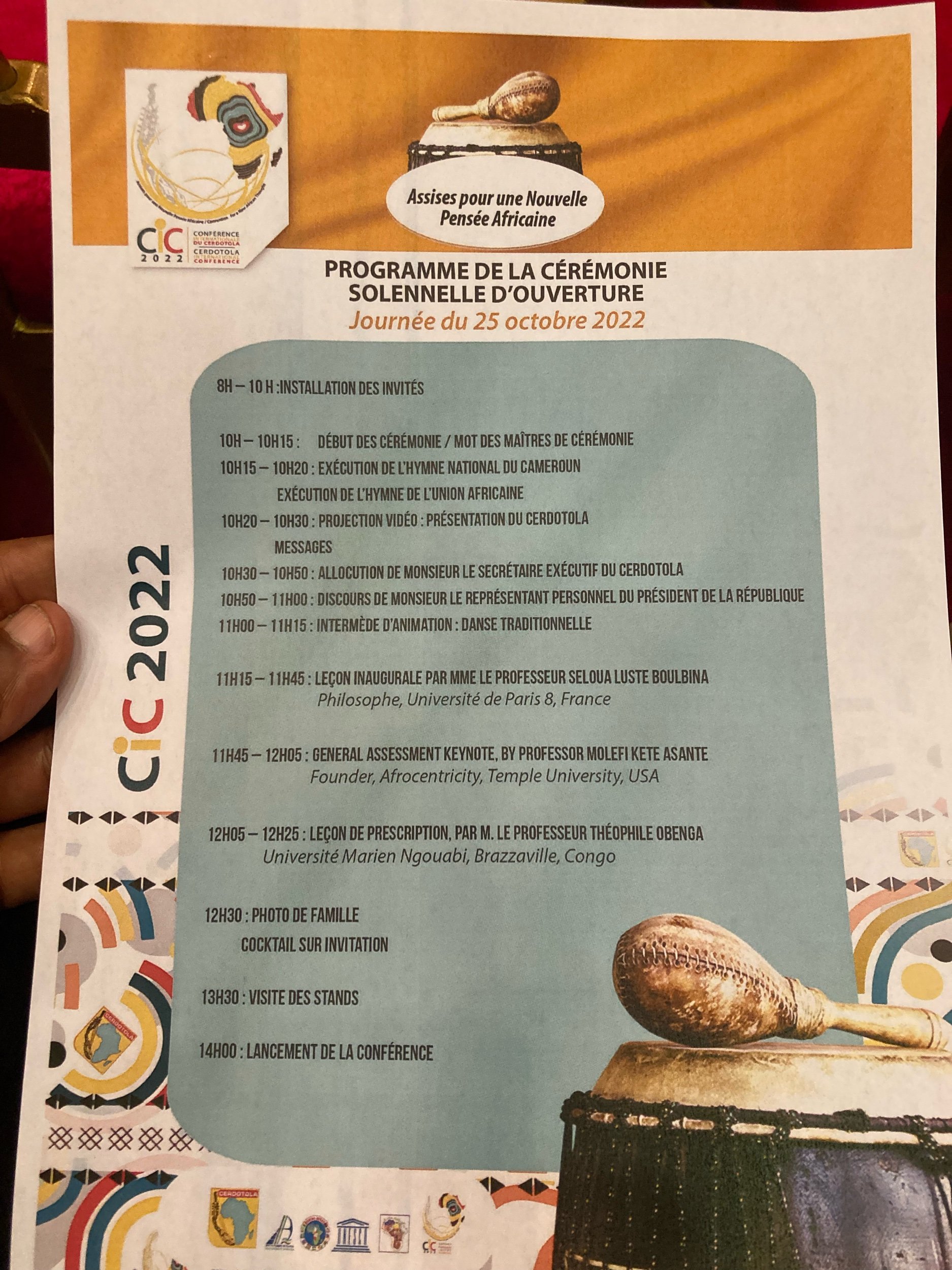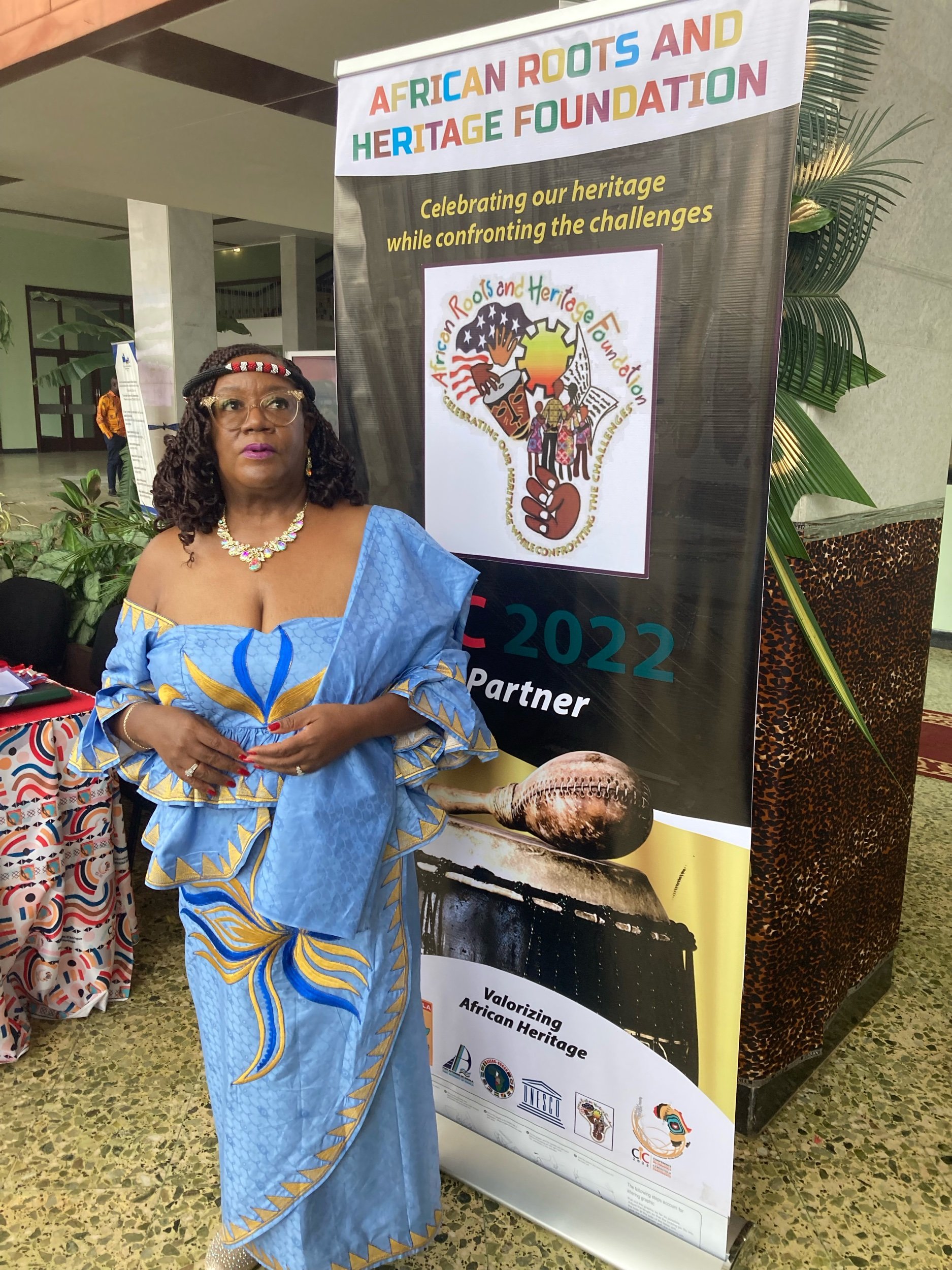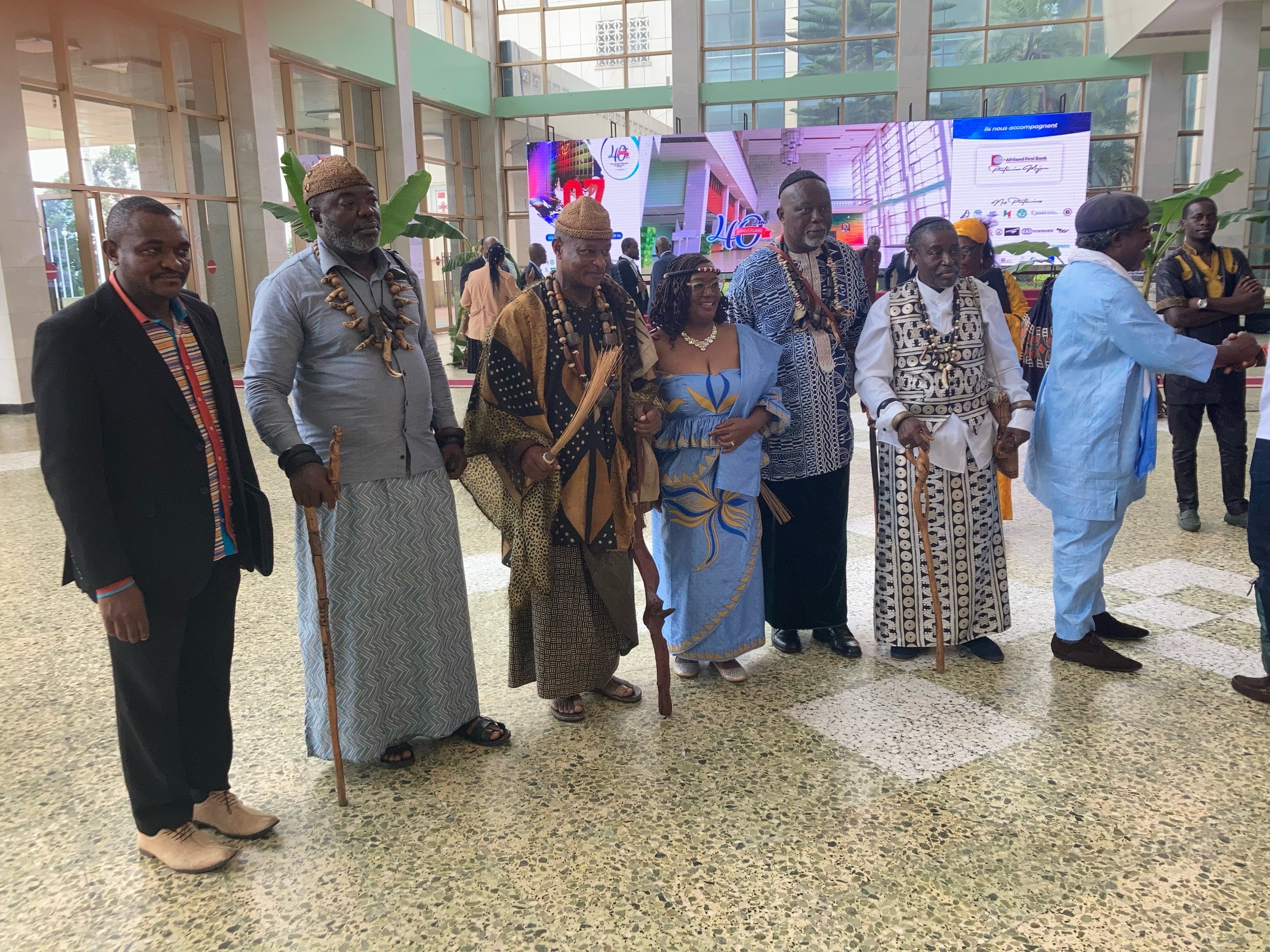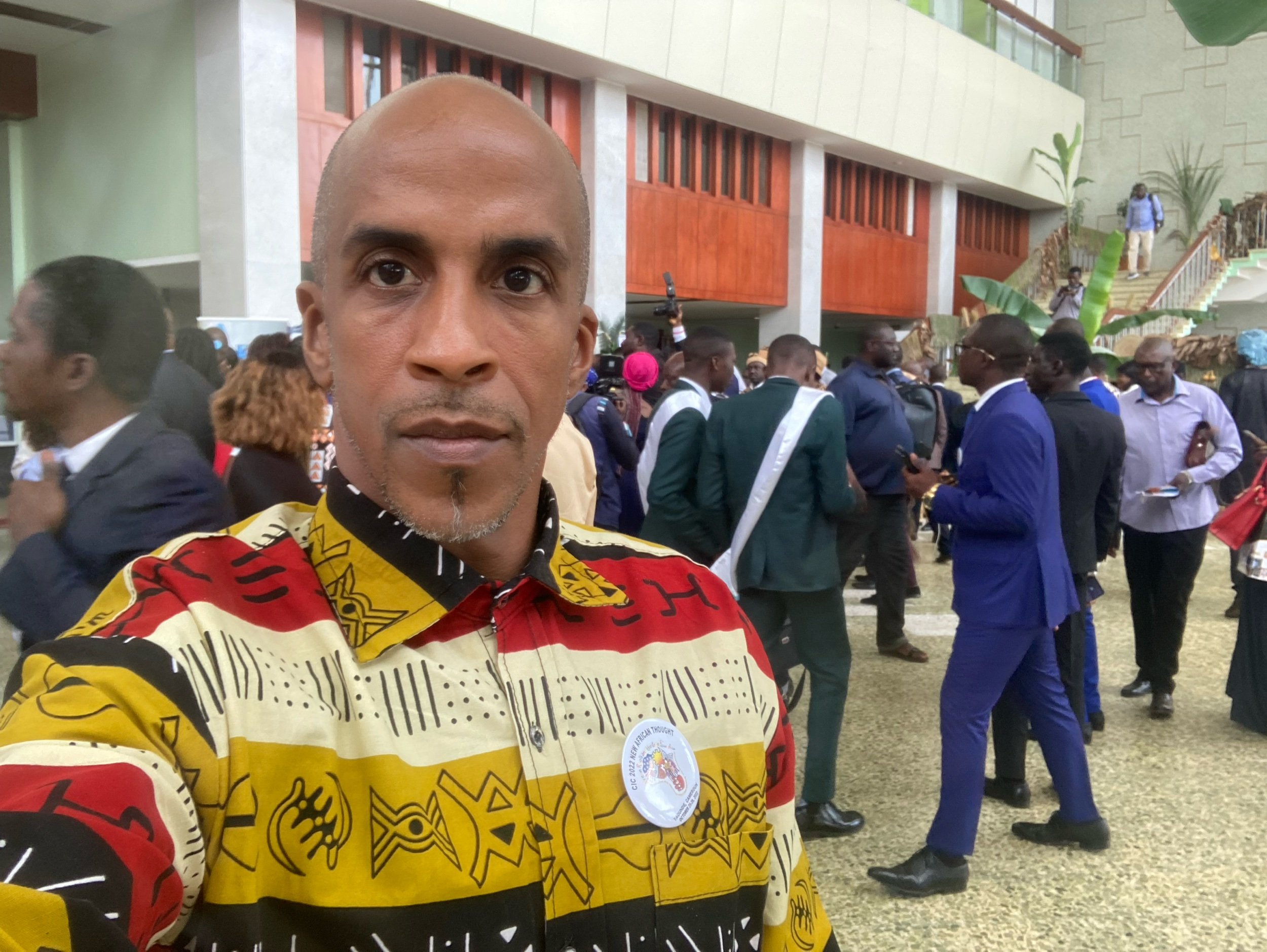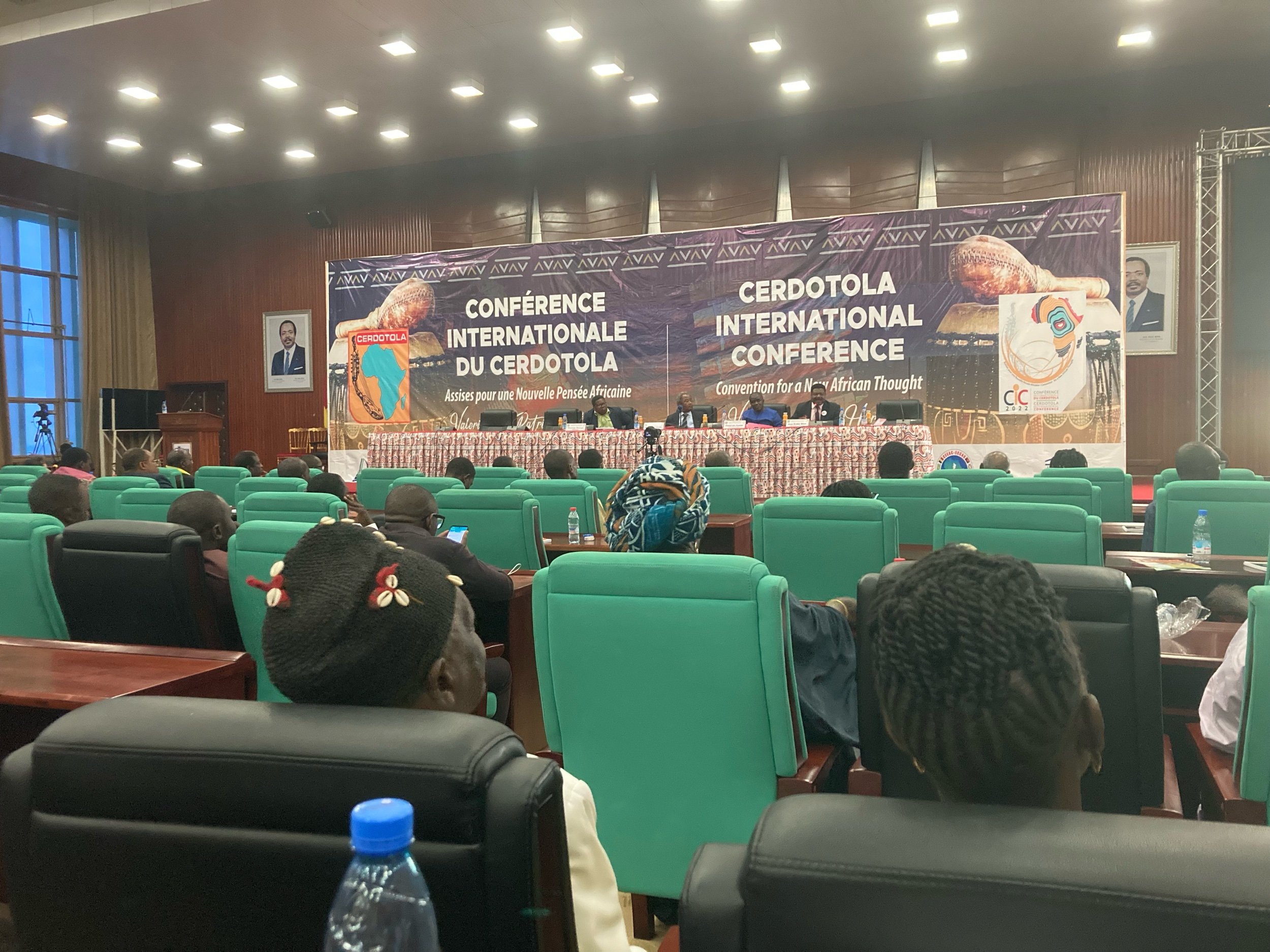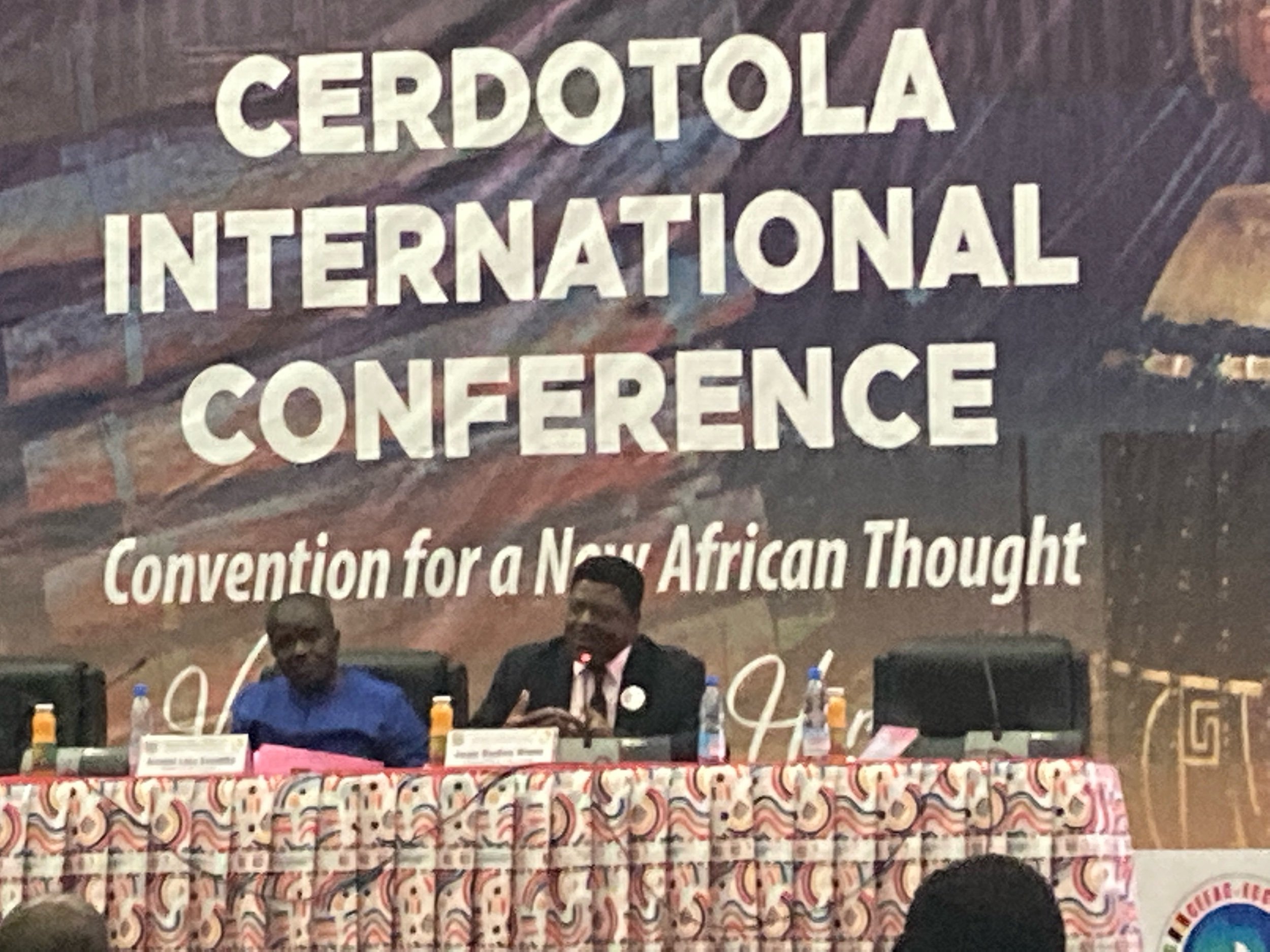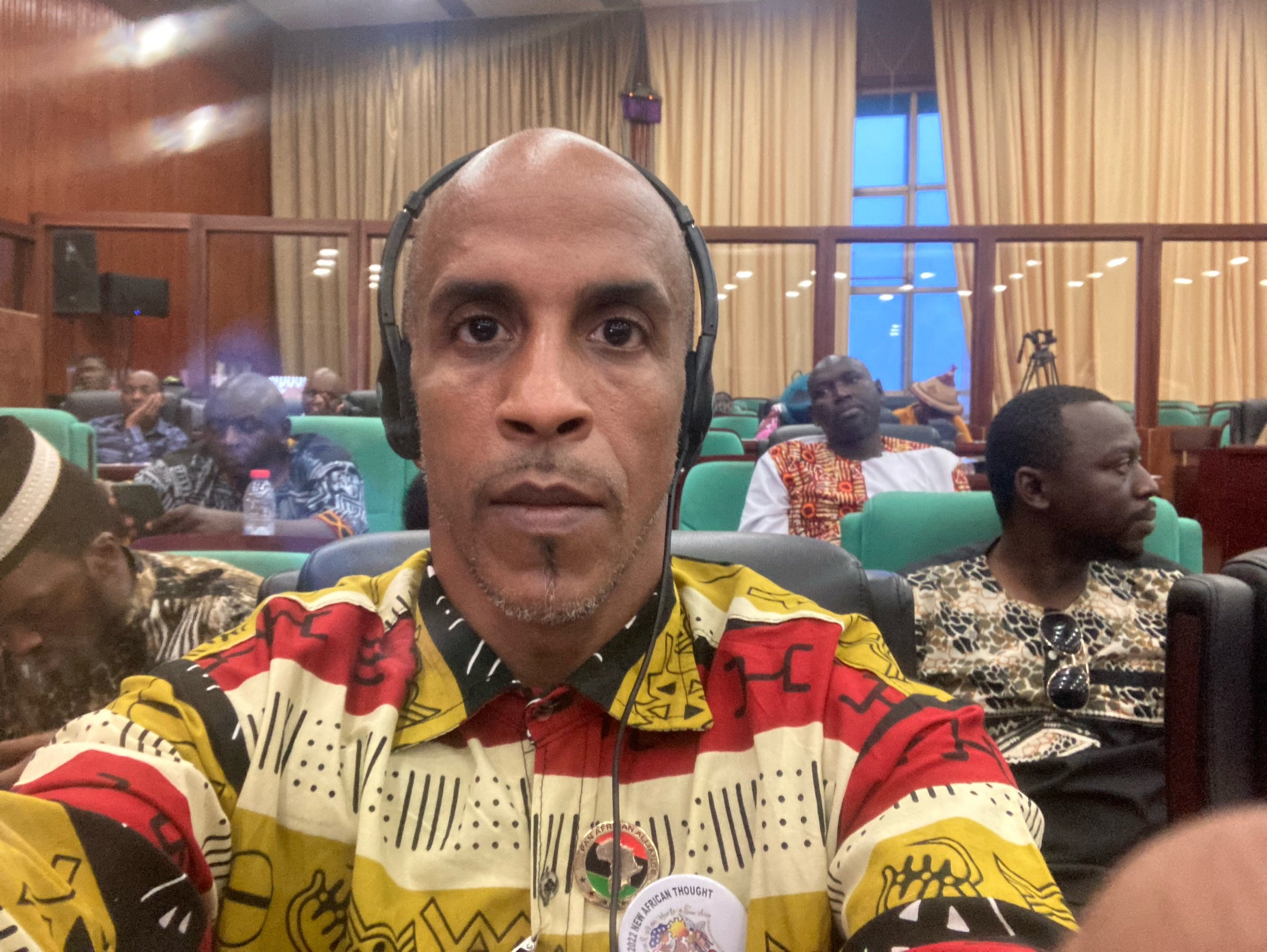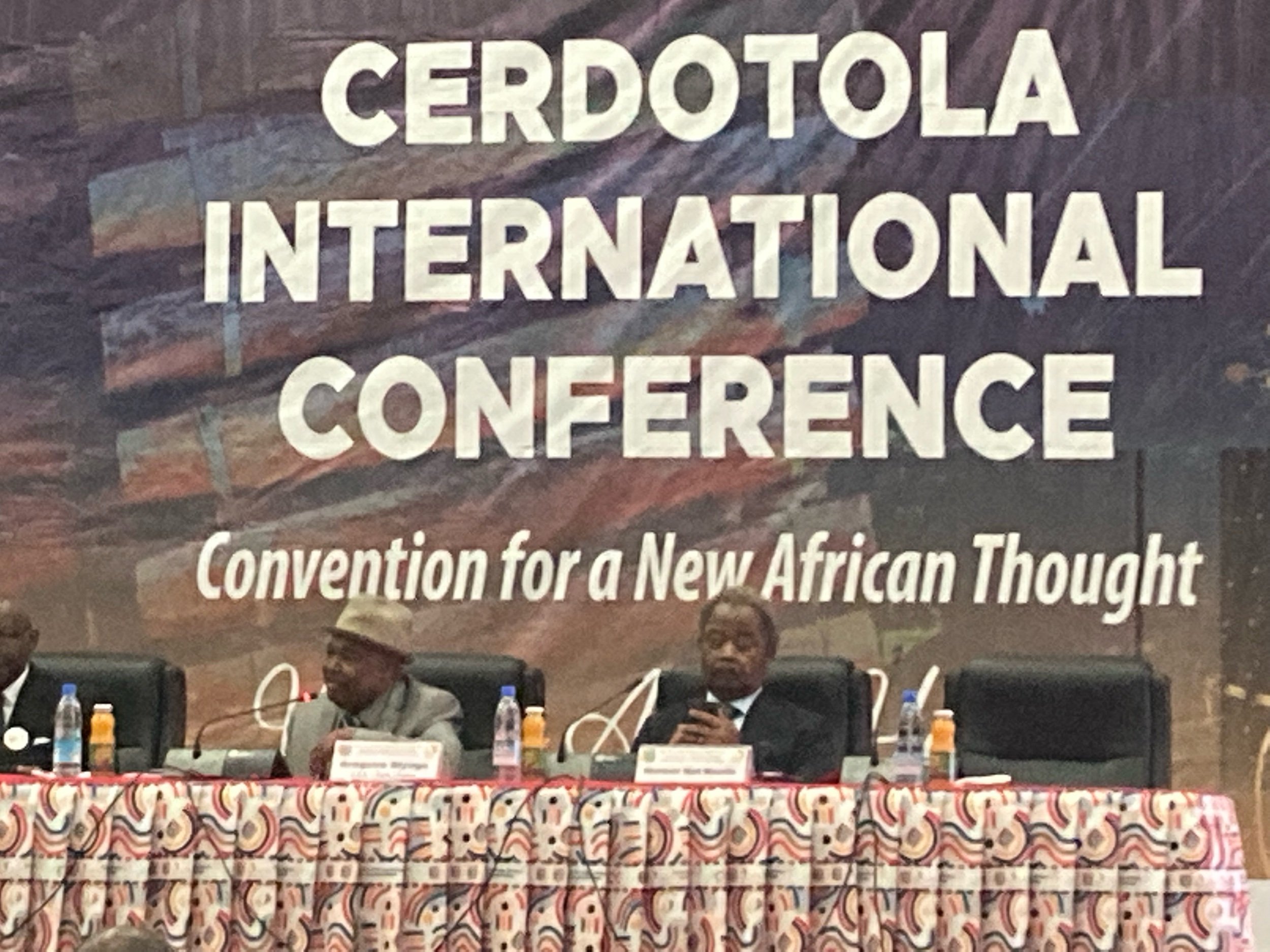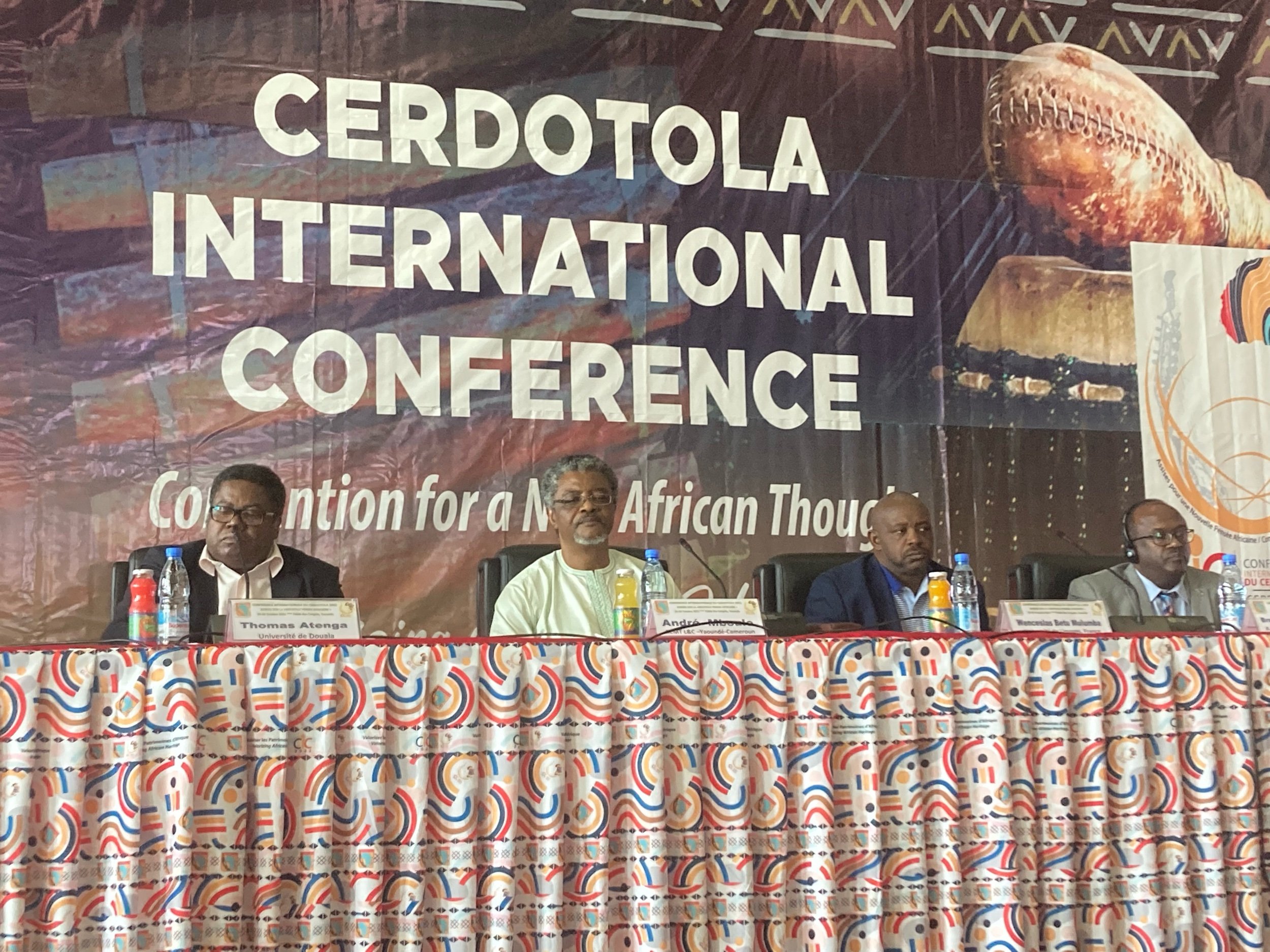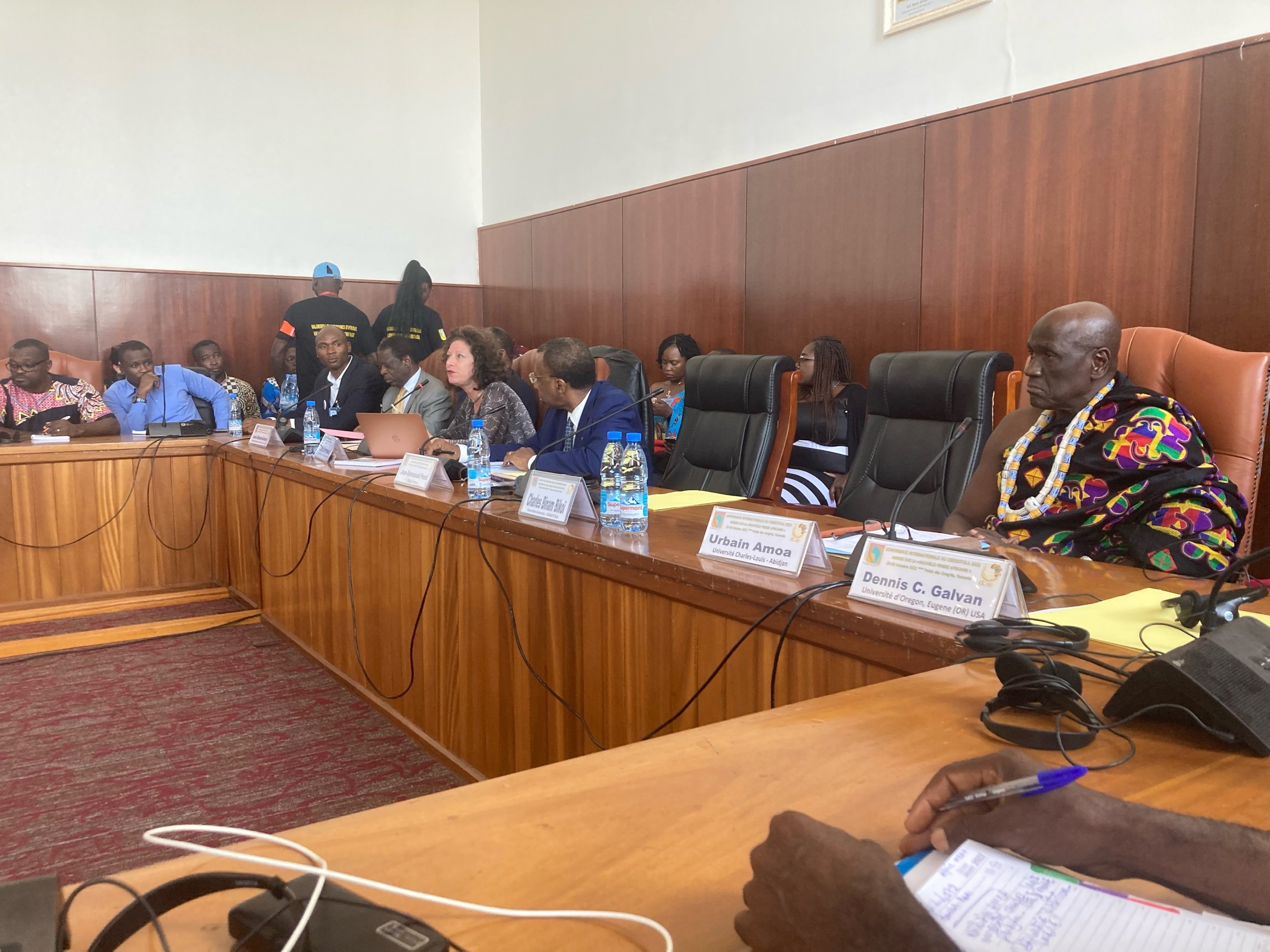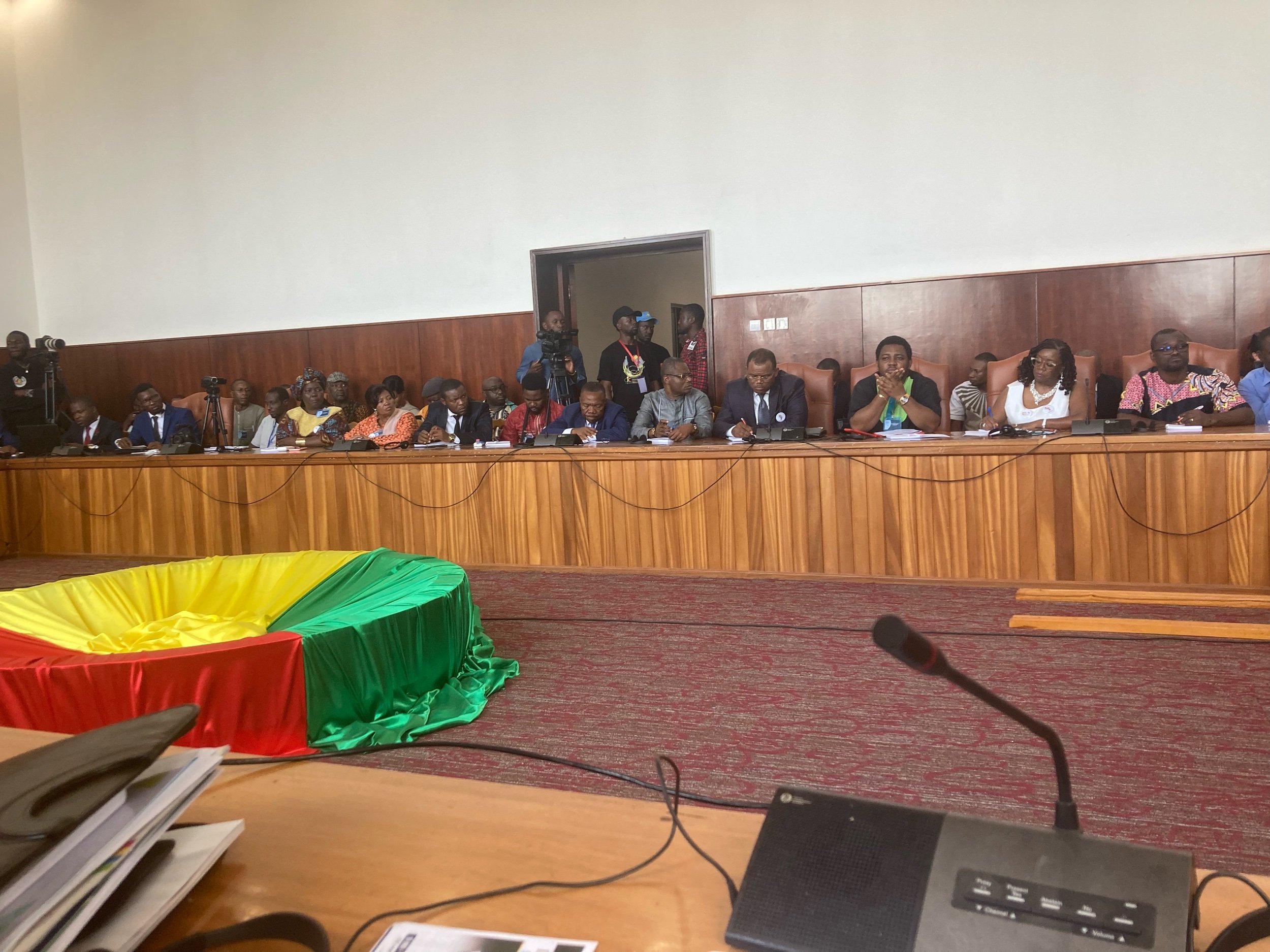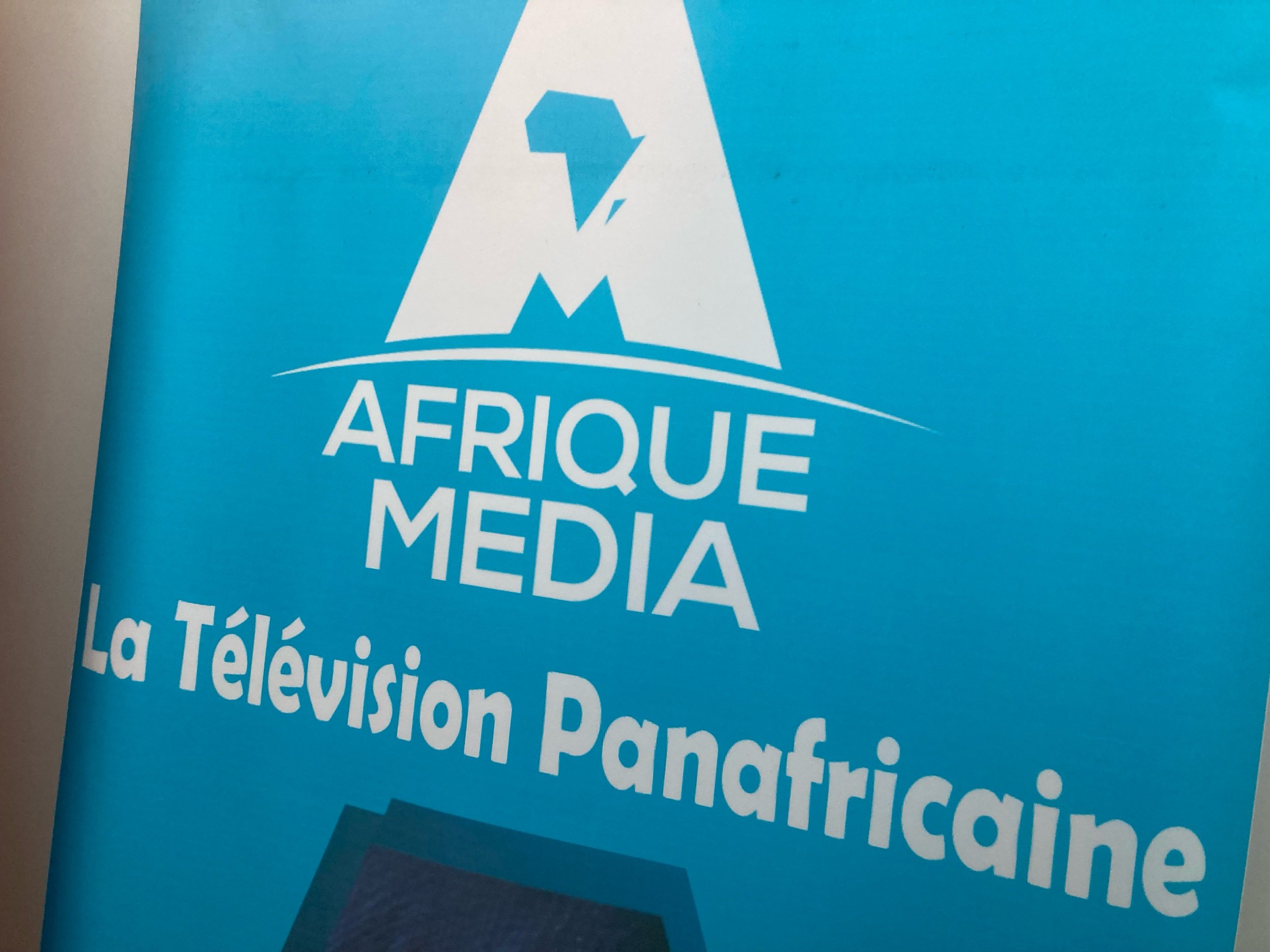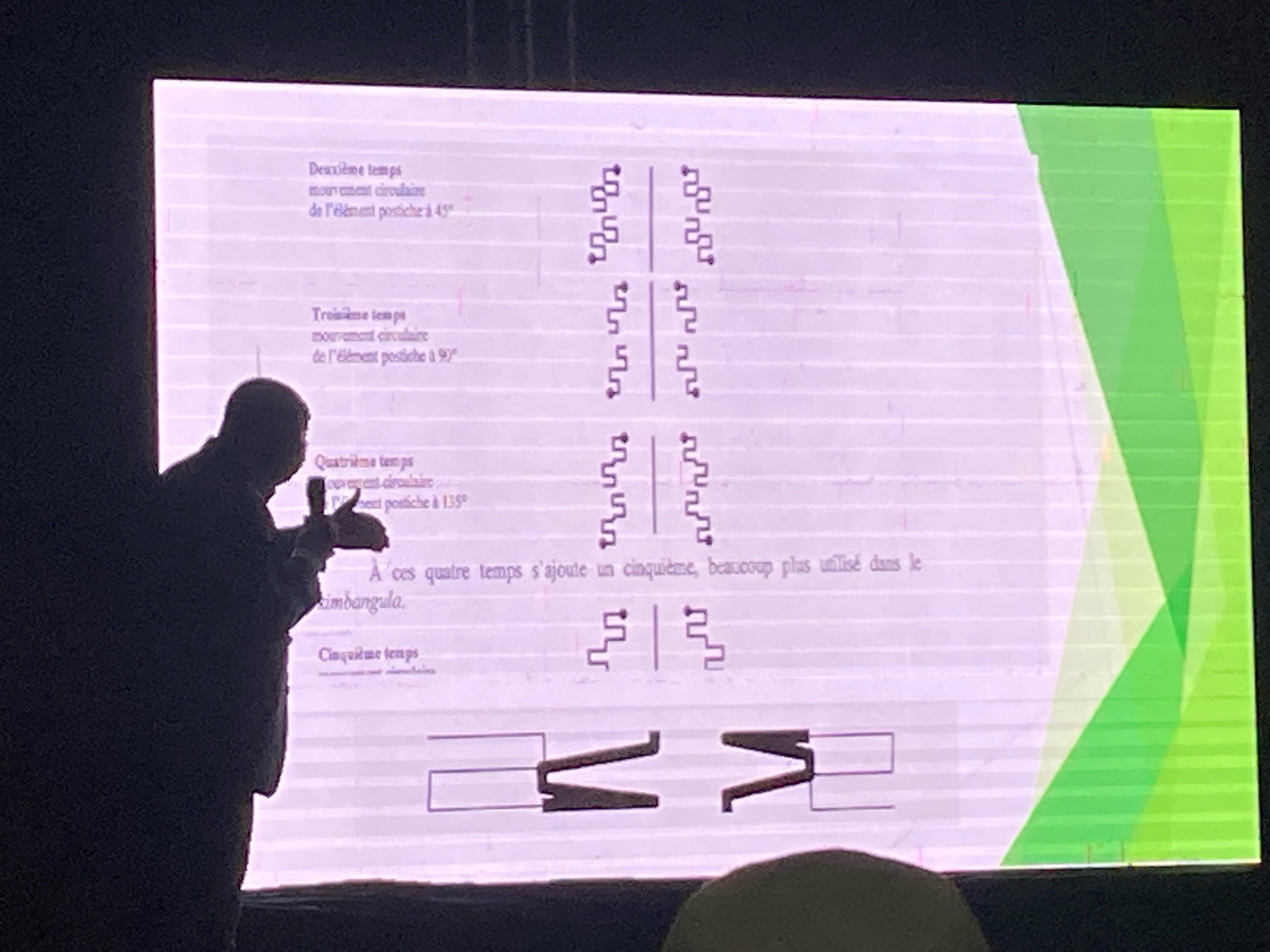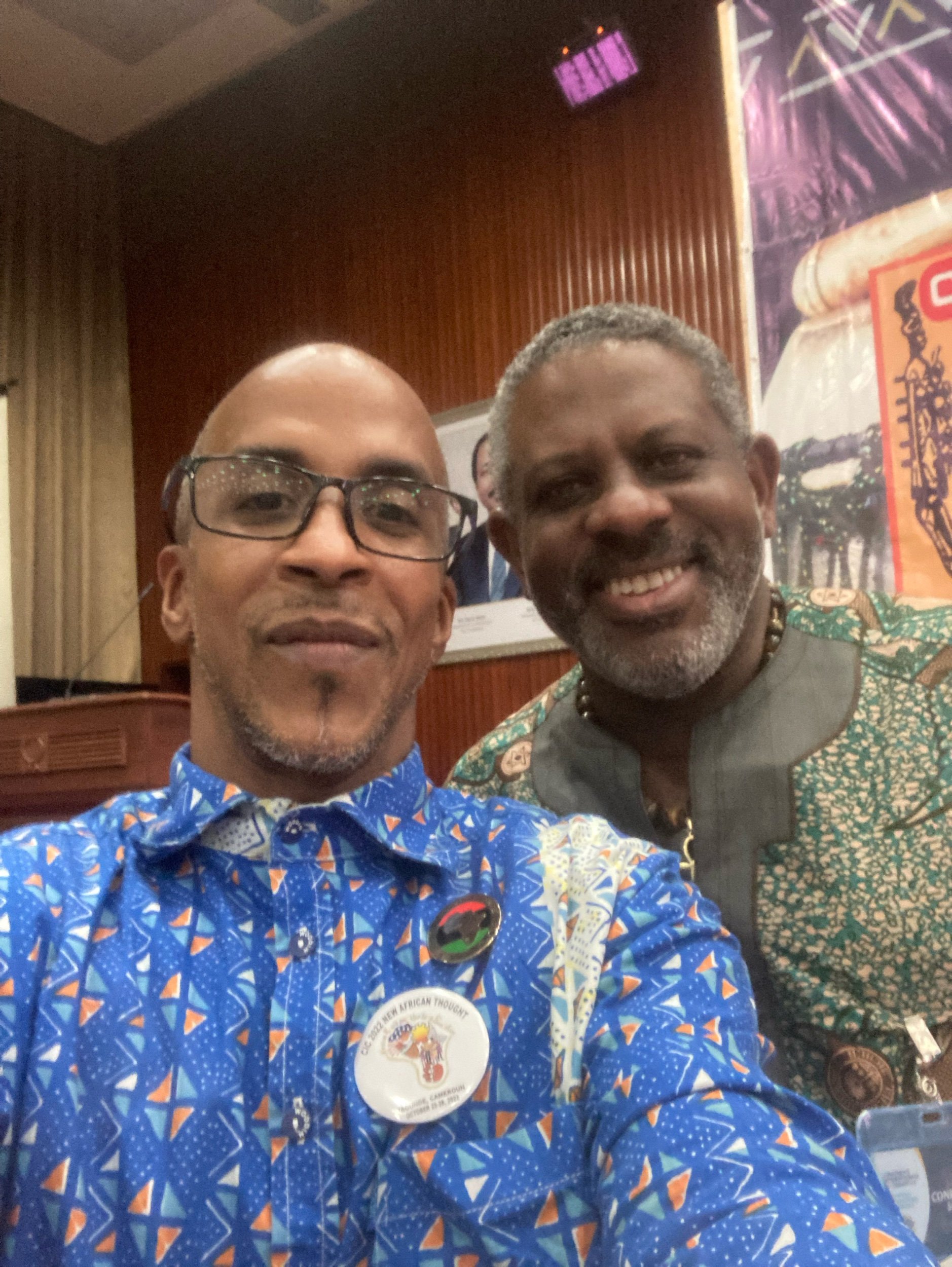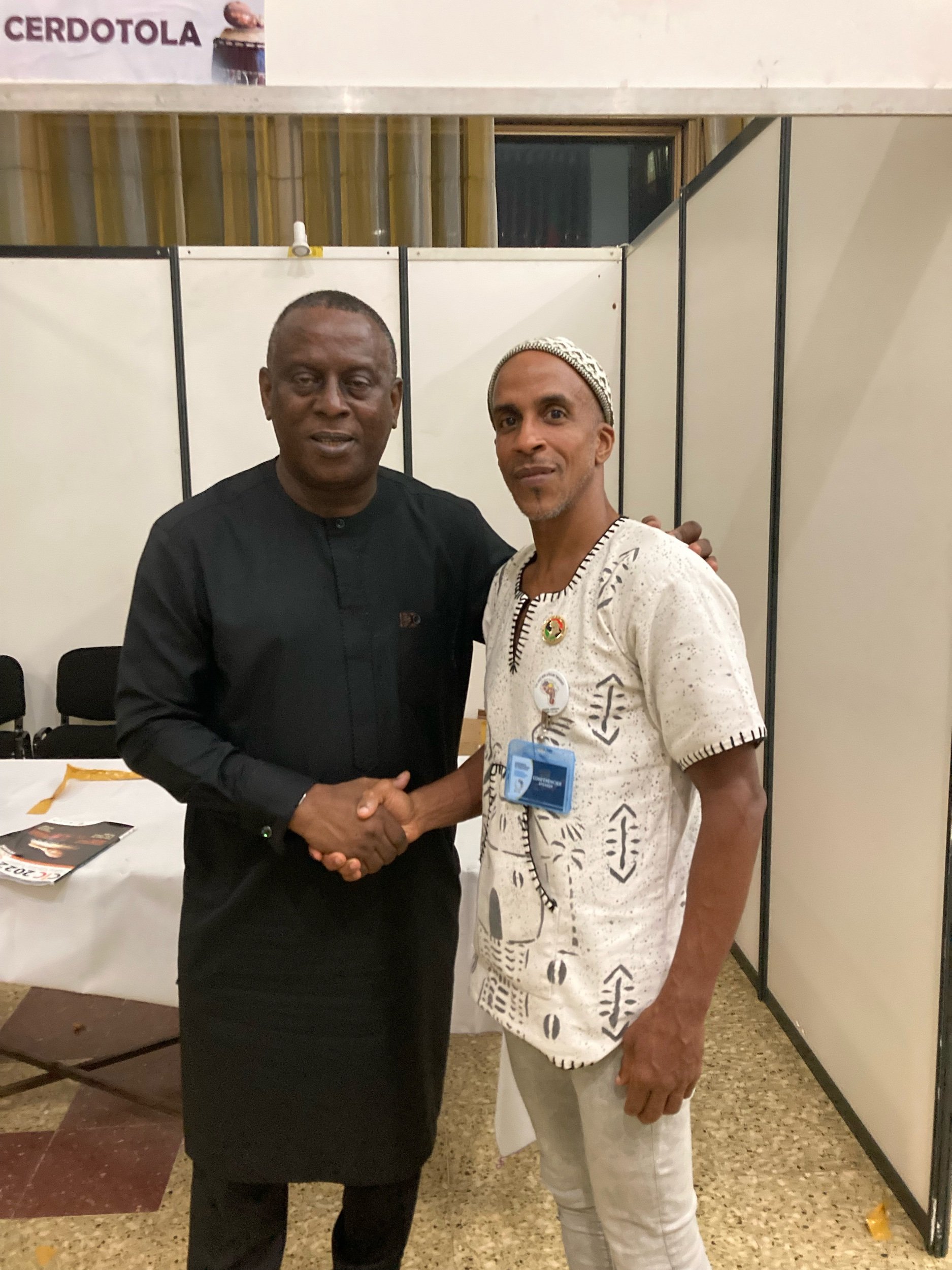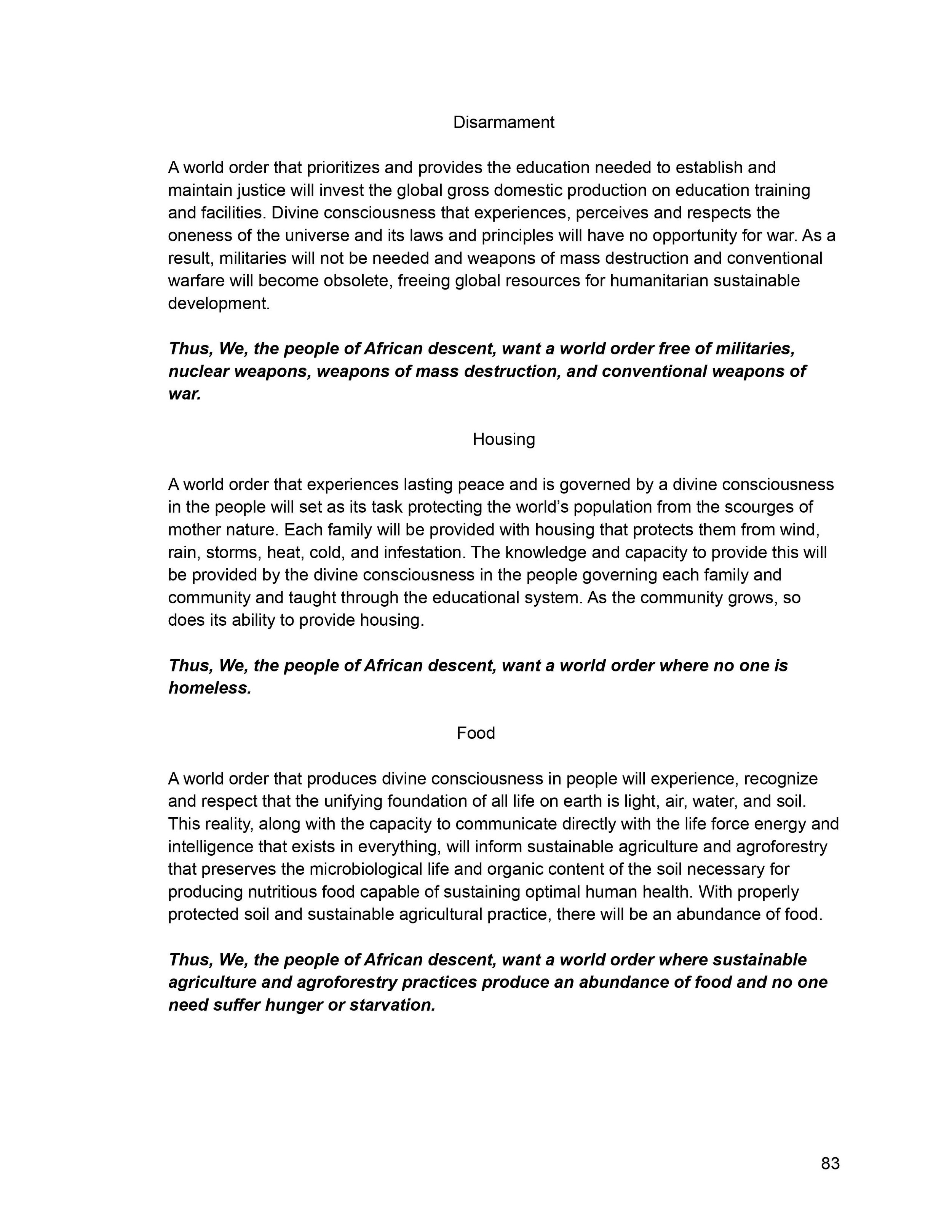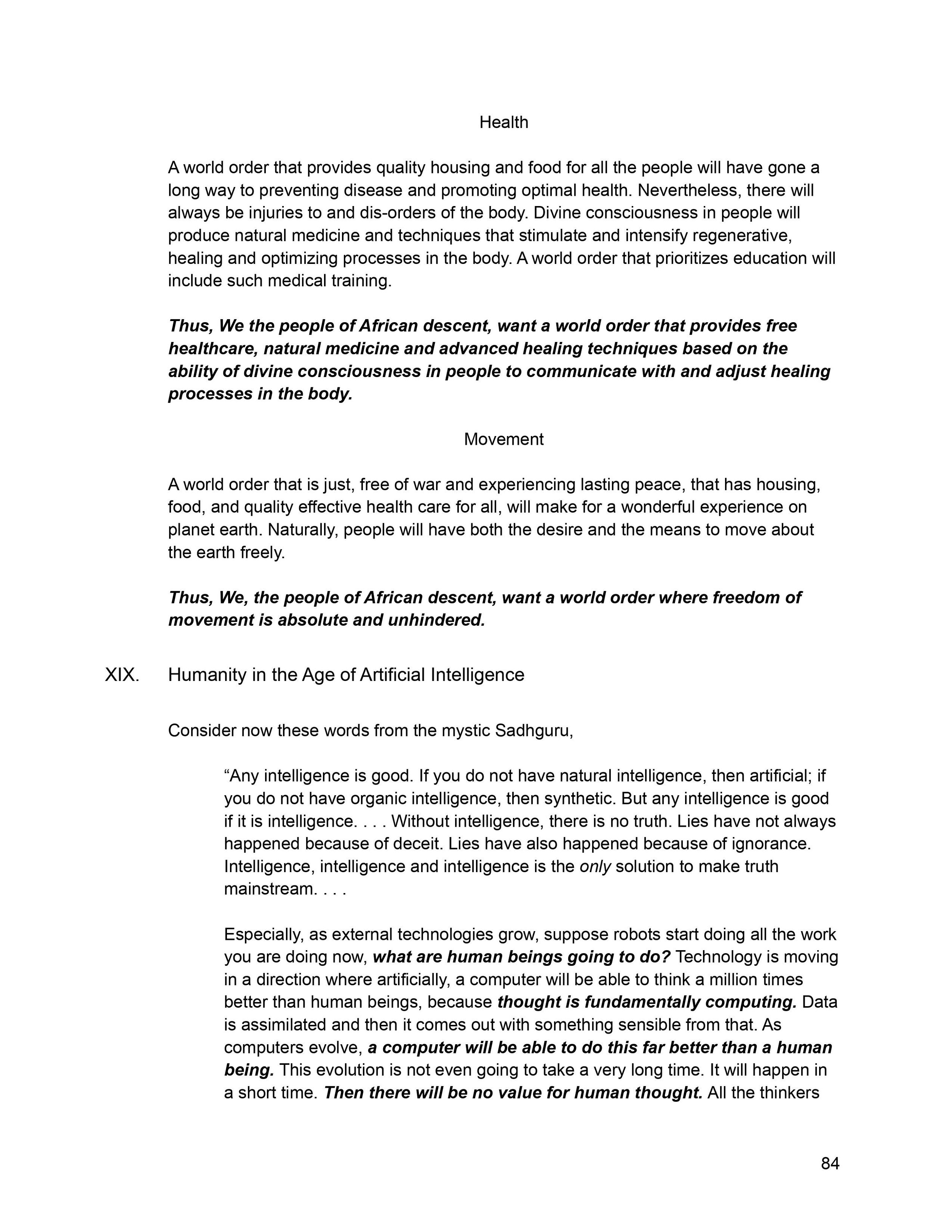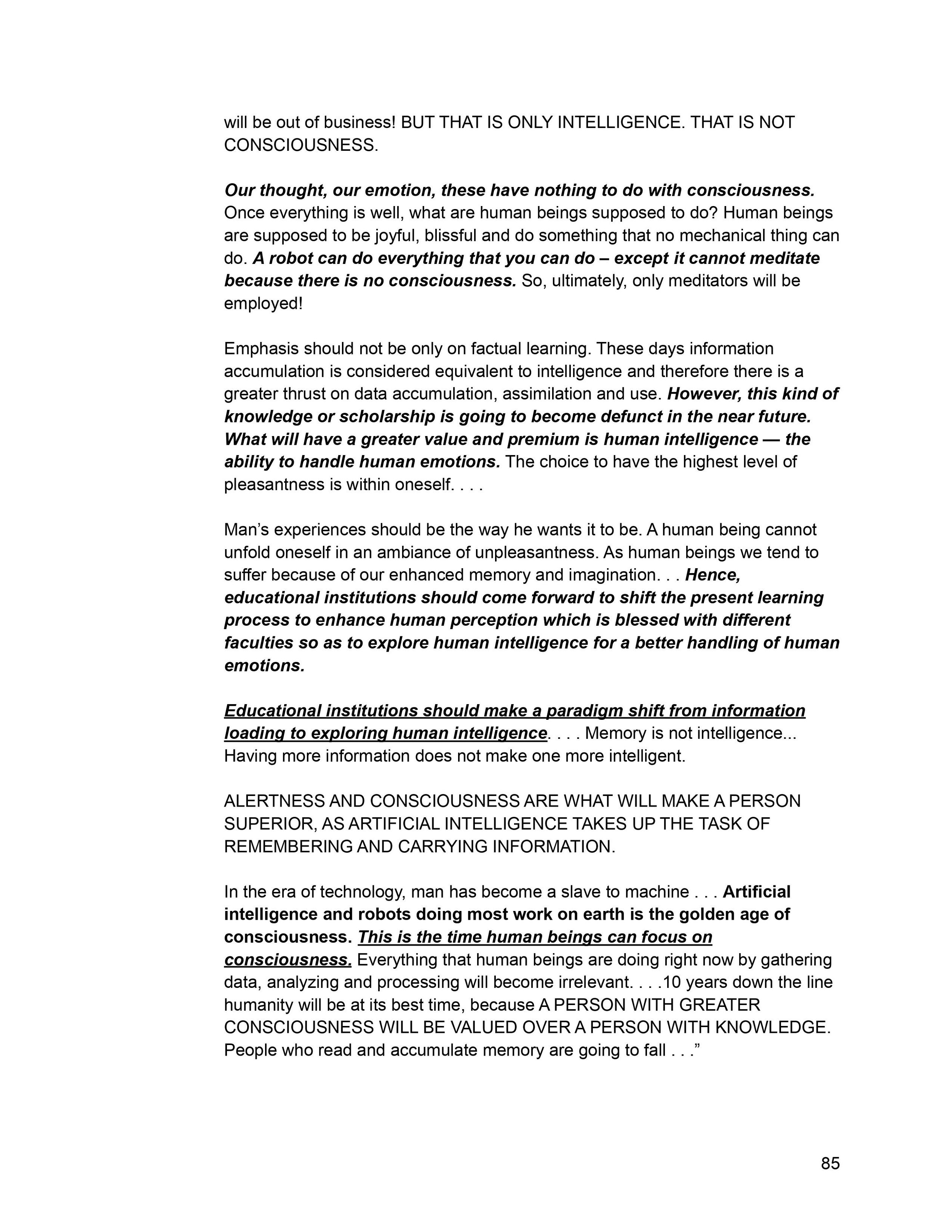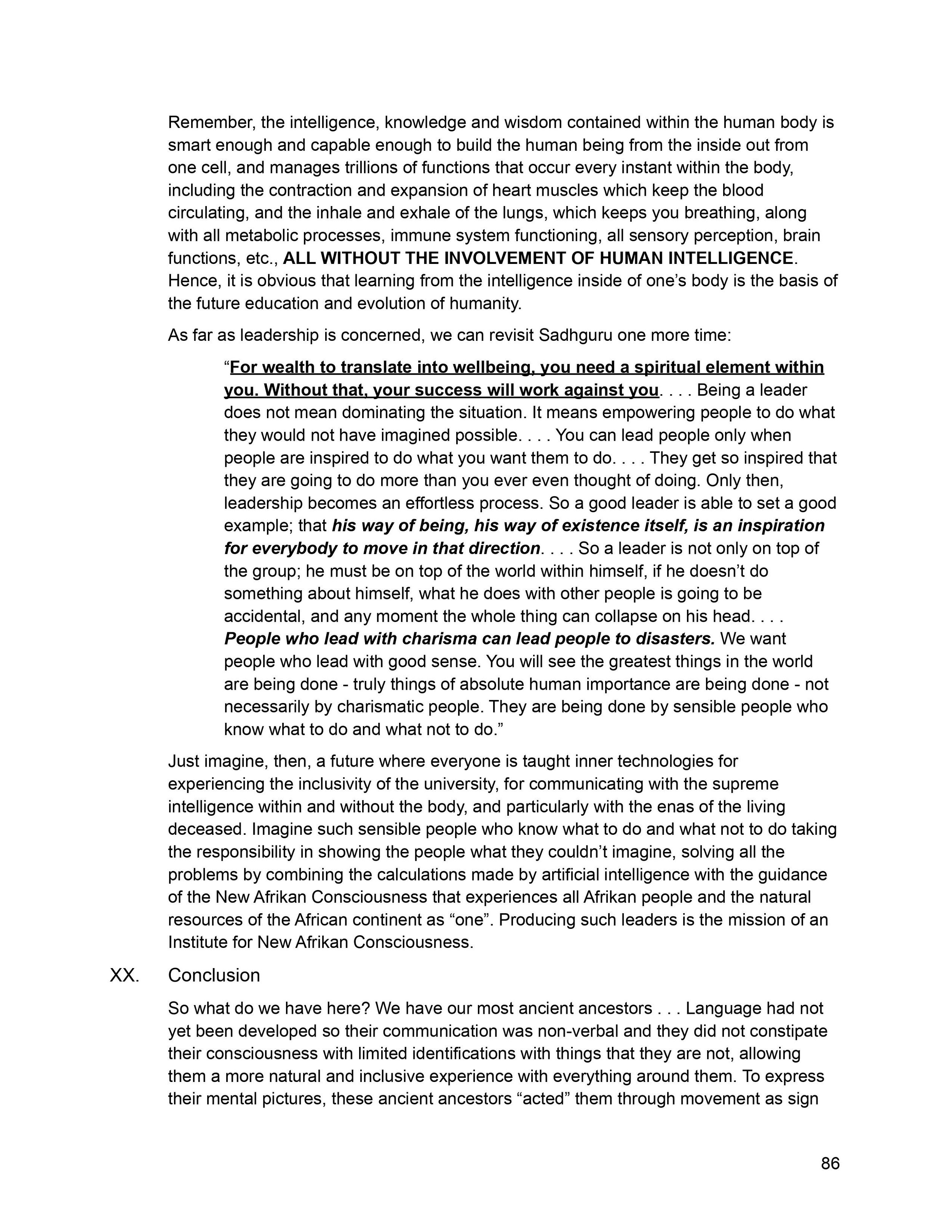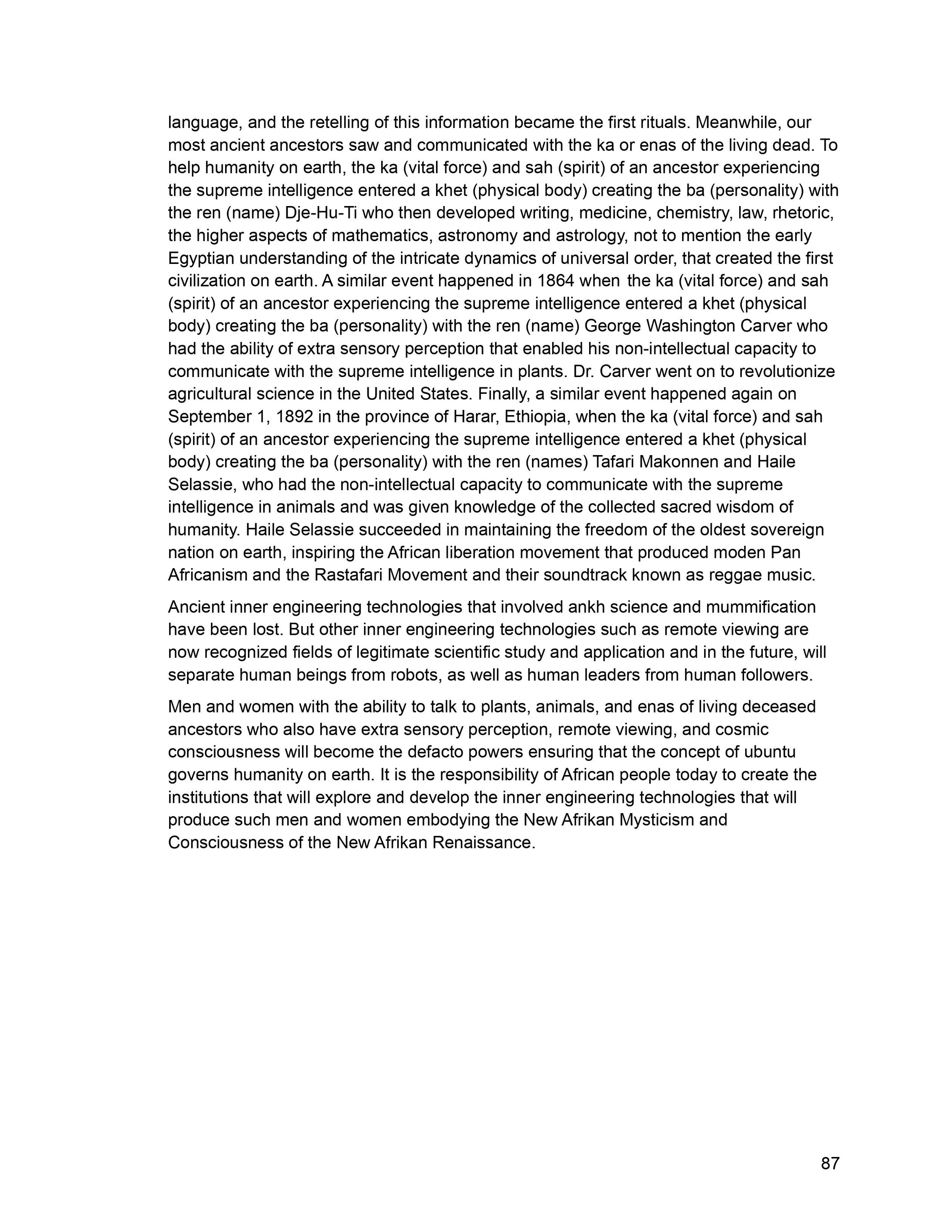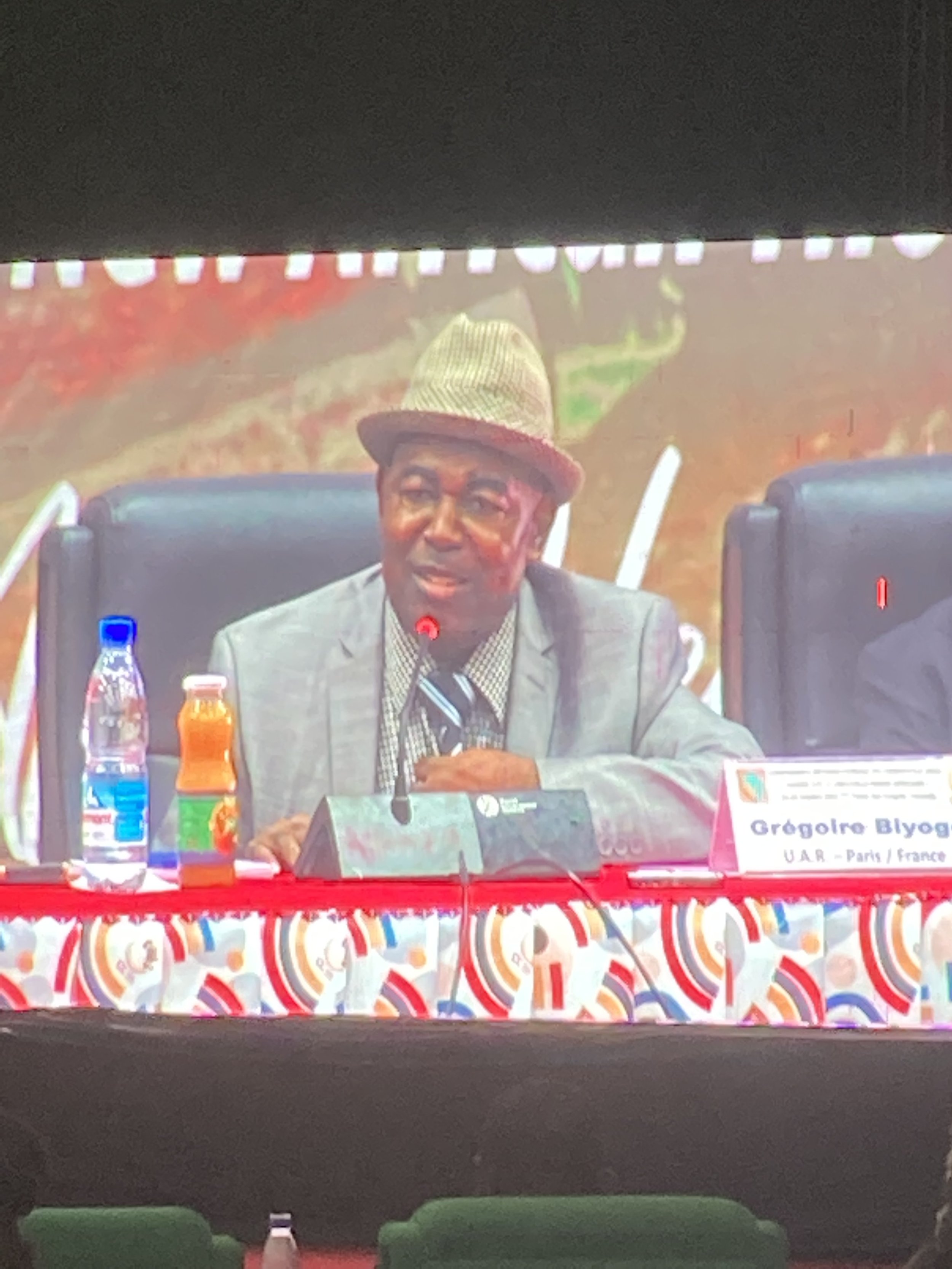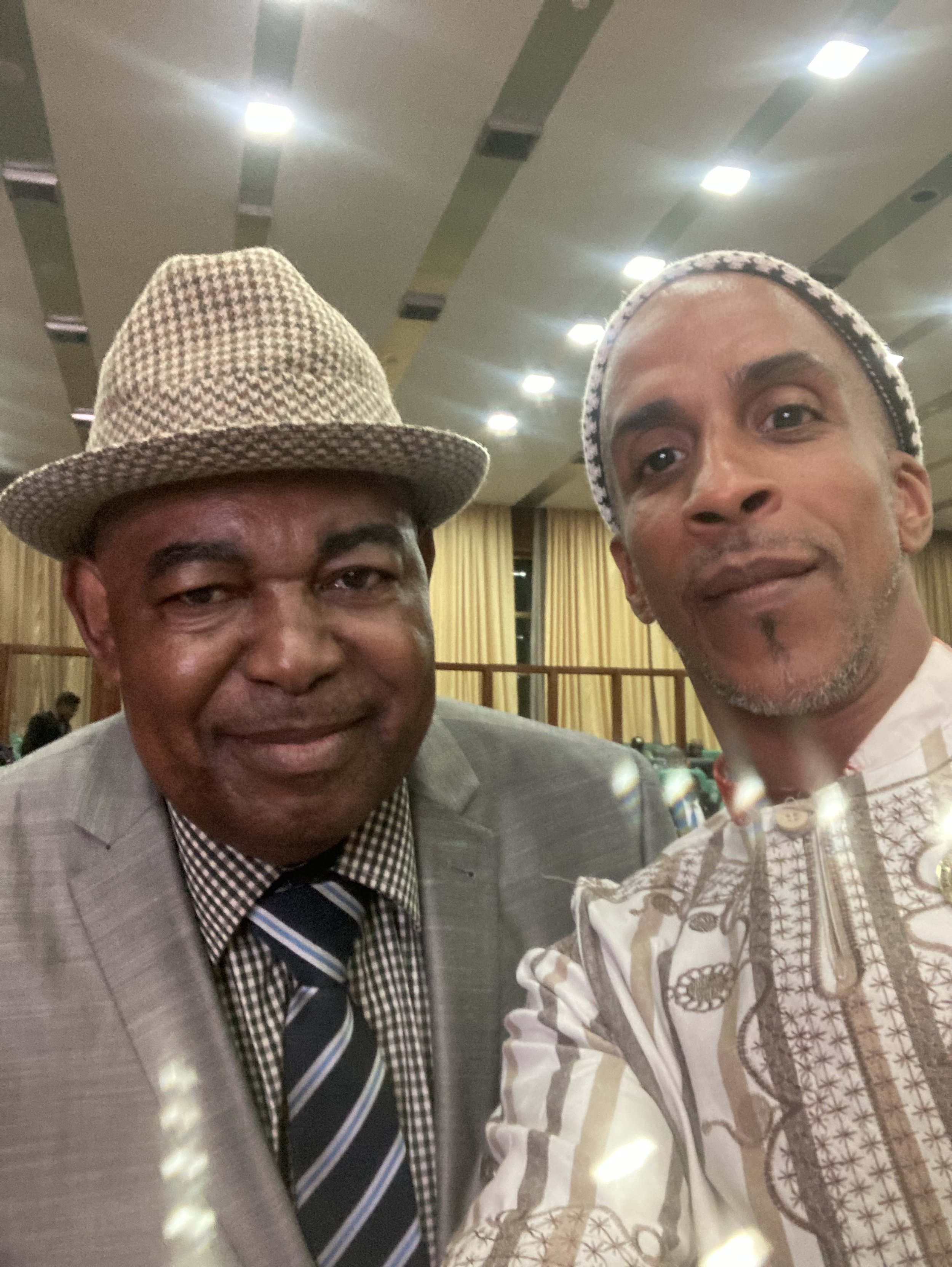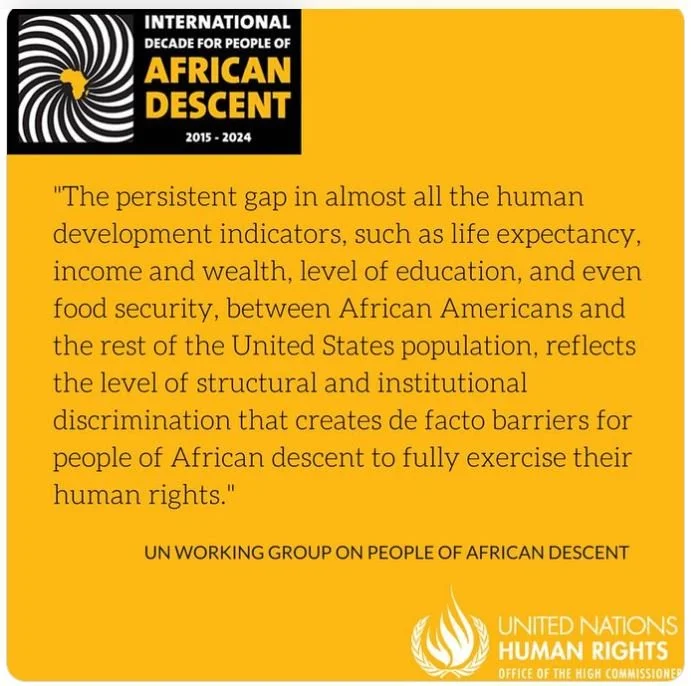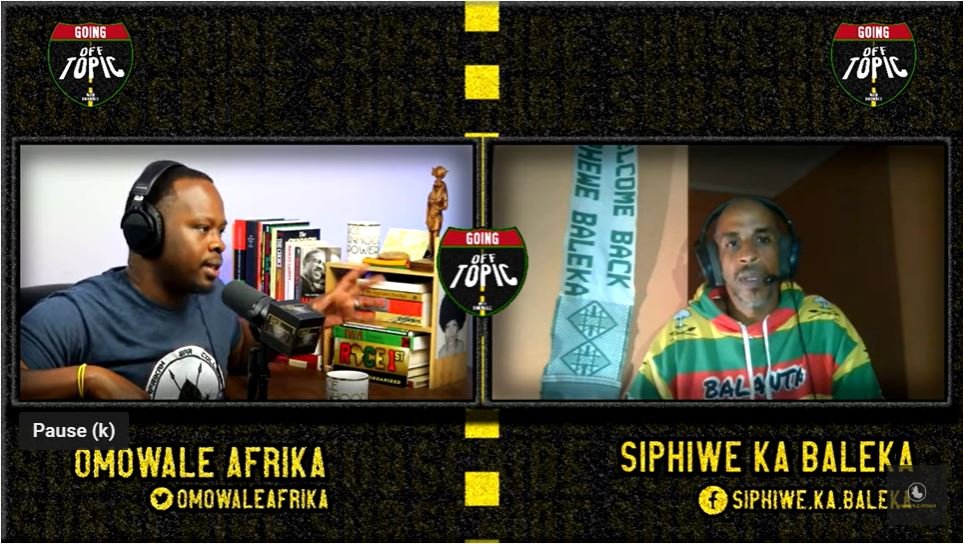Scenic point overlooking Yaounde, the capital of Cameroon.
SIGN THE PETITION FOR CITIZENSHIP FOR PEOPLE OF CAMEROONIAN ORIGIN
“We must make an issue, create an event and establish for ourselves a position. This is essentially necessary for our effective elevation as a people, in shaping our national development, directing our destiny and redeeming ourselves as a race.”
- Martin Delaney, The Condition, Elevation, Emigration and Destiny of the Colored People of the United States, 1852
“The time is ripe for Cameroon to set an example for all of Africa. Cameroon just hosted the New African Thought Conference, making it the intellectual capital of Africa. His Excellency PRESIDENT Paul Biya will be attending the Us-African Leaders Summit in mid-December. African Ancestry is hosting one of its “Family Reunion Tours “March 12-25, and the African Diaspora Pan African Congress, organized by Her Excellency Ambassador Arikana Chihombori Quao in Zimbabwe in April has as its main agenda item drafting a comprehensive diaspora citizenship policy for the African Union. By creating a special immigration status and expedited path to dual citizenship for people of Cameroonian origin who are descendants of people enslaved in the Americas, Cameroon can emerge, with Ghana, as the co-leader and champion of the African diaspora’s “Right to Return”.
- Siphiwe Baleka, 2022
On November 1, Professor Anita Diop, Founder of the African Roots and Heritage Foundation (ARHF), and Siphiwe Baleka, Founder of the Balanta B’urassa History and Genealogy Society in America (BBHAGSIA) and Coordinator of the Lineage Restoration Movement met with Gwedji Doris Wainwel, Director of Services in the Ministry of External Relations of the Republic of Cameroon to discuss the potential of Cameroon to become the focus of the Decade of Return Initiative in 2023 ahead of the African Diaspora Pan African Congress in Zimbabwe in April 2023. Ms. Wainwel explained that her office is in charge of the affairs of Cameroonians abroad and that she agreed that the time was ripe for Cameroon to launch a Decade of Return program. At Ms. Wainwel request, the following letter was sent to the Minister of External Affairs:



During the meeting, Mr. Baleka explained to Mrs. Wainwel that the issue of citizenship is one of the most important issues for what the African Union calls the ‘historic’ diaspora – those descendants of people captured as Dum Diversas prisoners and enslaved in the Americas. As noted in the Cameroonian Case Study previously submitted, United States v The Libelants and Claimants of the Schooner Amistad - 1841 makes clear that,
“it is accepted that the African . . . owe no allegiance to (no law of the Nations), their rights must be determined by the law which is of universal obligation - the law of nature. . . a former domicile is not abandoned by residence in another if this residence is not voluntarily chosen. Those who are in exile or in prison, because it is never assumed that they have given up all hope of returning, retain their former homes. That these victims of fraud and piracy - husbands torn from their wives and families - children from their parents and parents - had no intention of giving up the land or their nativity, nor had they lost all hope of recovering it , is sufficiently apparent from the facts of this case.”
Thus, according to natural law and international law, and more particularly the Geneva Convention, the descendants of the Tikar, Hausa, Fulani, Bamiléké, Masa, Mafa, Kotoko, Ewondo and other ethnic groups taken from families living in territories now belonging to Cameroon have the right to return and citizenship in their ancestral homeland. Moreover, according to Law No. 1968-LF-3 of June 11, 1968 on the Cameroonian nationality code, article 3:
“Section 3.
The provisions relating to nationality contained in duly ratified and published international treaties or agreements produce their effects in Cameroon even if they are contrary to the provisions of Cameroonian internal legislation.”
After the meeting, Paramount Chief and Professor of Internatiol Relations Dr. Elong expressed his opinion of Cameroon’s legal responsibility concerning this. His response was,
“the law on nationality that you mentioned produces legal effects for specific cases, in particular jus soli and marriage ties. Each country has its rules for granting nationality. Regarding the international conventions you mentioned, they are applicable under certain conditions. Nationality is a sensitive issue of state sovereignty that can be interpreted in various ways. In the present case, the management of deported populations does not specifically come under international law but under domestic law. The solution we must adopt is collective and political. Collective because we have to feel a movement of massive adhesion of Afro descendants in their desire to return to call on the decision-makers or in the Cameroonian parliament to open the debates and to take up the problem. It is therefore a question of forming a lobby from the United States. Politically, the government of Cameroon is quite open on the issue. Many initiatives have been taken, you just have to openly pose the problem to the competent authorities.”
Further. Dr. Elong suggested that the following letter be sent to H.E. Paul Biya President of the Republic of Cameroon, requesting an audience during his upcomming visit to the United States for the US-Africa Leaders Summit in mid-December:


The stage is now set for Cameroon to become the focul point of the Blaxit - black exodus - movement and take it’s place among the nations welcoming home the African Diaspora. The question remains:
WILL CAMEROON AND THE PEOPLE OF CAMEROONIAN ORIGINS SEIZE THE MOMENT AND LAUNCH THE DECADE OF RETURN TO CAMEROON INITIATIVE?
What’s at stake?
The Ghana Tourism Authority predicted its 2019 Year of Return initiative would attract 500,000 extra visitors. Official data from January to September 2019 showed an additional 237,000 visitors - a rise of 45% compared with the same period the previous year. Minister of Tourism Barbara Oteng Gyasi said the Year of Return had injected about $1.9bn (£1.5bn) into the economy.
A year later, Sierra Leone followed suite with its own year of return program that saw many dna-tested Mende and Themne descendants travel to the country and receive citizenship. Following them, Guinea Bissau launced it’s “Decade of Return Initiative”. In the article, WILL GUINEA BISSAU'S "DECADE OF RETURN INITIATIVE" BE THE NEXT BIG BOON FOR THIS SMALL AFRICAN NATION? Siphiwe Baleka asked the question, Will it have the same economic and social impact?
The answer for Guinea Bissau, so far, has been, no. In 2021, only three groups and 28 people returned for the Decade of Return events in this small west African nation. While the experience was profound for both the returnees and the people that received them, and while several micro-projects in the areas of youth, sport, education, medicine and agriculture have been completed, it will, indeed, take a decade for the number of people returning to Guinea Bissau to have the kind of impact that Ghana witnessed.
“We don’t need half a million people to return to Guinea Bissau,” said Siphiwe Baleka, the initiative’s creator. “Guinea Bissau is a small country of just 2 million people. If 10,000 people travel to Guinea Bissau over the next decade, that will definitely impact the country and the benefits will be felt by the people”.
While the initiative started off smoothly, problems emerged because of disunity of the initiative’s coordinators and clients as well as lack of vision, competency and commitment by the authorities in the government of the Republic of Guinea Bissau. For Baleka, this isn’t surprising.
“The history of Afro Descendants rematriating to their ancestral motherland shows that, individually and collectively, it isn’t easy,” Baleka said. “Early attemps in Liberia and Sierra Leone in the 19th century, as well as more recent attemps in Ethiopia, Ghana, and, again, Sierra Leone in the 20th and 21st centuries witnessed the various problems of taking a scattered people who have suffered enslavement and ethnocide and implanting them into the territories, peoples and cultures that they were severed from for six, seven, eight or more generations.”
Baleka notes that the early Pan-African fathers like Delaney and Edward Wilmot Blyden, while envisioning a strong and United Africa, were infected with a western, Christian “civilizing” mission. The Rastafari community in Ethiopia, especially after the The Derg took power in the Ethiopian Revolution following Emperor Haile Selassie I in 1974, found itself caught in Shashemane living amongst the Oromo people who considered themselves oppressed by the ruling Amhara supporters of the Monarchy. Meanwhile, the Rastafari people in Ethiopia and abroad were calling for the restoration of the Monarchy which made them a political threat to the government. Finally, the repatriates were coming from different islands of the Caribbean and the United States representing different “mansions” or factions within the movement, all of which led to a mass of problems of which Baleka helped to sort out in 2003 with officials from the Ministry of Immigration. According to Baleka,
“In 1954, Emperor Haile Selassie came to the United States and offered free transportation, a house rent-free, a competitive salary, paid three-months vacation with return flights to and from the United States, and in some instances, a car, to African Americans who would come and help rebuild Ethiopia following the Italian invasion and World War II. The Emperor amended the Ethiopian Constitution and provided for the immediate citizenship for the black people of the west. This is the Repatriation model that the African Union should be using.”
In 2020, Baleka’s article FIHANKRA CONTROVERSY: A CAUTIONARY TALE ABOUT REPATRIATION TO AFRICA AND DEVELOPMENT MODELS BASED ON BLACK CAPITALISM noted what can happen when rematriation is done in an uncoordinated, haphazard fashion in which real estate speculation and opportunism can have devastating consequences. The problem, says Baleka happens when ECONOMIC DEVELOPMENT is placed before the HUMAN DEVELOPMENT. To avoid this, the Lineage Restoration Movement has a development model based on restoring the ancestral bonds of the families that were separated through the criminal European trans Atlantic trafficking and enslavement of people from the African Continent. The Lineage Restoration Model is based on
1) identifying your paternal and maternal lineage
2) building a relationship with the members of your ancestral lineage across the Atlantic in their homeland - re-learning your ancestral language and culture that was taken during slavery and organizing welcome home rituals in those villages.
3) helping the communities to determine their OWN development needs first and assisting in those projects
4) build the village first, then repatriate as family that contributed its share to building the village.
This is the development model that Baleka hopes will be implemented through the various Decade of Return Initiaties in each African Union member state.
IS CAMEROON READY?
The history of DNA-tested descendants visiting Cameroon goes back to 2010. According to the ARK Jammers website,
“the Ancestry Reconnection Program (ARP), conceived in 2010 by the Baltimore-based NGO ARK Jammers Connection, to reunite two halves of a once forcibly separated and broken people: Africans and DNA-certified Afro-descendants! ARP builds on African Ancestry DNA test results that identify both the country and ethnicity of the ancestors; and establishes a real connection to the country and ethnic community within. Ultimately, it helps to fill historical and cultural voids and reestablish a sense of identity and belonging. . . .
The ARP was launched in three phases, the first involving a DNA Reveal ceremony, the second a certificate delivery event, and the third, a trip to their ancestral home for descendants of former slaves:
1. The African Ancestry - We are Africa Tour - Held at the Embassy of Nigeria in Washington DC. in February 2010 during which DNA results for some prominent African Americans were revealed.
2. Cameroon’s 50th Independence Anniversary Celebration - The ARK Jammers helped organize and performed for this celebration; we organized a special event during the ceremonies for 25 African Americans whose DNA has traced their origins to Cameroon. All 25 of our guests received a recognition certificate from the hands of the Cameroon Ambassador during a highly emotional “Welcome to Cameroon” ceremony.
3. Ancestry Reconnection Program/Cameroon 2010 - During this special edition of our ARP, we offered 53 African Americans who had traced their origins to Cameroon through DNA testing, the historic opportunity to visit the land of their ancestors. We offered 5 acres of land to this pioneer group of Cameroonian Americans.”
In May of 2011, ARK Jammers hosted a Conference on DNA and the importance of knowing one’s origin during the French national commemoration of the abolition of slavery in Paris. In December of that year, a Conference on Ancestry Reconnection was held in Yaoundé, Cameroon which culminated with 87 African Americans of Cameroon descent visitng Cameroon for 9 days in December and January 2012. Dr. Lisa Aubrey, Associate Professor of African & African American Studies as Arizona State University, attended those first two reconnection events.
Two years later, an additional 25 African Americans with Cameroon descent received recognition certificates from the Cameroon Ambassador during a “Welcome to Cameroon”ceremony in Washington D.C. May 20, 2014. In 2016 the YES AFRICA FOUNDATION in Douala, Cameroon, Central Africa initiated a trip to Bimbia, Camerooun with young people. For this, they requested the presence of Dr Lisa Aubrey as researcher and lecturer so that she can speak to the young people about her findings the transatlantique slavery.
Since then, the African Roots and Heritage Foundation (ARHF), founded by Professor Anita Diop out of Detroit, MI, and the African Union 6th Region Representative to the African Union - ACALAN - Academy of African Languages, has established partnerships with the University of Yaounde 1 - Department of African Literature & Ciivilizations as well as the Center for Research and Documentation on Oral Traditions and Development of African Languages (CERDOTOLA) under the leadership of Professor Charles Binam Bikoi, Executive Secretary. Dr. Diop, a descendant of the Bassa people of Cameroon, has traveled throughout Cameroon preaching about “Reparing the Breach of Our Collective African Spirit and Soul”.
Okema Return International then hosted the THE CONGRESS OF THE RETURN OF THE AFRODESCENDANTS: YAOUNDE 27-30 November 2021, under the High Patronage of the Cameroon Ministry of External Relations.
Finally, ARHF and CERDOTOLA hosted the phenomenally successful New Afrikan Thought Conference, October 25-28, 2022. Thus, thanks to ARK Jammers, Professor Lisa Aubrey, Professor Anita Diop and the African Roots and Heritage Foundation, and Okema Return International, and others, a solid foundation has been laid to launch the Decade of Return to Cameroon Initiative in 2023.
THE WAY FORWARD: RIGHT TO RETURN AND CITIZENSHIP FOR PEOPLE OF CAMEROONIAN ORIGIN
What remains is two-fold. First, the people of Cameroonian origin must organize and centralize themselves under a single umbrella organization so that they speak with one voice to the government of the Republic of Cameroon. This can be done through the Lineage Restoration Council (LRC) model that has already been utilized by the Balanta and Djola people of Guinea Bissau, and is being adopted by some of the ethnic groups in Gabon and Equatorial Buinea. To assist the African Ancestry family and particularly the people of Cameroonian origin in establishing the Lineage Restoration Council, there will be a Lineage Restoration Council Introductory Workshop immediately following the conclusion of the launch of the Permanent Forum of People of African Descent (PFPAD) at the United Nations on Friday, December 9th, 2022 from 6:00 PM to 7:00 PM CST which Siphiwe Baleka is attending as a delegate of the International Civil Society Working Group (ICSWG) of PFPAD and the guest of Yuri Boychenko, Chief of the Anti-Racial Discrimination Section, Office of the High Commissioner for Human Rights.
You can register for the free workshop here.
The free introductory workshop will review the process:
1) Setting up the 501c3 – Filing your articles of incorporation
2) Using the History & Genealogy By-Laws template
3) Getting Your DUNS and SAM #’s so that you can be eligible for any kind of grant funding and development aid from the United States Government
4) Setting up your website using www.balanta.org and www.djola.org as a template
5) Why all of this is significant and necessary and how it can be used, including transferring resources as foreign aid to your home countries and operating in the African Union 6th Region



Most importantly, however, is signing the
Petition to the Republic of Cameroon to Launch a Decade of Return Initiative and Provide Citizenship to the Descendants of the People of Cameroonian Origin Who were taken from their Ancestral Homeland and Enslaved in the Americas
The goal is to get 1,000 signatures to present to His Excellency President Paul Biya during his visit to the United States. Recognition certificates from the Cameroon Ambassador was just a first step. The moral, spiritual, historical and most importantly, LEGAL obligations that Cameroon has to the descendants of its prisoners of war that are living abroad has now been documented. Professor Elong has not put the issue clearly:





